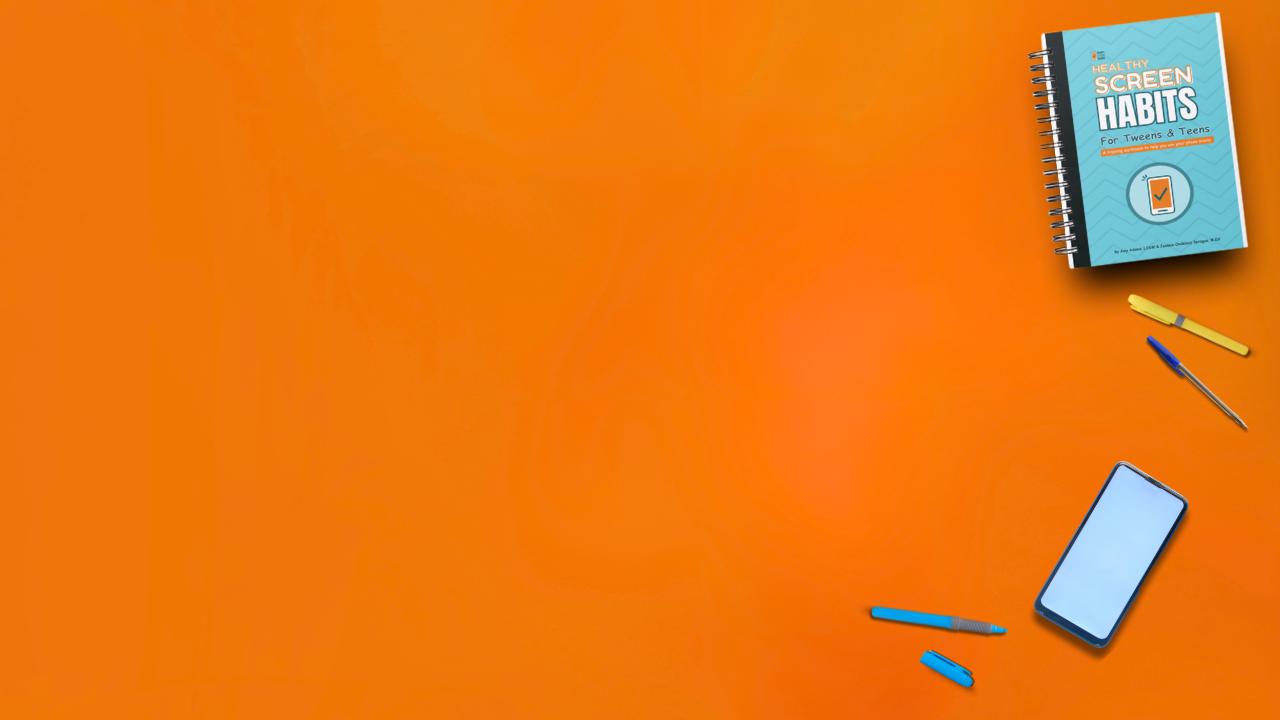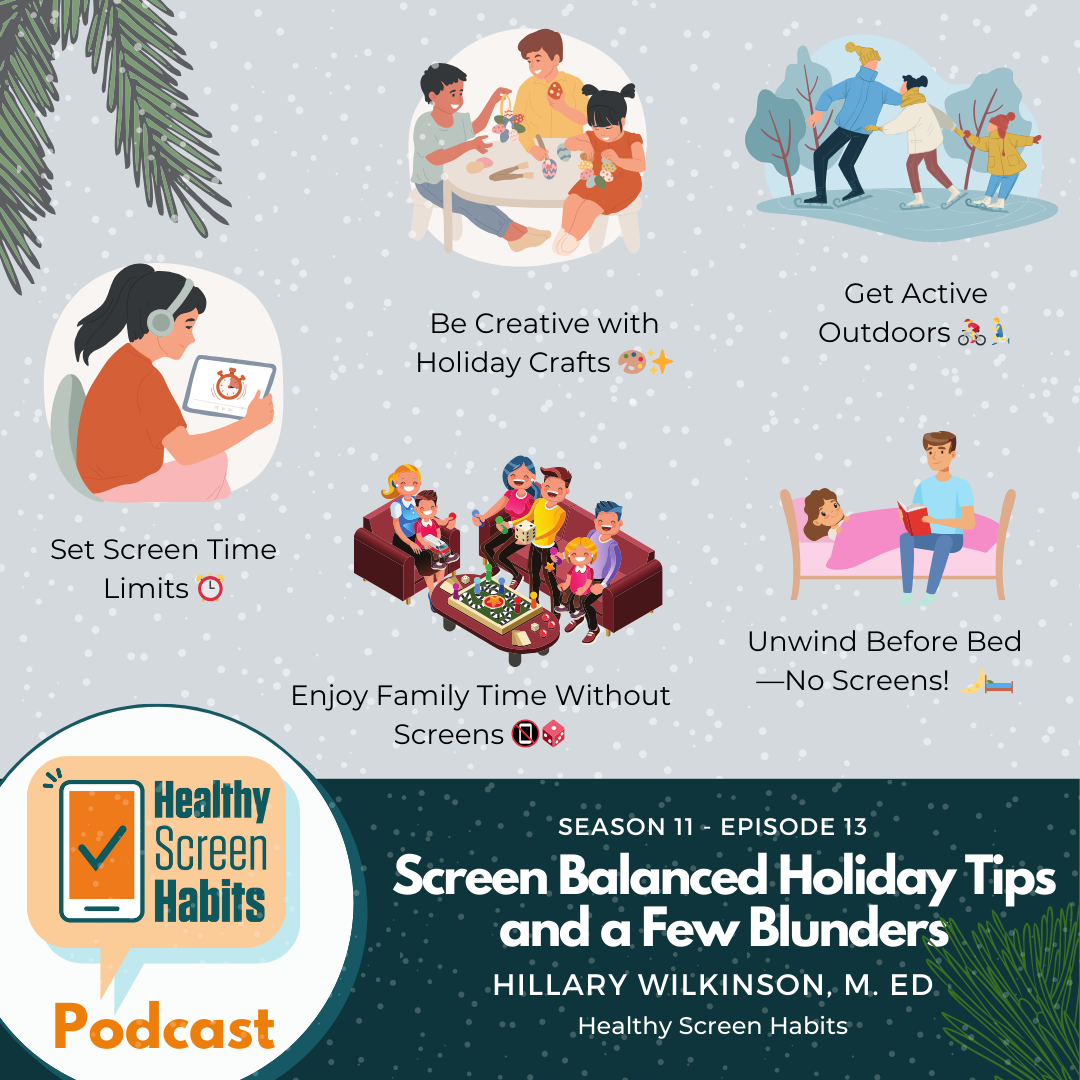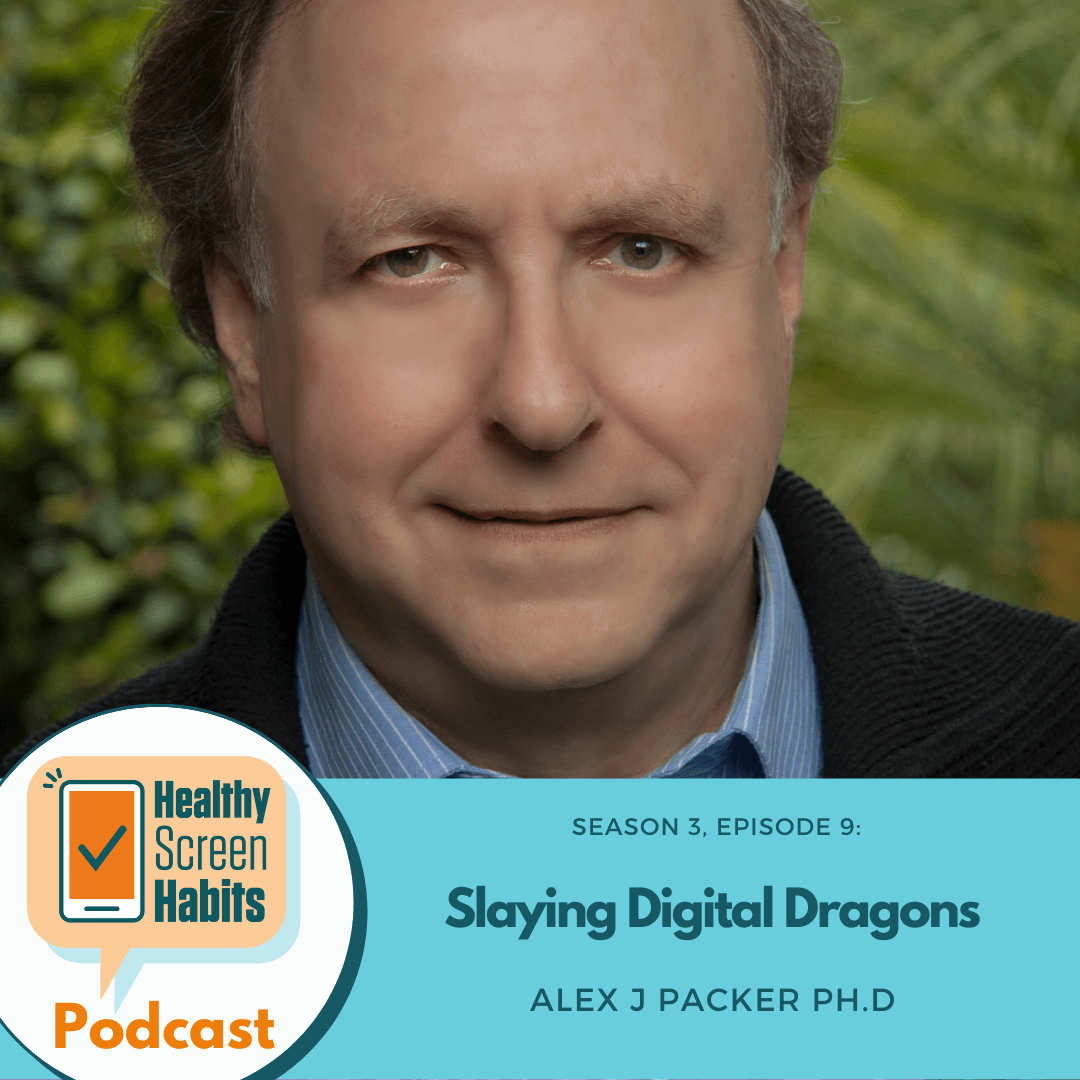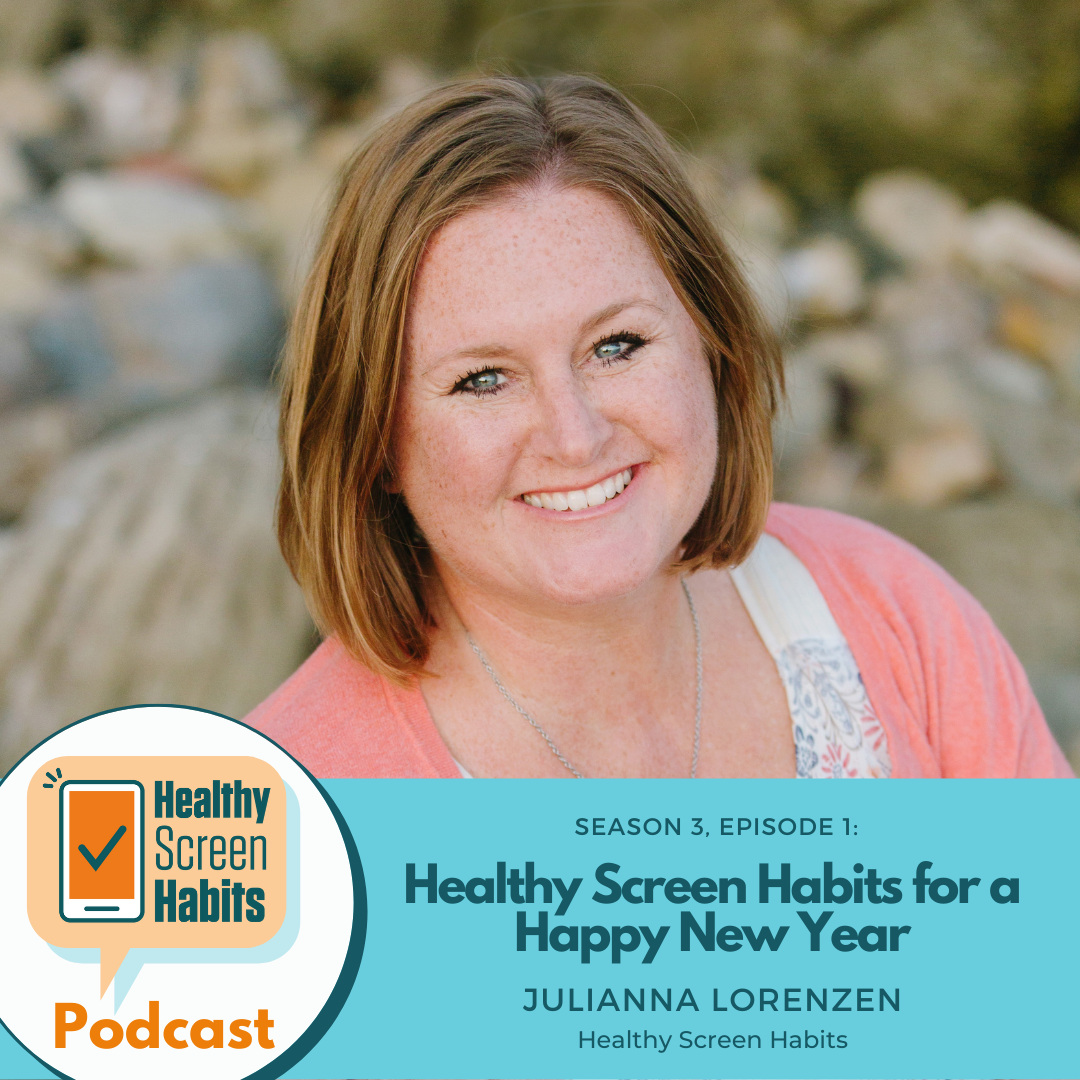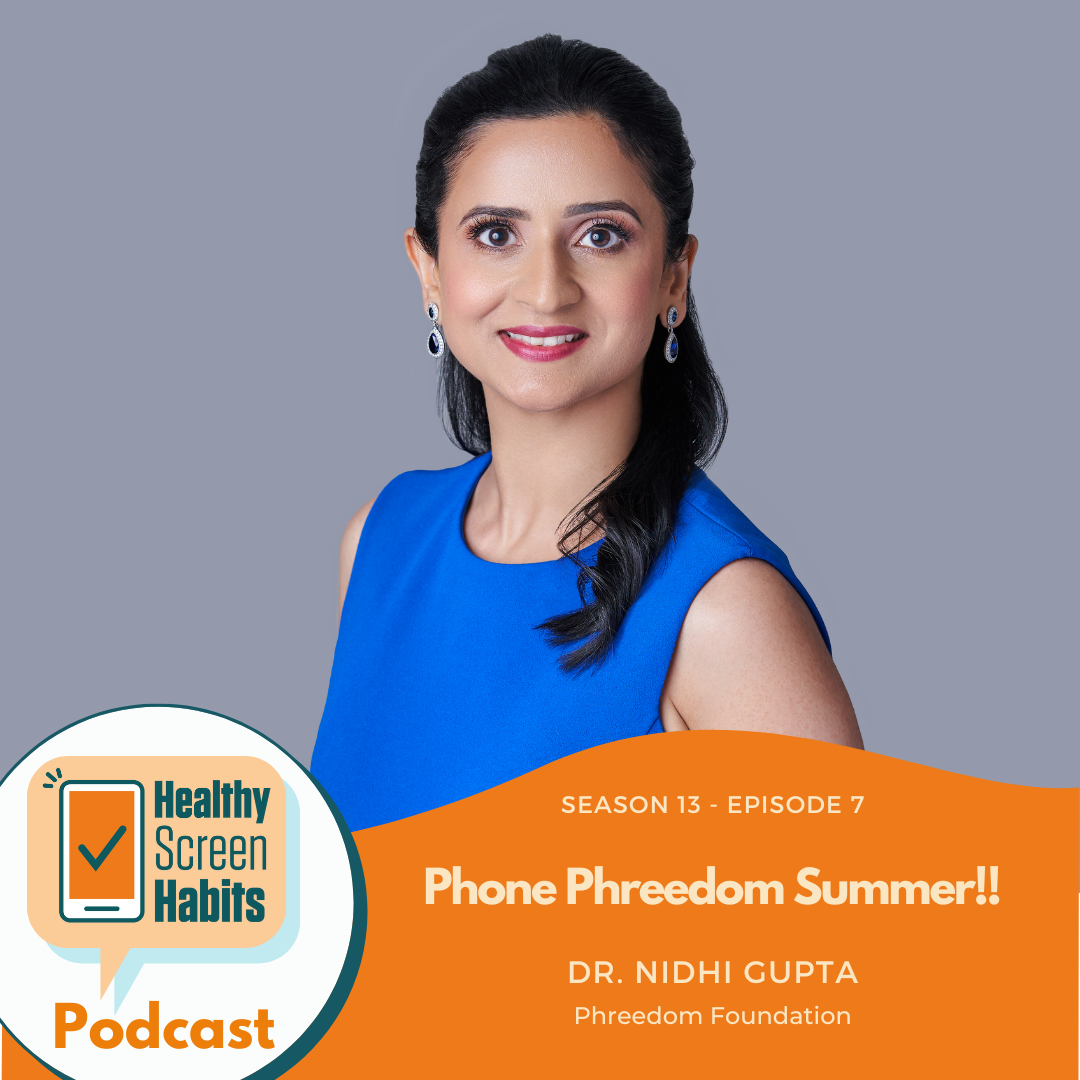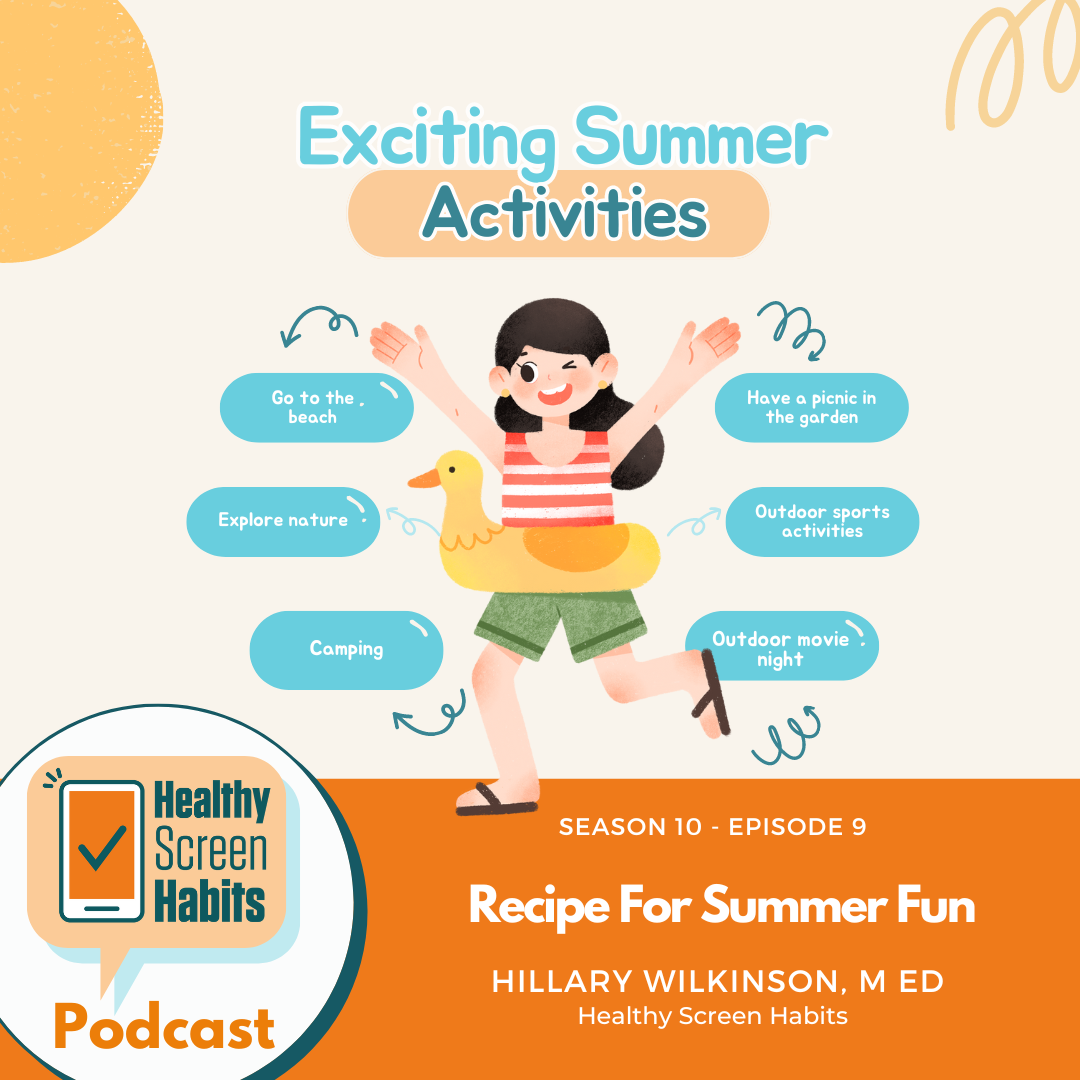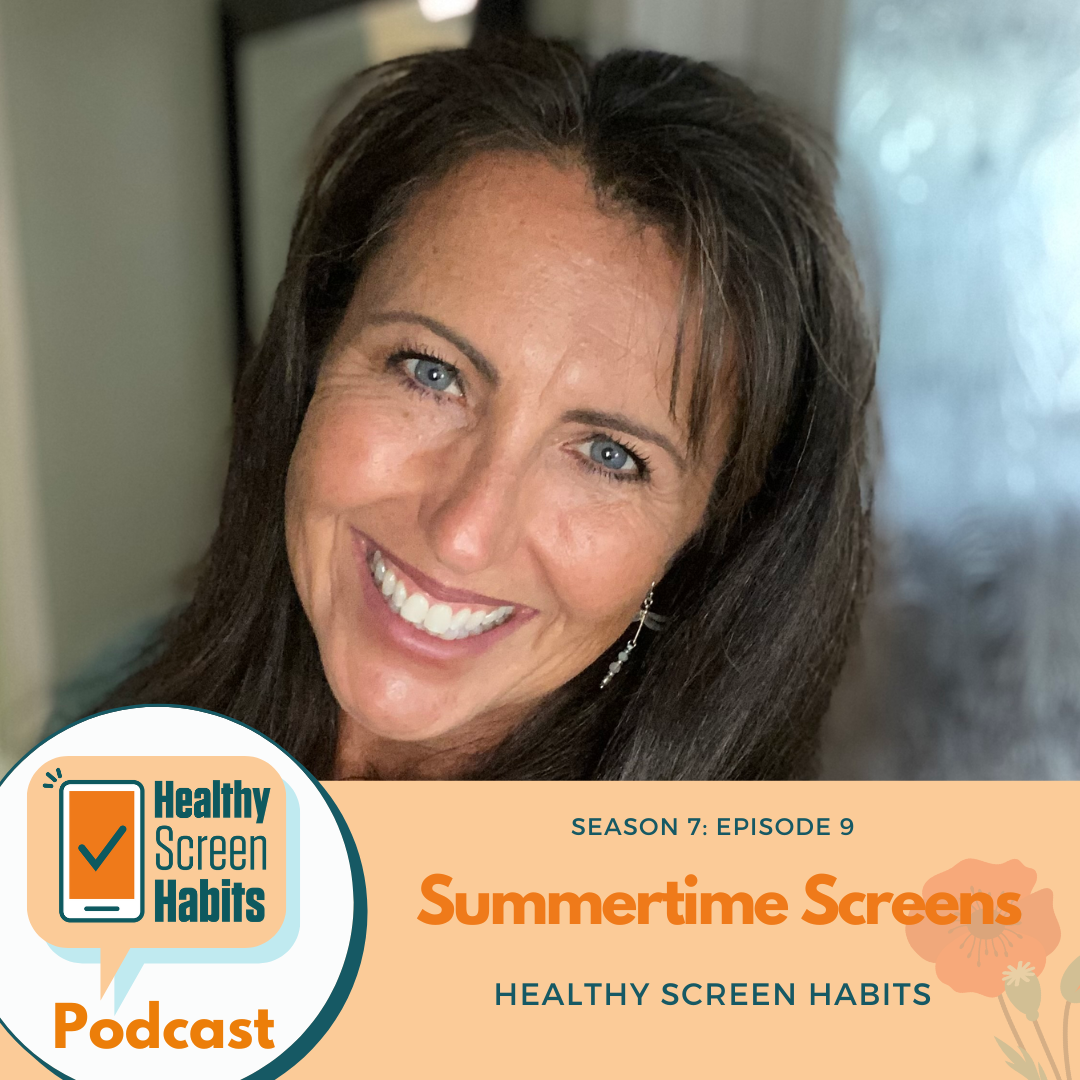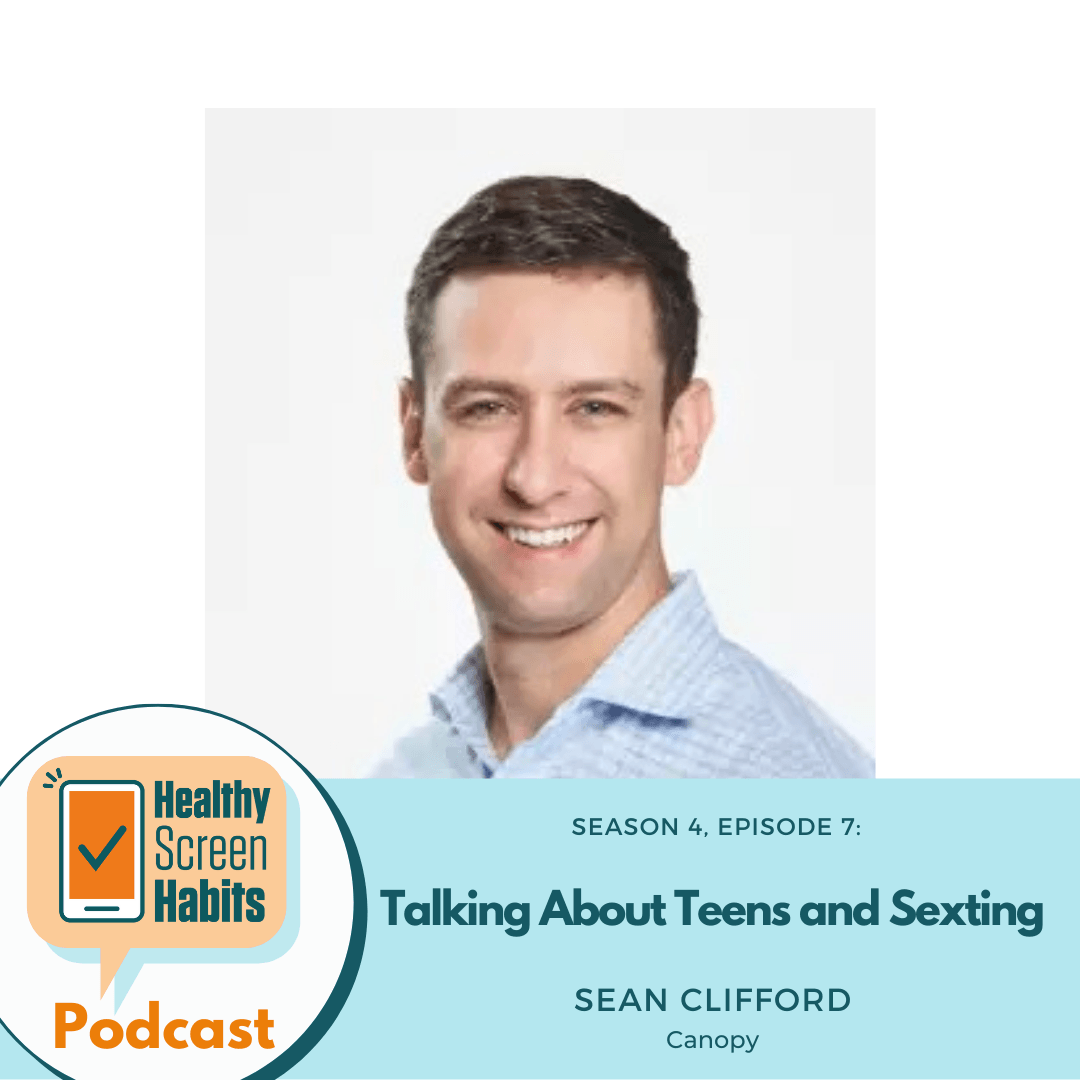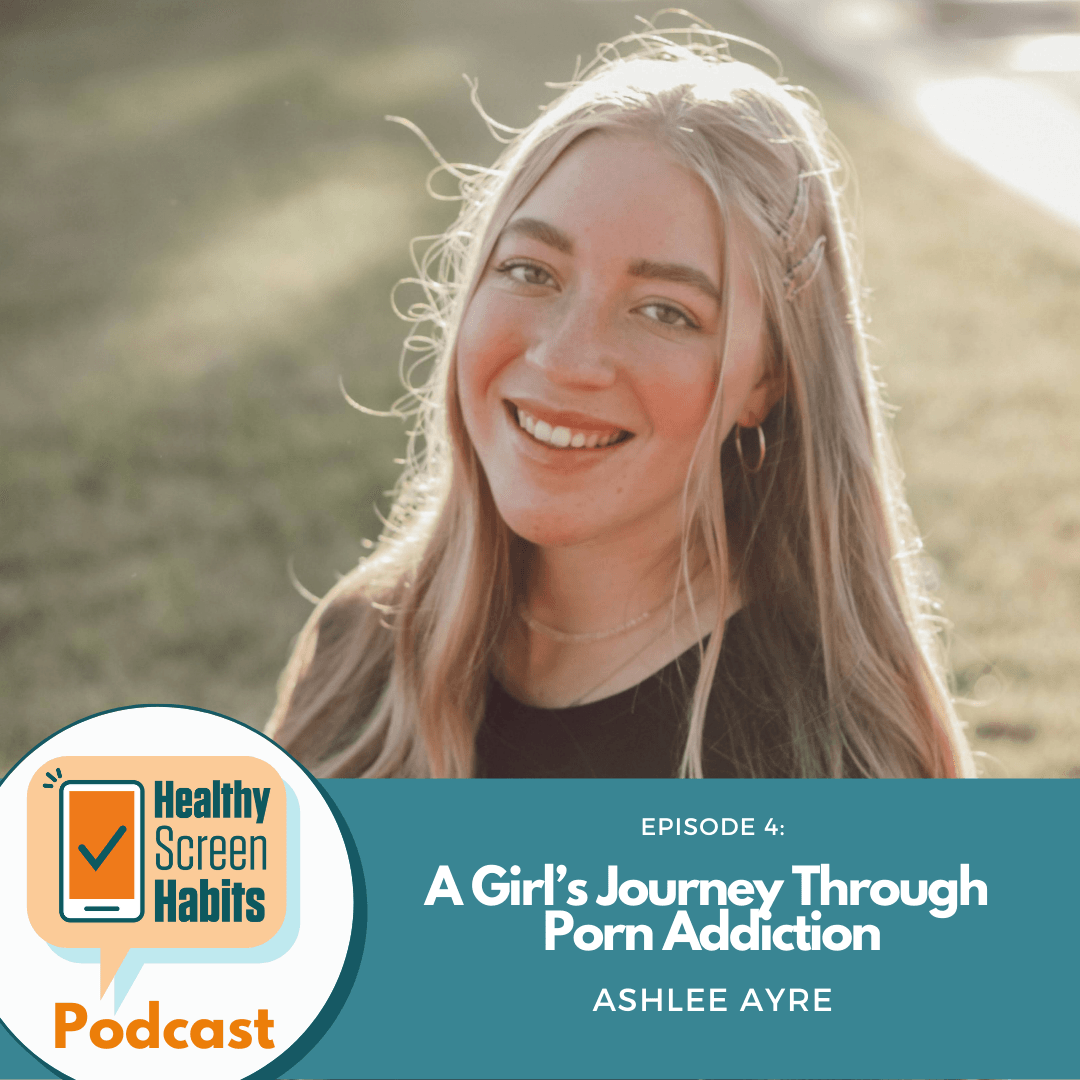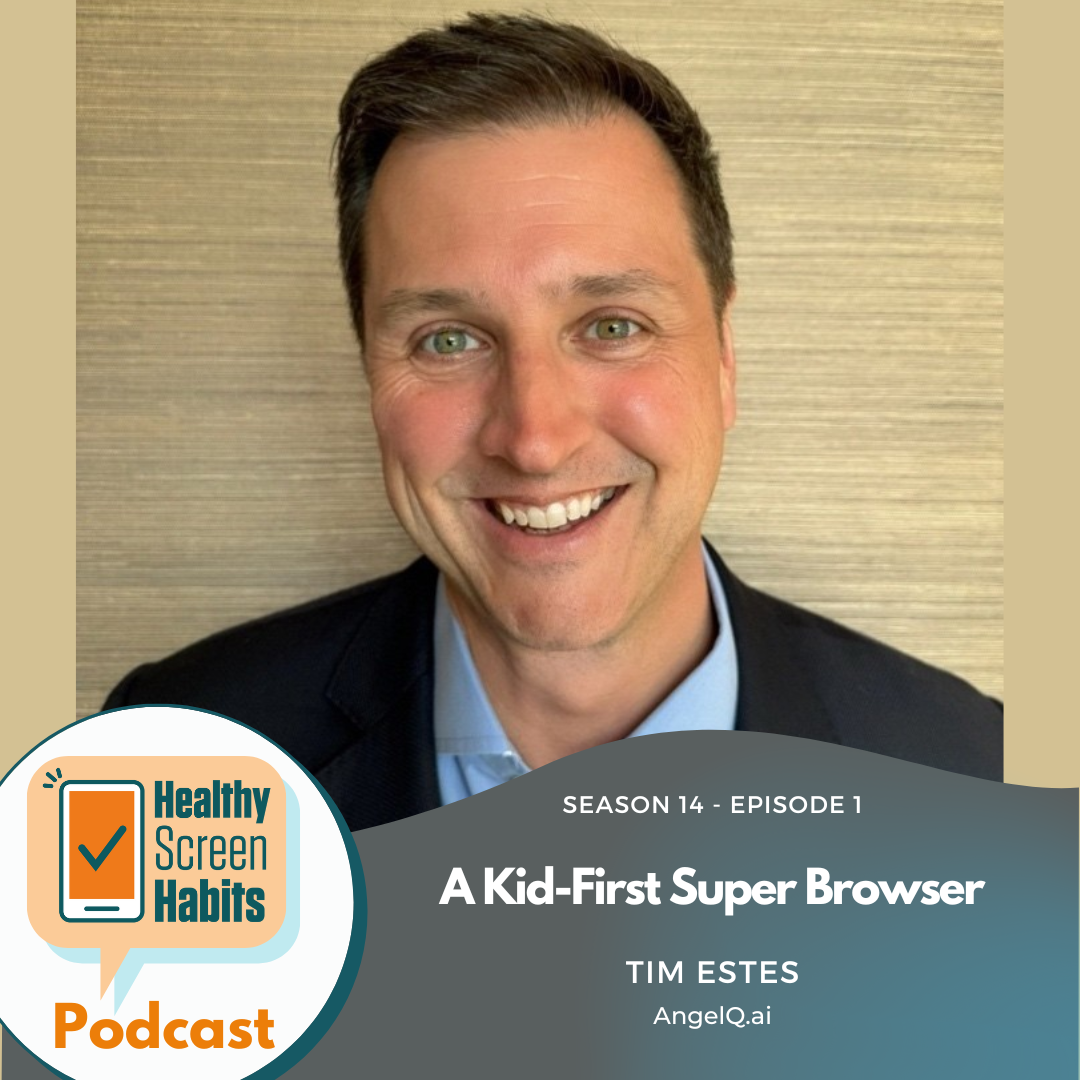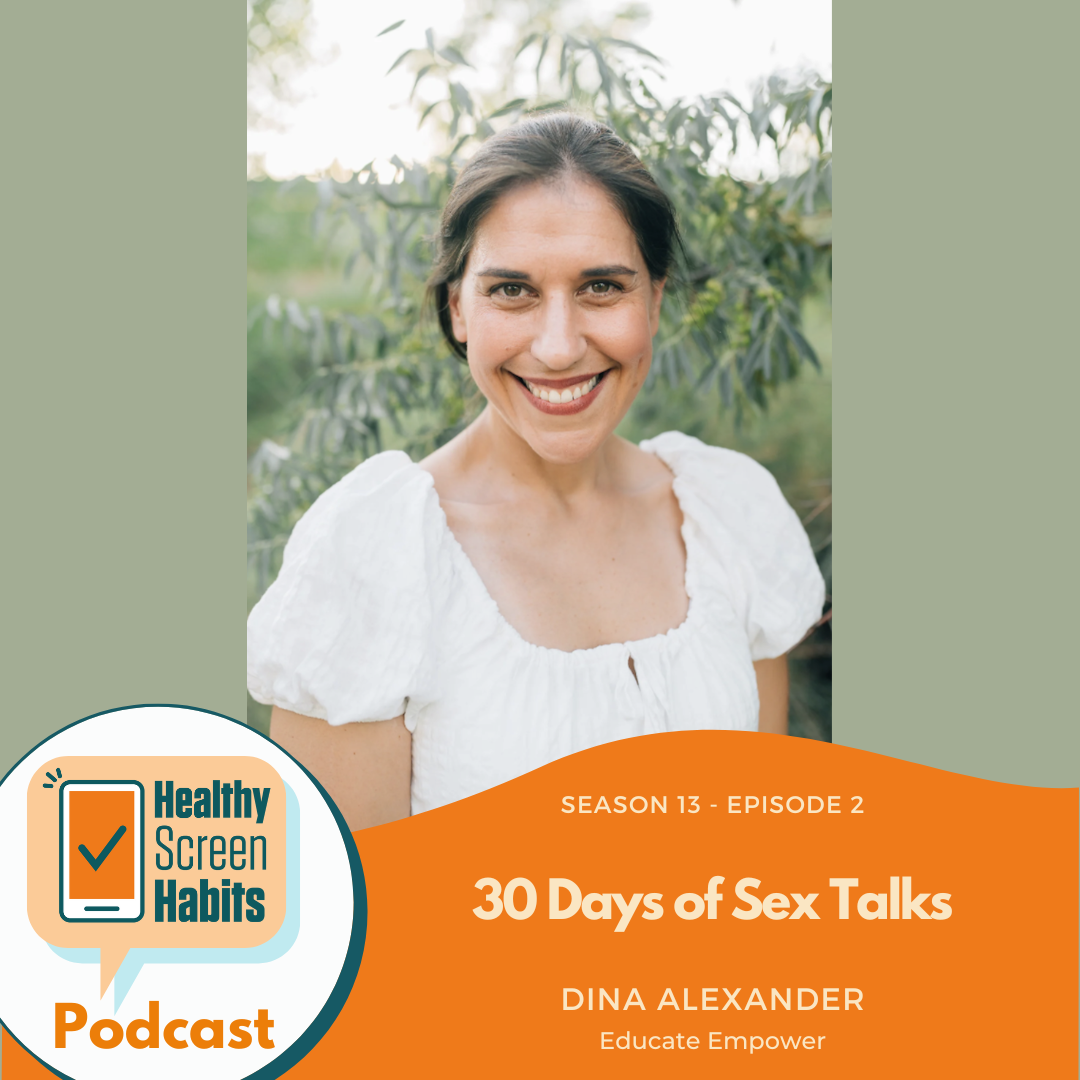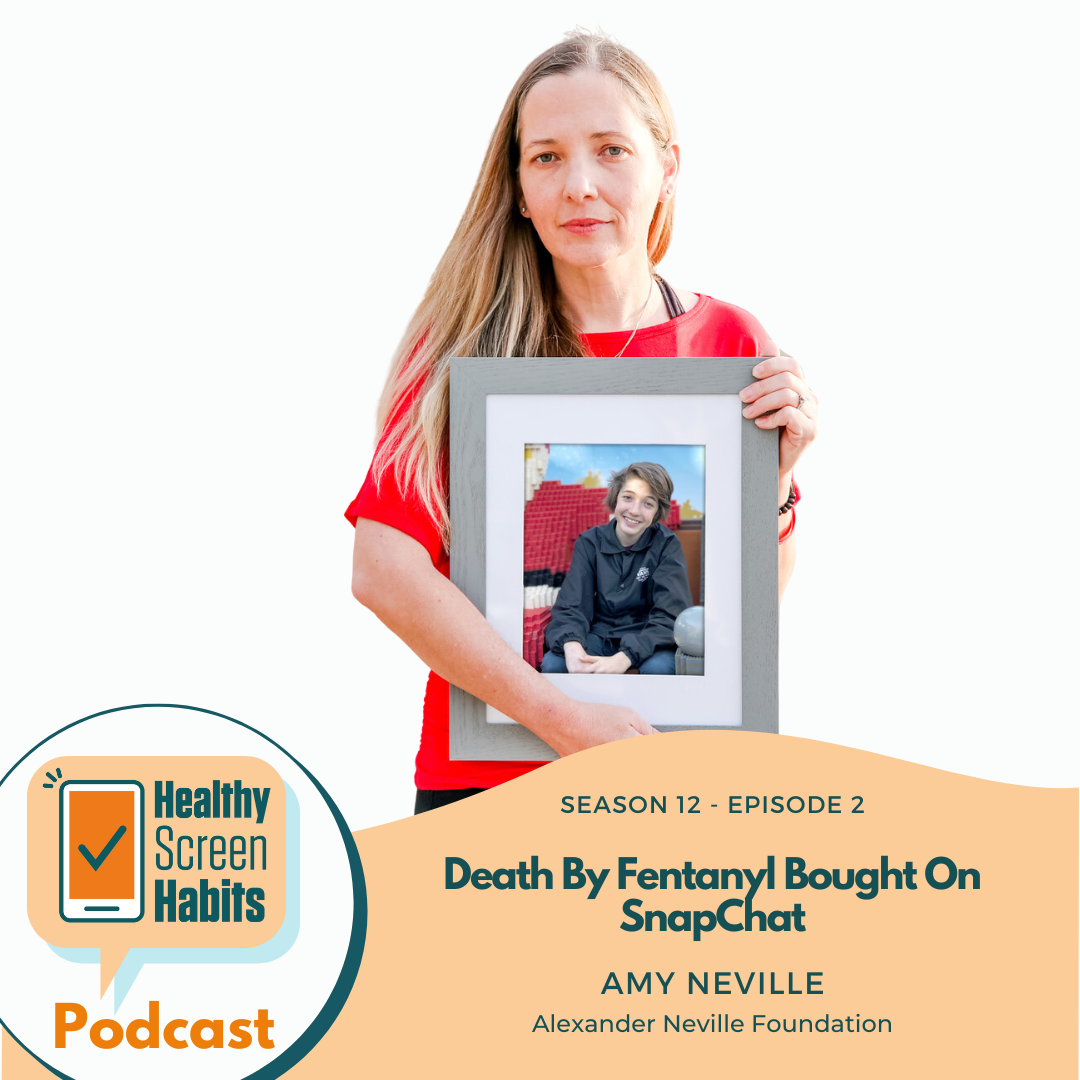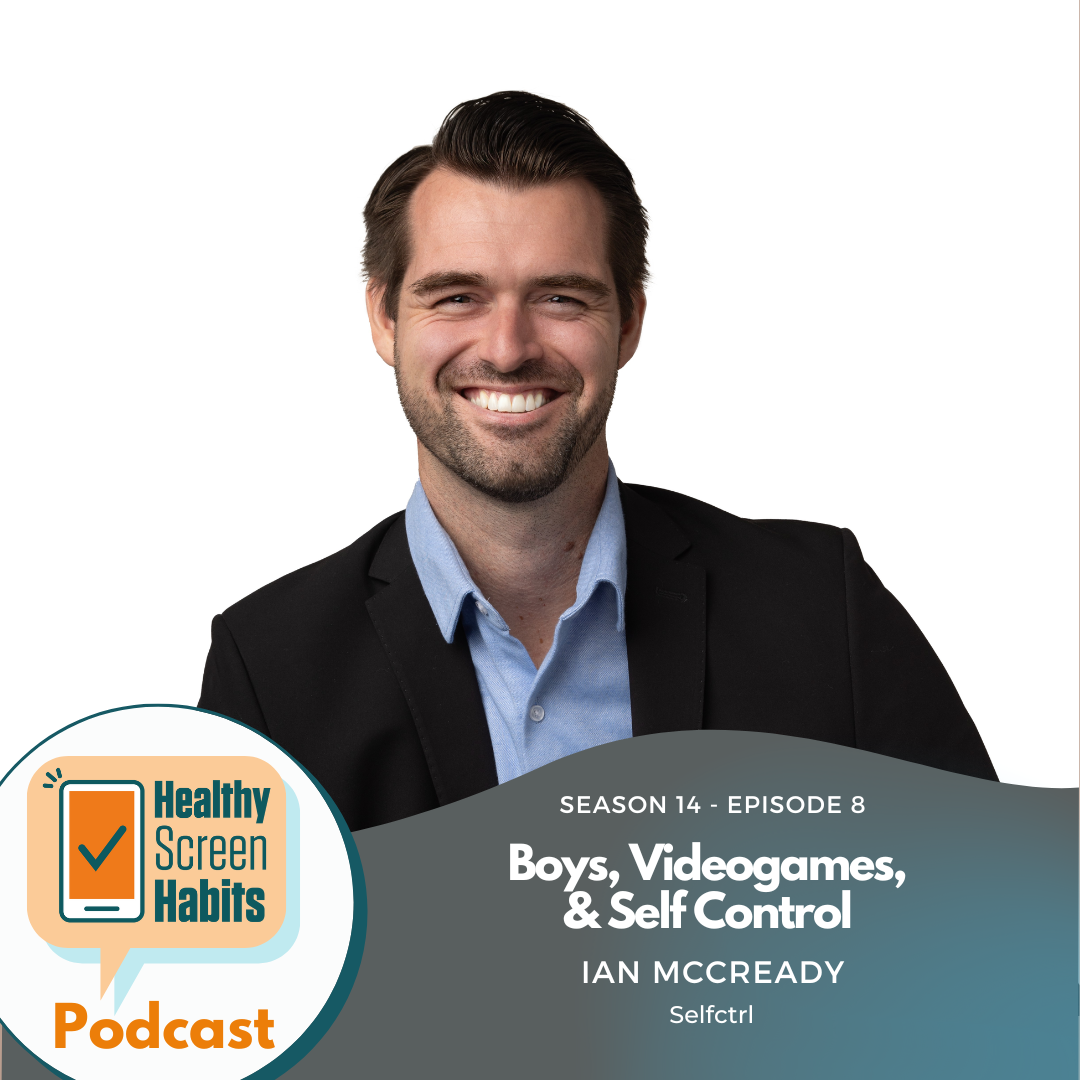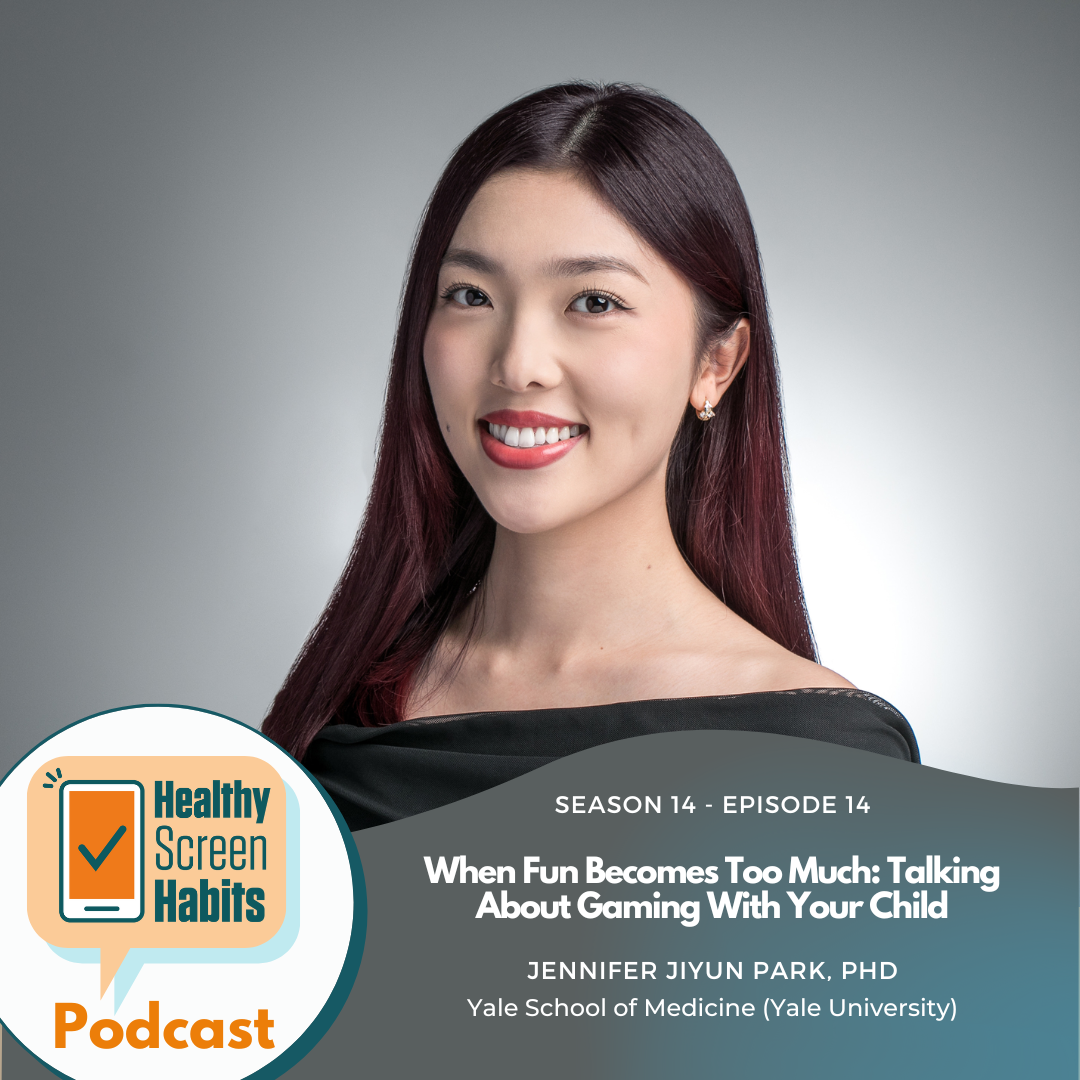Scale of Impact
$600,361
Money Raised
726
Project Founded
415,000 +
People Helped
35
Community Served
Stories
We measure our success in actual lives changed. These stories are a testament to the difference that communities can make when we come together to create lasting change.
Cyberbullying & Cyberharm
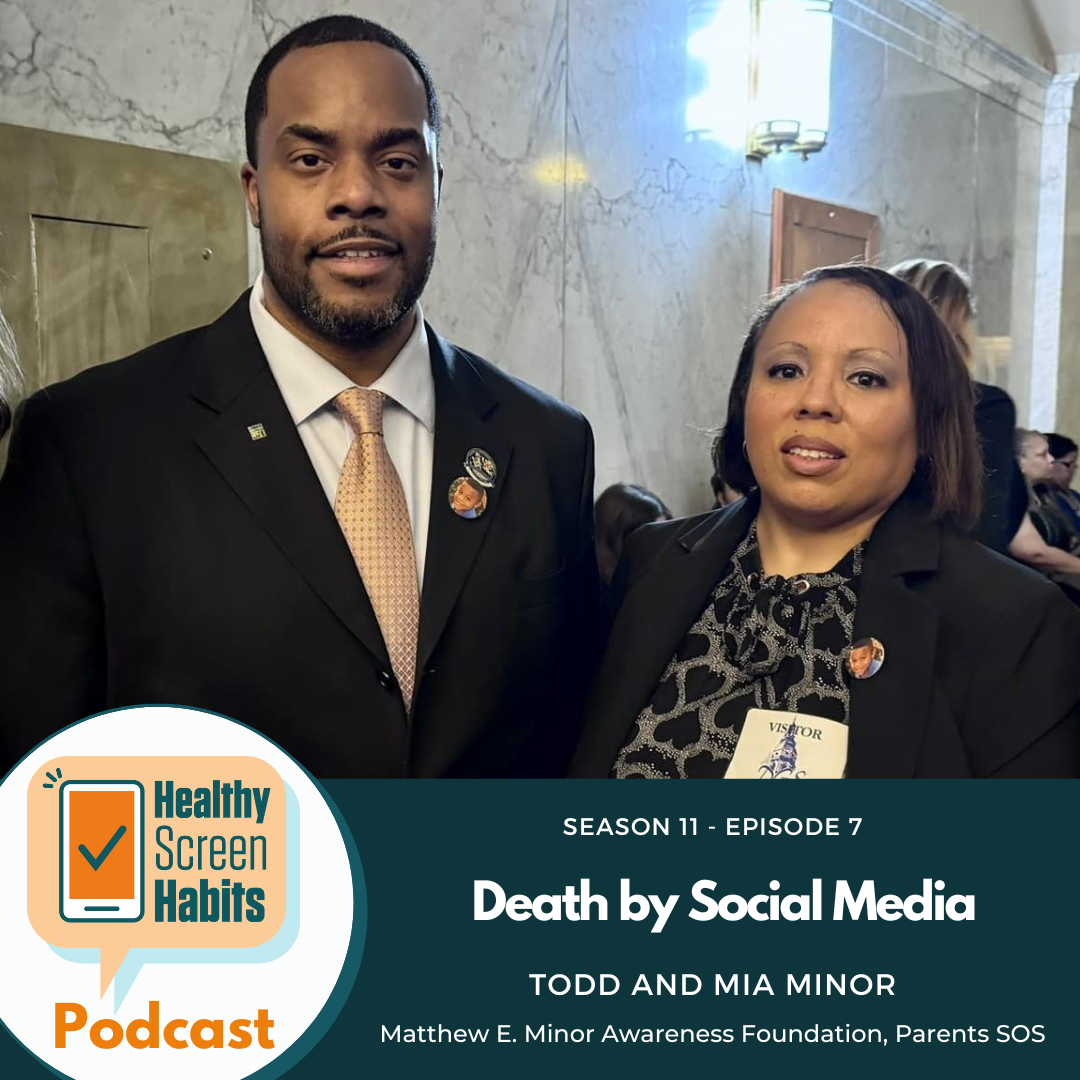
Todd and Mia Minor are parents who have become a powerful force in awareness building and education of online challenges. The Minor's lives changed forever when Matthew, their 12-year-old son, died accidentally through participation in a social media challenge known as the Choking Challenge.
In this episode, learn about online challenges and how they are being perceived by kids. Listen now!
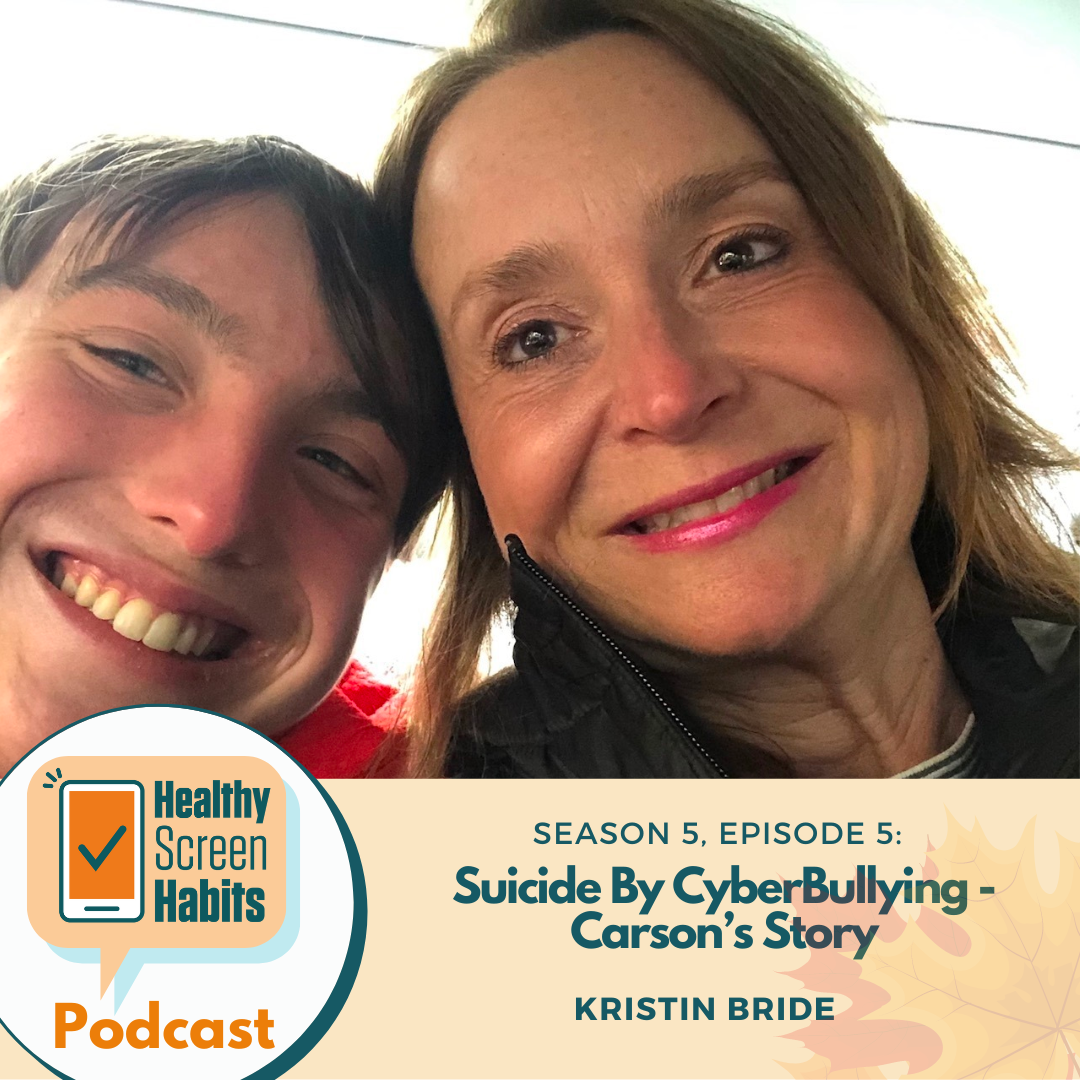
Kristin Bride is a mother who has become a FORCE of awareness-building and education on online bullying and the role that social media plays. This is not by choice. Kristin’s life immeasurably changed on June 23, 2020 when her 16-year-old son Carson died by suicide following vicious cyberbullying thru Snapchat and the use of anonymous apps. On this episode we discuss Carson's story and legacy.
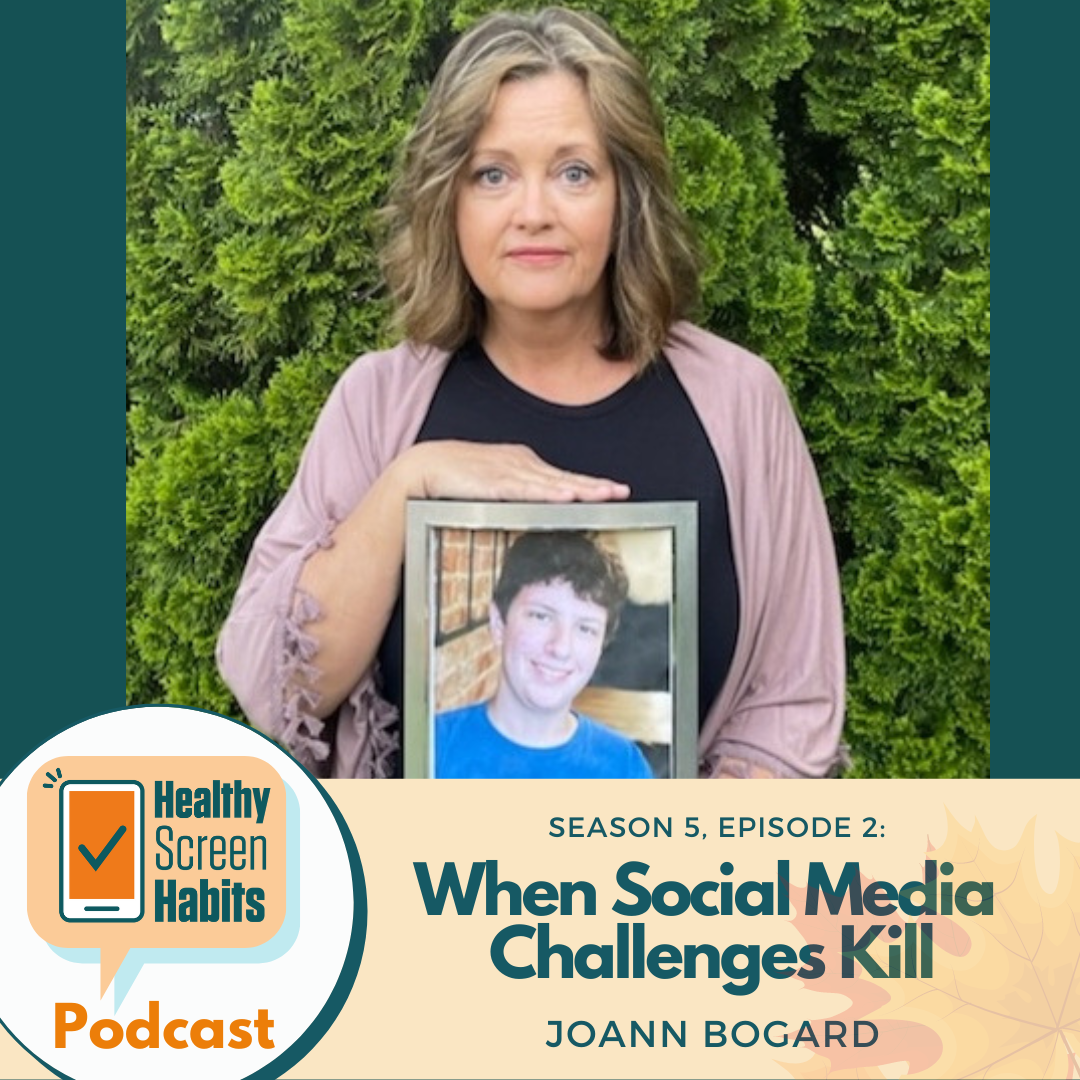
Joann Bogard is a parent who did everything right and her son still died participating in a dangerous social media challenge. The “Choking Challenge” is an ongoing killer and Big Tech is failing to put up guardrails. In this episode learn about Mason Bogard, his life, and how we can support legislation that will provide youth protection from being exposed to dangerous online challenges.
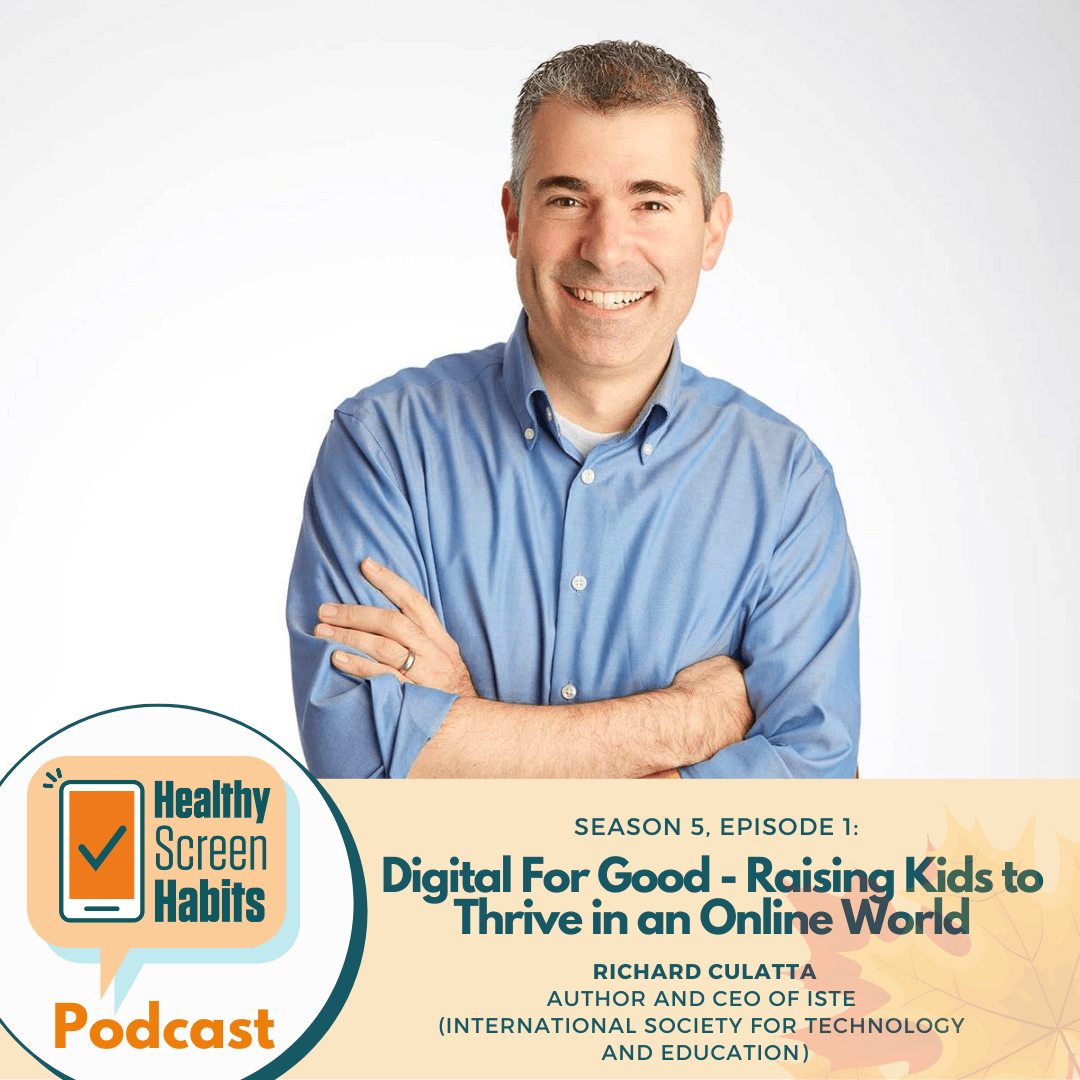
Richard Culatta is the CEO of ISTE (International Society for Technology and Education) and author of the book “Digital For Good - Raising Kids to Thrive in an Online World.” In this episode we discuss how the digital citizenship curriculum needs to be updated and how to become an upstander when seeing cyberharm occur.
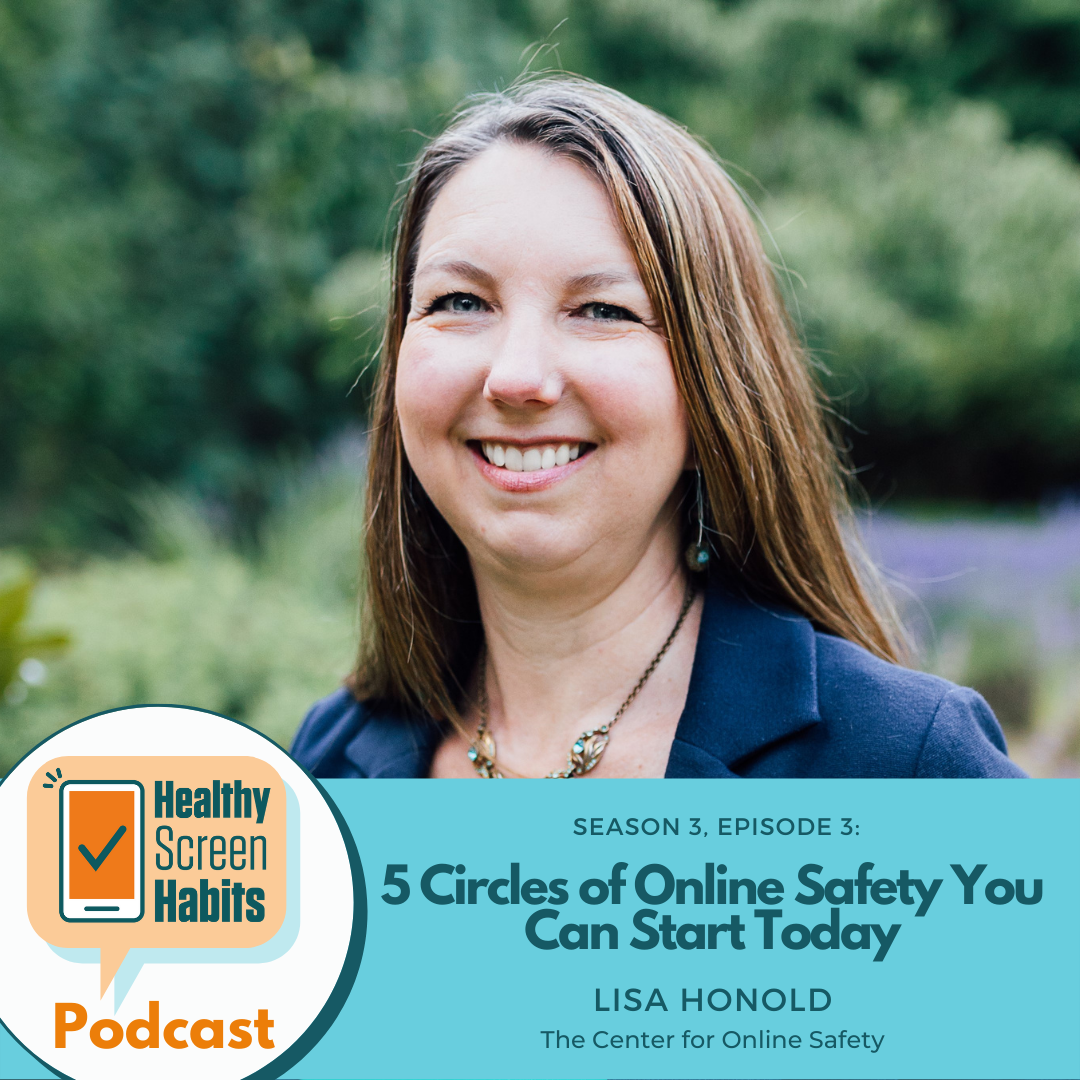
As the founder of The Center for Online Safety, Lisa Honold is committed to teaching adults how to guide children towards healthy and intentional relationships with technology, all while strengthening offline relationships with family and friends. In this episode, we talk about 5 circles of online safety you can start using today.
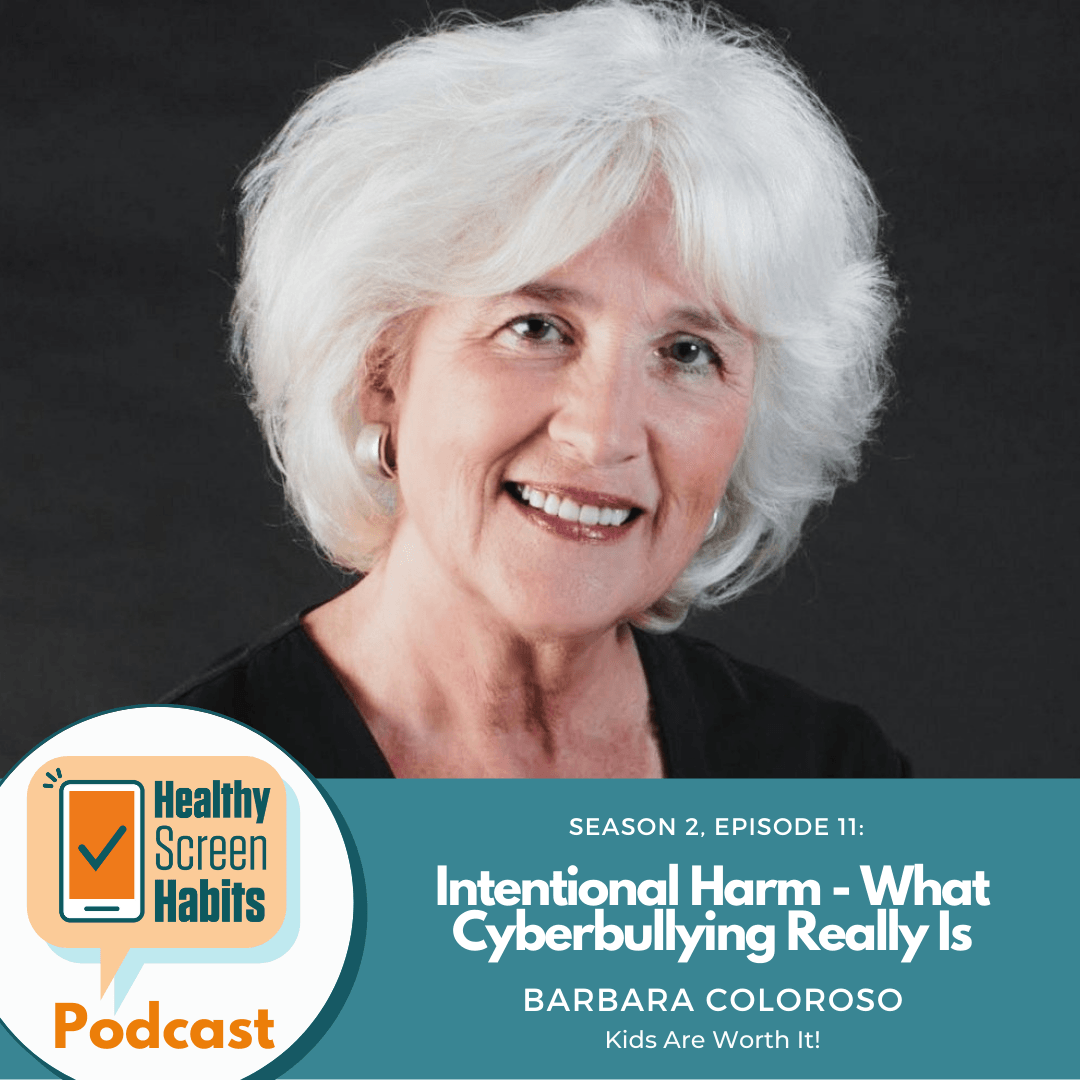
For the past 49 years Barbara Coloroso has been speaking, educating and teaching on parenting, creating positive school climates, bullying, explaining nonviolent conflict resolution and more. She has appeared on the BBC, Oprah and CNN just to name a few. Her life work of putting kids first and her organization: Kids Are Worth It! is the cornerstone for many in education and early childhood development. In this episode we discuss cyberbullying, it’s far reaching ramifications and what tools our kids need to have to combat this growing problem.
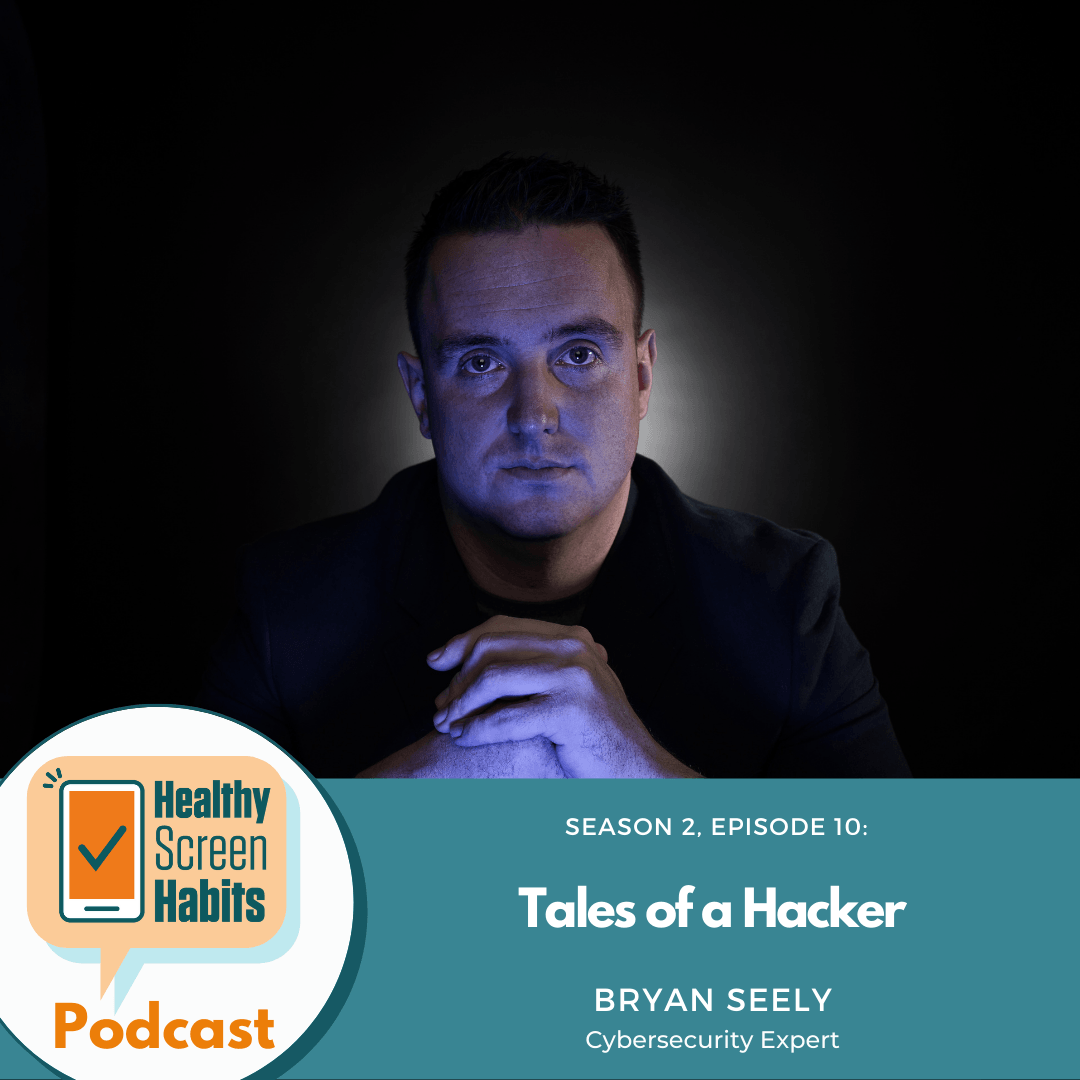
Bryan Seely is a world-famous hacker, Cybersecurity expert, and former U.S. Marine. His fame sky-rocketed in 2014 when he became the only person to ever wiretap the United States Secret Service and FBI. Shockingly he told the 2 agencies before he was caught. Instead of being sent to maximum security prison, the Secret Service called Bryan a hero and praised his courage and integrity.
Bryan is passionate about fighting for consumers' rights and privacy, and about educating the public on how to stay safe in a constantly changing technology landscape.
Family Connections
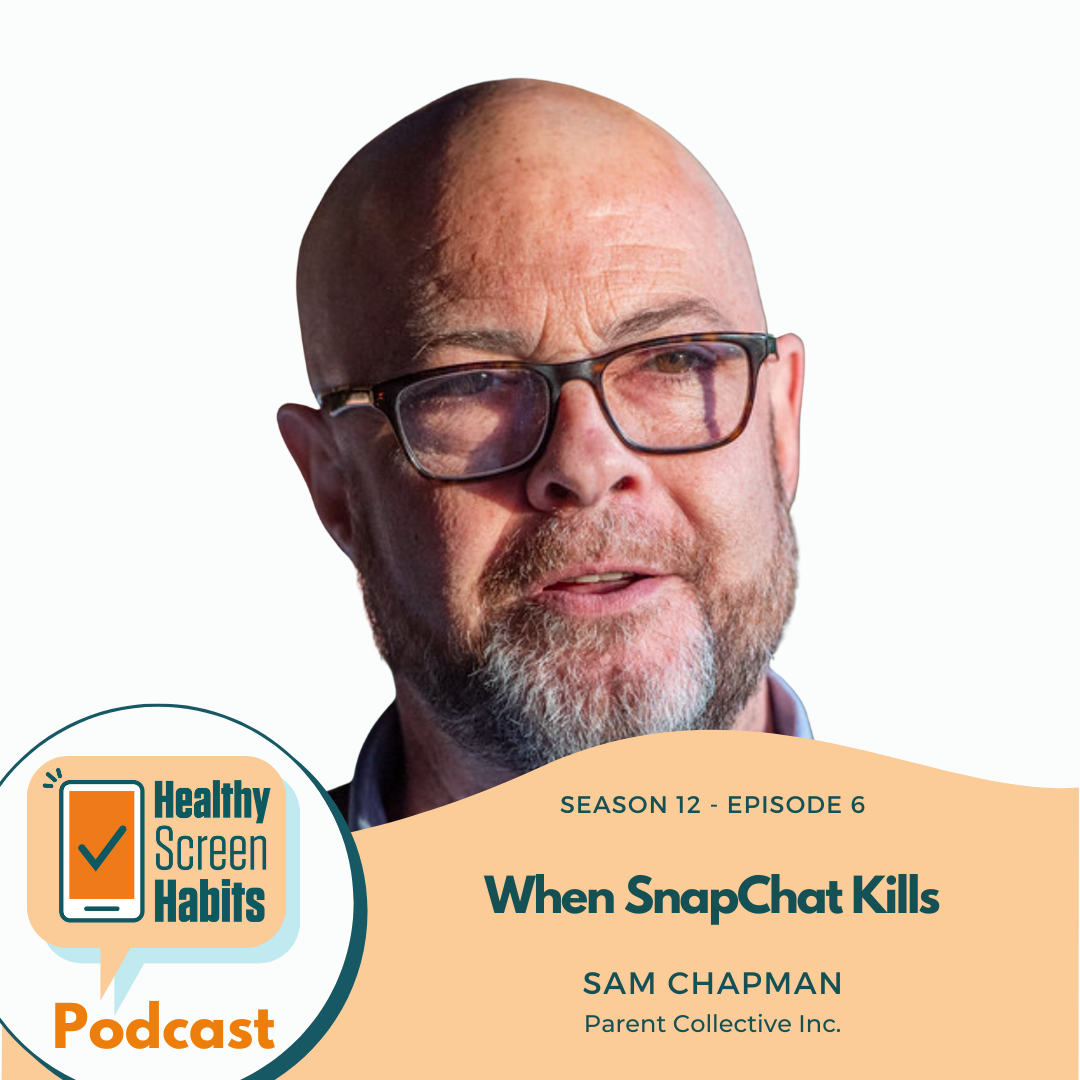
Sam Chapman is the father of Sammy Chapman (forever 16) and CEO of The Parent Collective Inc., a California non-profit operating in the areas of social media harm and fentanyl poisoning education and activism. The Parent Collective also provides grief support for those left behind.
Sammy Chapman died the night he took a counterfeit pill that was laced with fentanyl. He bought this pill on Snapchat. More and more drug dealers are using Snapchat as their preferred platform to sell. The conversation has never been more critical - talk to your kids about only using medication prescribed by their own doctor and purchased from a licensed pharmacy.
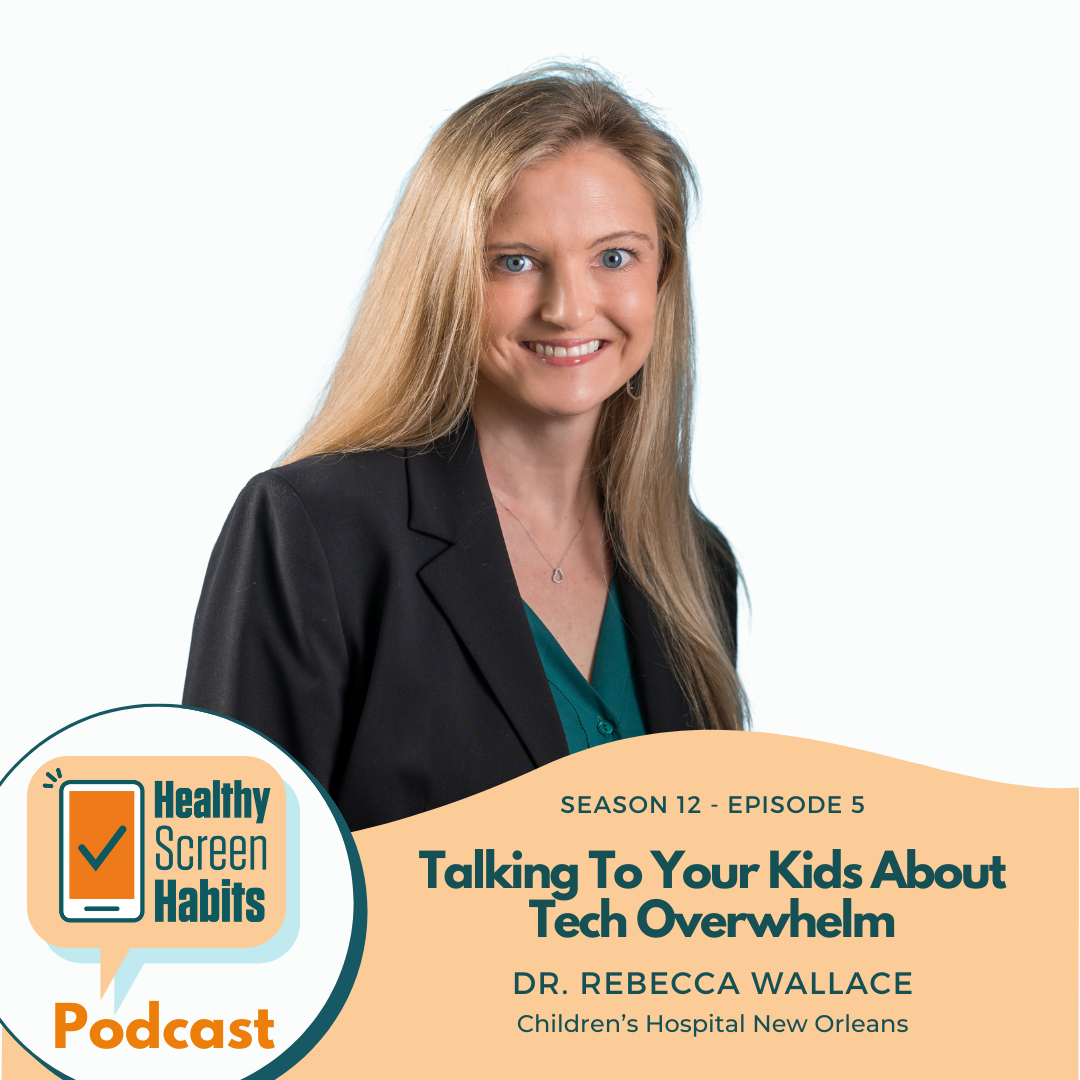
Dr. Rebecca Wallace became a mental healthcare provider because she wanted to fill in the gaps. She goes the extra mile to support the mental and emotional health of patients with medical conditions as they go through the process of diagnosis, treatment, and life.
We talk about how to balance tech time when you have an ill child as well as how to manage media overwhelm. In these uncertain times we are all feeling the pinch of too much emotion-fed media, listen to today’s podcast to help build balance and get healthy screen habit tips!
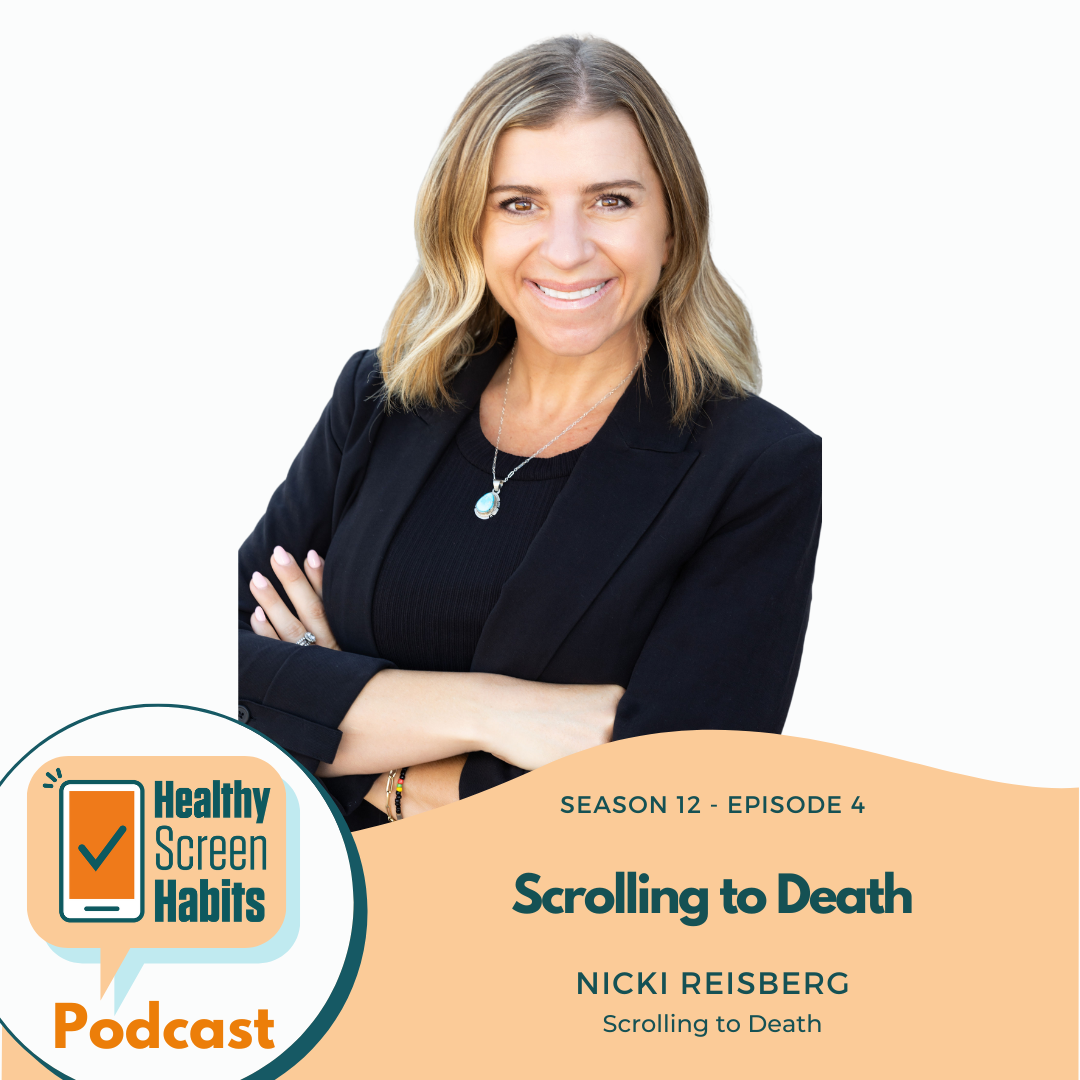
As a former social media executive turned social media reform advocate, Nicki Reisberg, hosts Scrolling to Death, a podcast for parents who are worried about social media. It's a safe space to amplify stories of harm while educating parents on how to keep their kids safe in a world that is trying to addict and manipulate them.
In this episode learn all about the broken system of tech in our schools and the new threat of Character AI. Listen now!
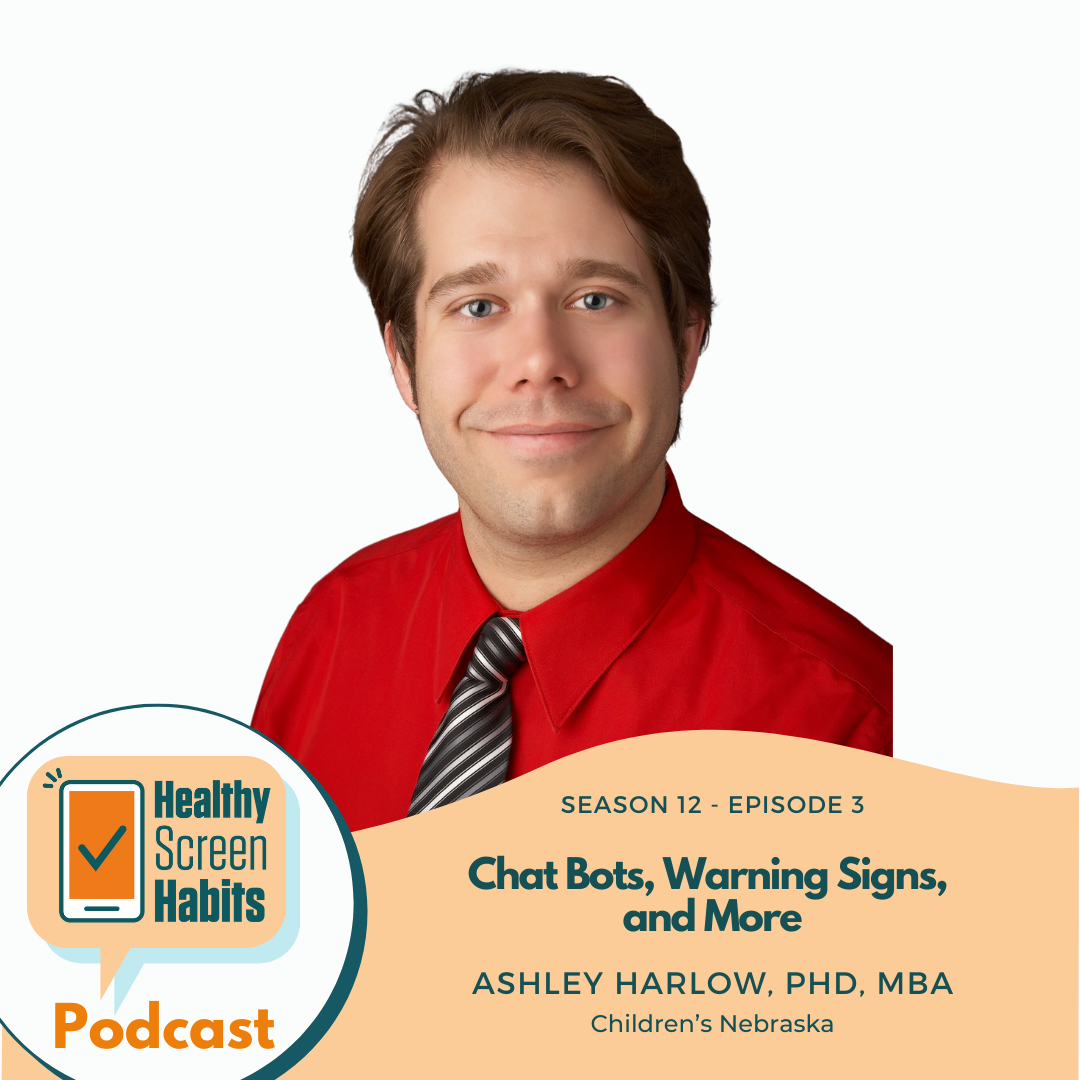
Dr. Ashley Harlow is a dad of four who definitely understands the complexities of parenting with healthy boundaries around screen time. As a licensed child and adolescent psychologist at Children's Nebraska in Omaha, he has practical tips that can empower families to create a balanced approach.
On this episode we talk about social media, chatbots and warning signs of depression to look out for.
Listen now!
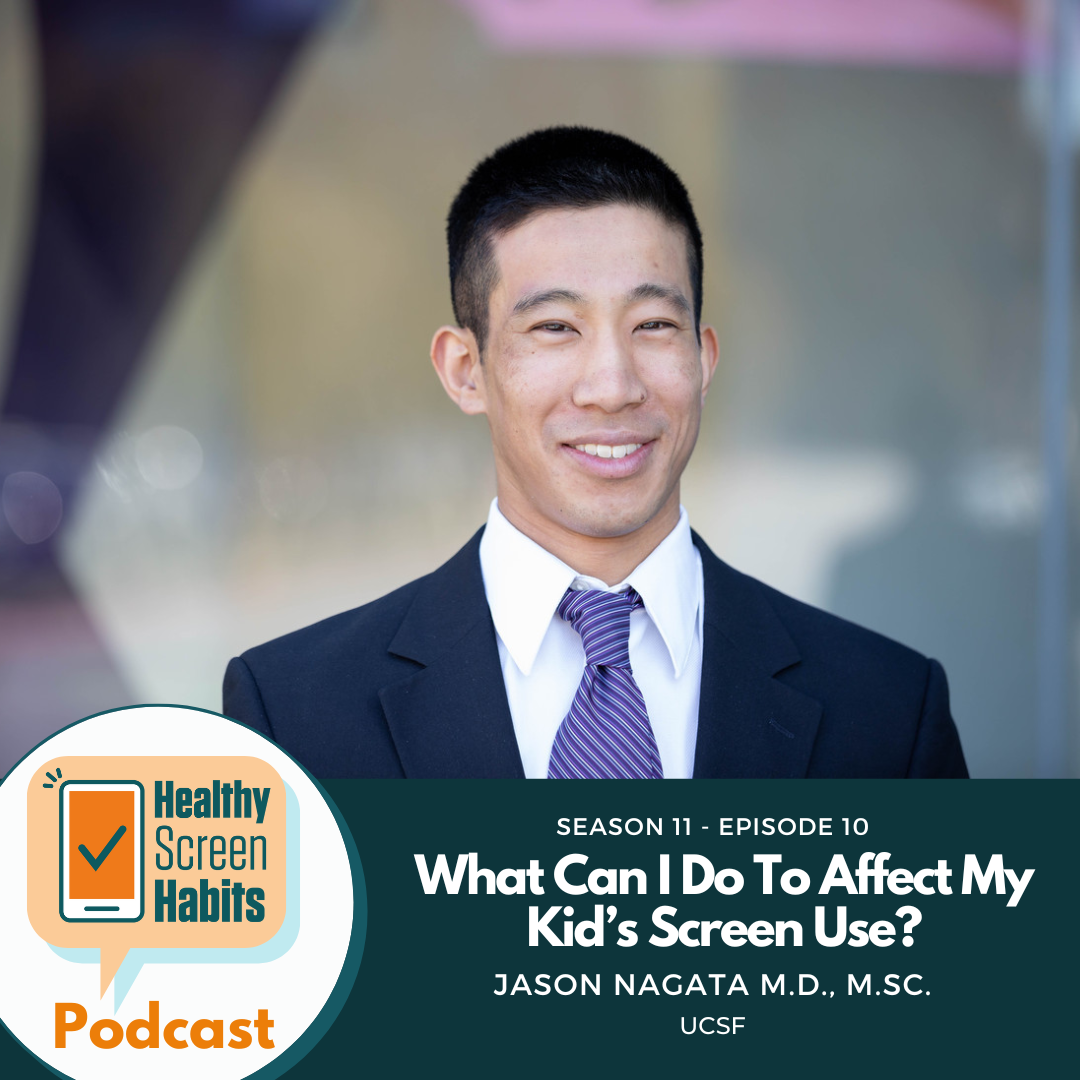
As parents play key roles during childhood and adolescence, child, parent relationships, parenting styles and home environments have been identified as factors that may contribute to children's screen use patterns. Listen as the lead author/researcher, Jason Natata M.D., M.Sc.,, of an article titled, Associations Between Media Parenting Practices and Early Adolescent Screen Use published in a recent article in the Journal of Pediatric Research explains how parents' tech use can affect their kids' use of tech.
It’s very interesting and incredibly important. Listen today!
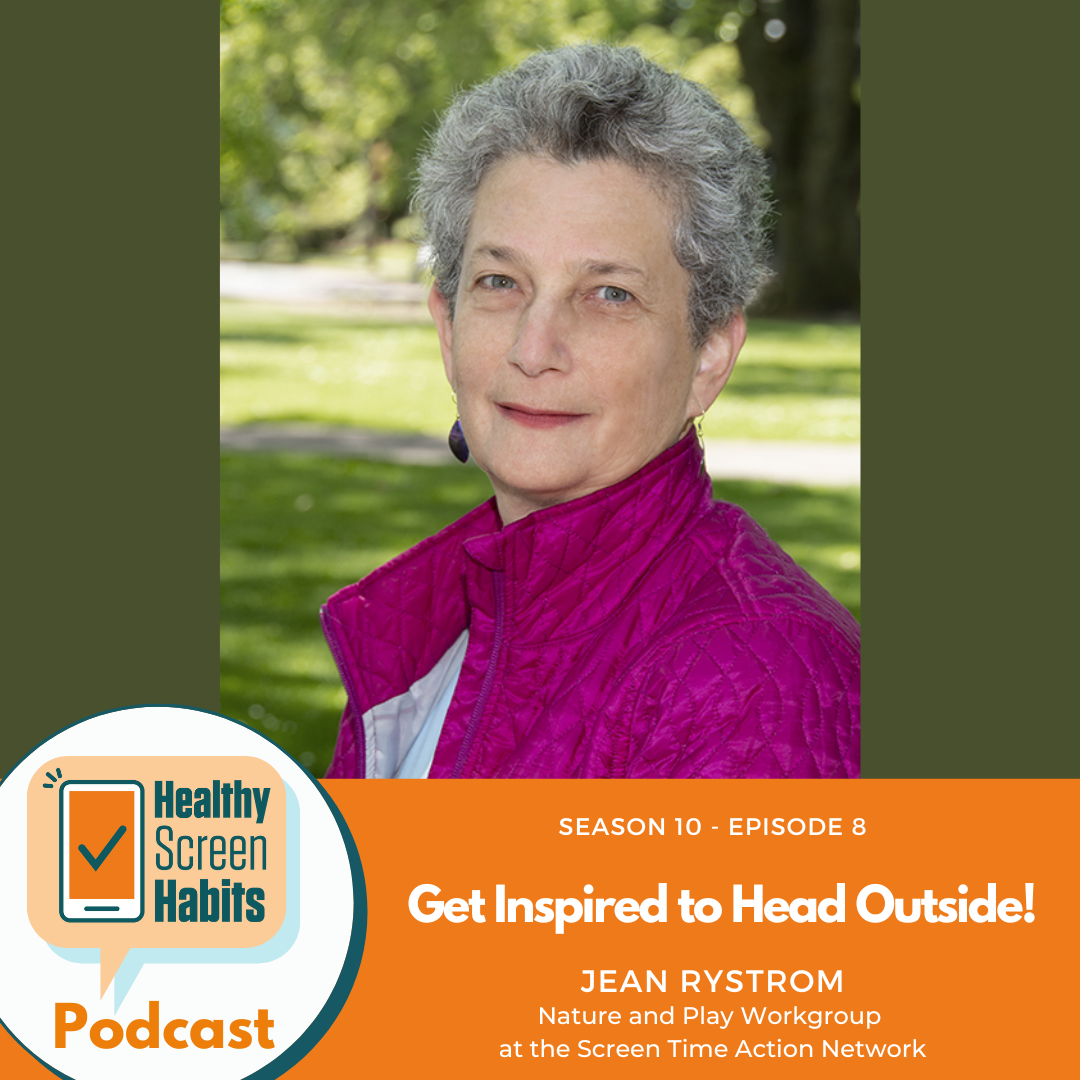
Playing outside is so much more than physical activity. Some of the many benefits include fitness, vitamin D and sleep. Being in nature also enhances focus and attention, it improves problem solving, reduces stress, increases empathy, improves mood. The influence of nature is dramatic and pervasive for all of us. There was a study that said that hospital patients, who have views of greenery outside their windows have shorter stays and fewer complications.
Reducing screen time, increasing time in nature has the potential to change lives. Listen to Jean Rystrom of the Screen Time Action Network introduce an amazing and FREE resource: The Children & Family Inspiration Guide. It’s got everything you need to encourage your kids to get offline and outside. Listen today!
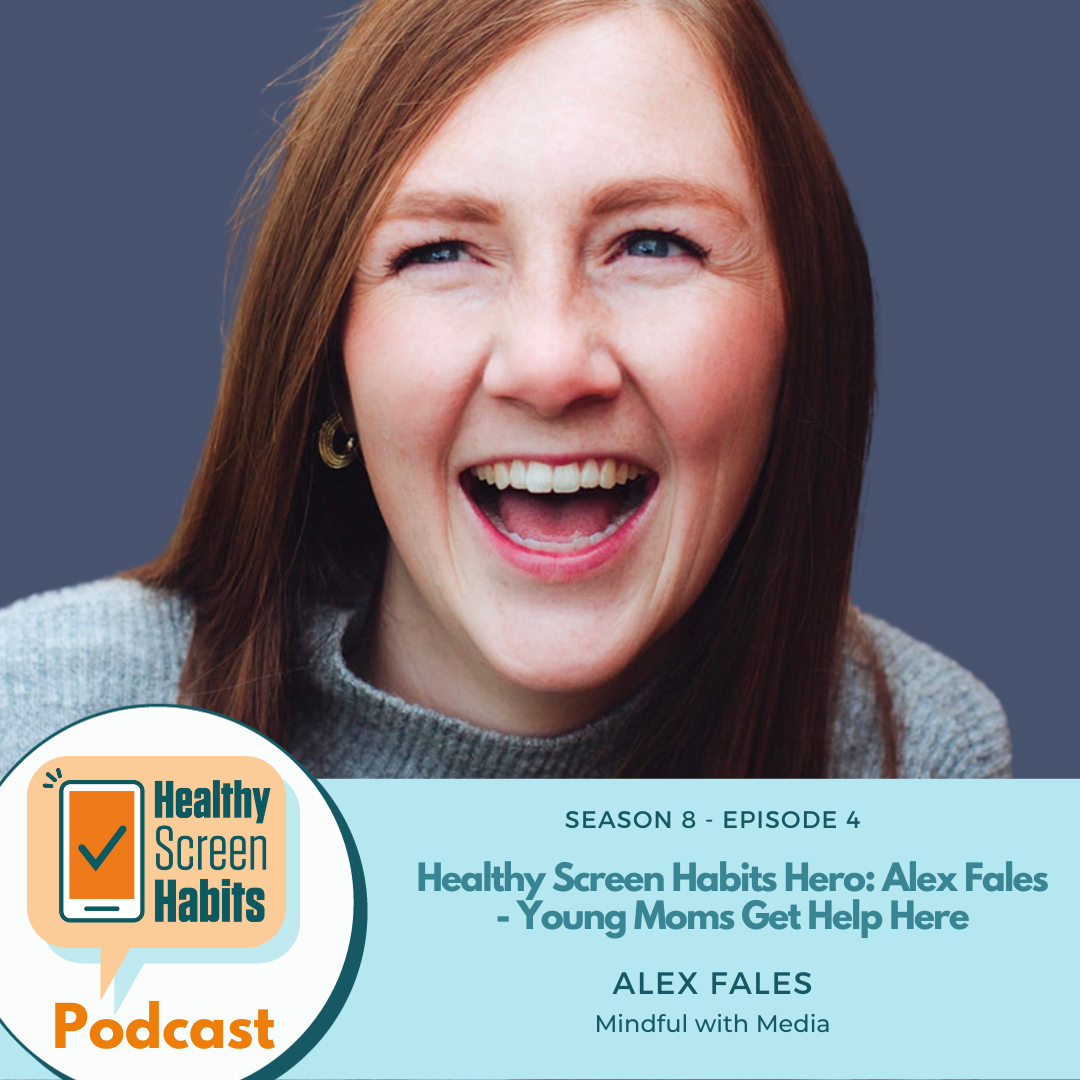
Those baby days can be rough - everything we see in the media tells you “these are the moments you live for” yet…it’s so lonely. If you have enjoyed other pursuits or had a fast paced career you might find yourself wondering what comes next?Typically - we reach to our device to reconnect with our friends and look for help with the millionth question you have that day. This can get tricky… we can find ourselves spending way more time online than we intended and spiraling down the hole of social media. Alex Fales, found herself struggling with all of the new mom things and was unsatisfied with her relationship with tech so she founded Mindful With Media @mindfulwithmedia. In this episode we talk about screen habit pitfalls and some relatively easy practices you can put in place to design the relationship with tech that you want to have.
You are going to want to listen to this one!!
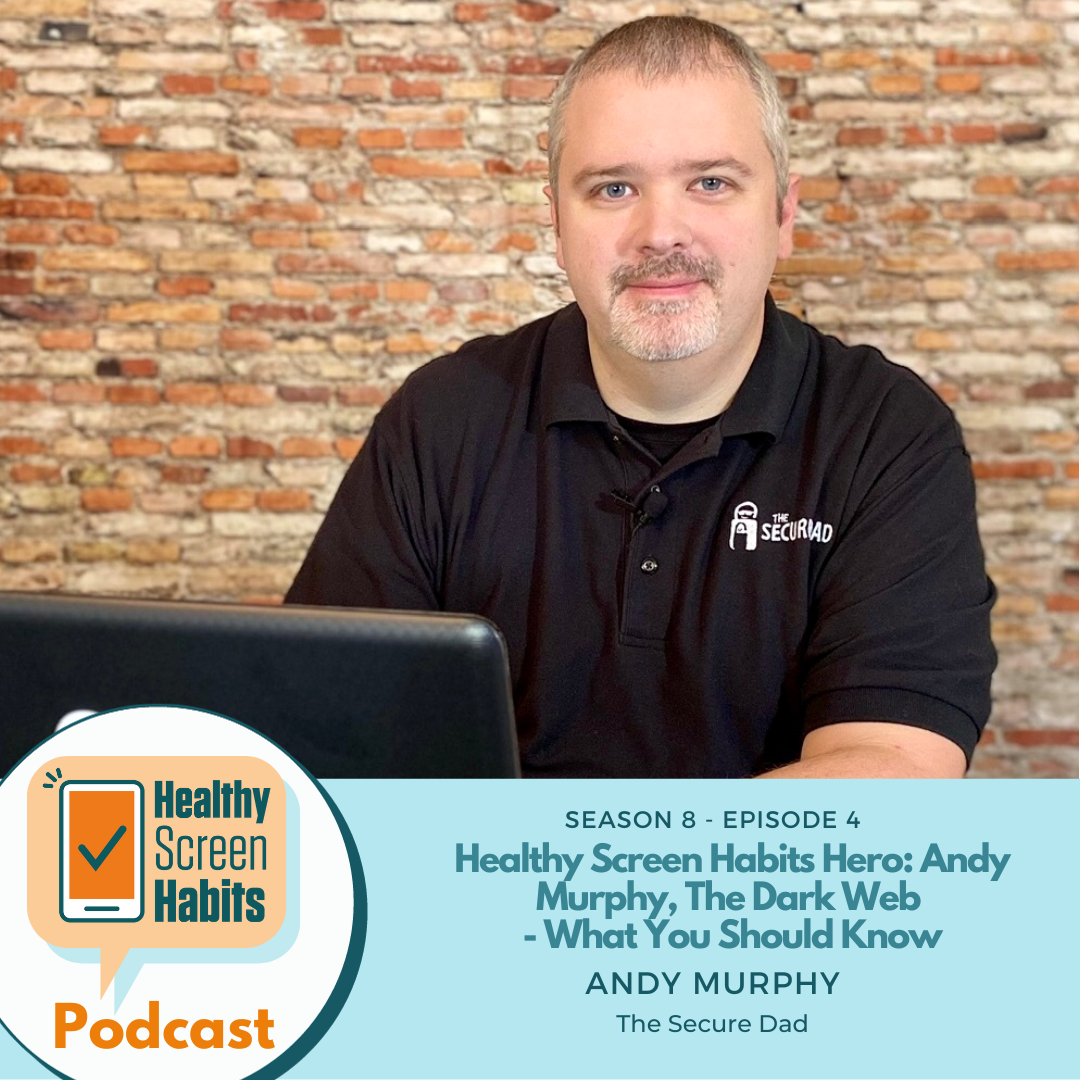
Andy Murphy founded The Secure Dad in 2016 realizing that every parent is a protector. Andy’s passion is to help families live safer, happier lives. The information Andy provides is based on proven methods, experience, and study.
In this episode Hillary and Andy discuss the Dark Web, what parents should know about it and a current scam that is rumored to use AI duplication of your child’s voice.
Andy provides actionable tips and information that every parent can employ. Listen now!
Habits & Lifestyle
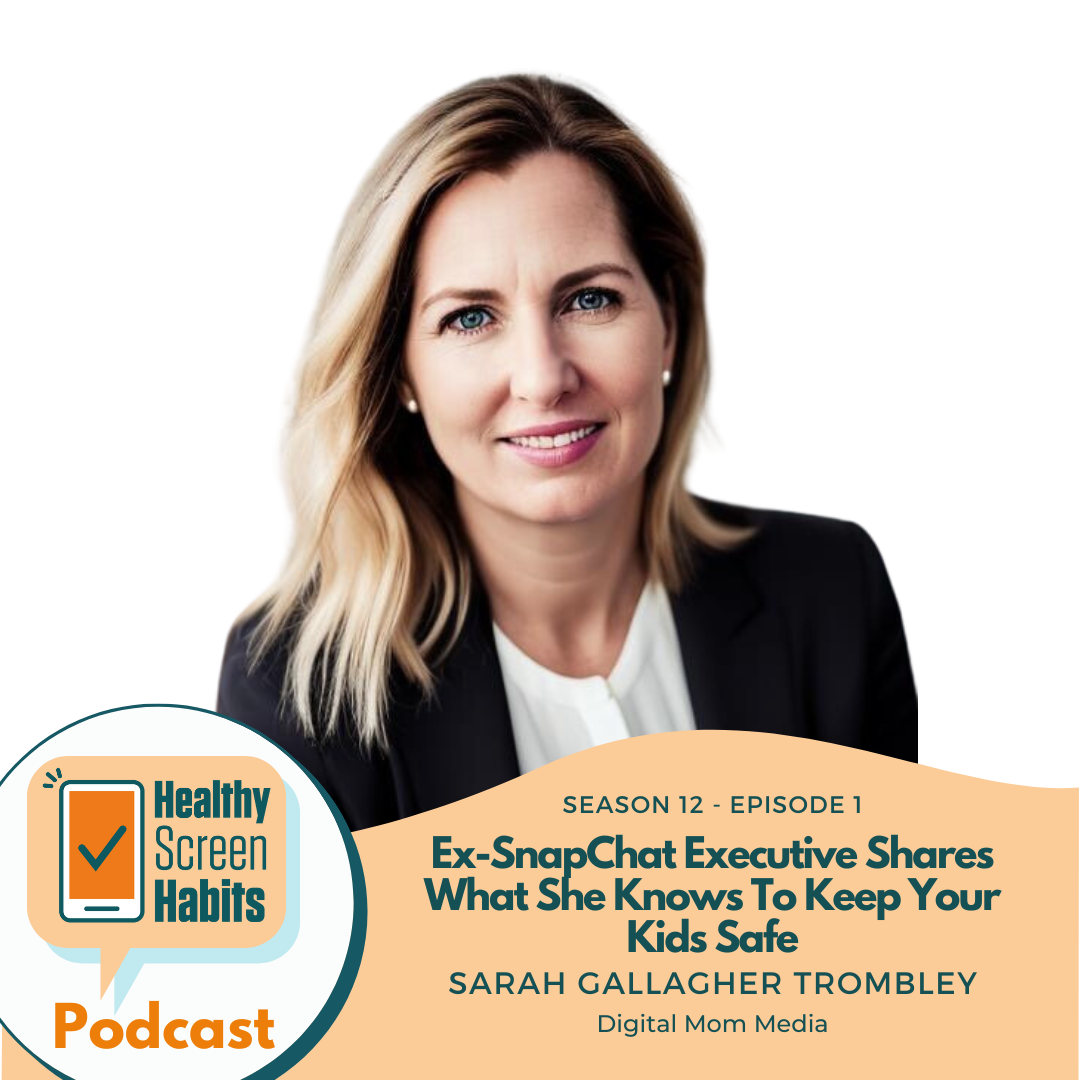
Sarah Gallagher Trombley is on a mission to help parents navigate the digital world with and for their kids by providing insight, advice, and practical tips. Her work and messages cover a wide range of digital topics, including social media, new tech, and apps. As a former Snapchat executive, she saw firsthand how tech companies make decisions about child safety. (spoiler alert: it’s dismal)
On today’s episode she shares what she knows about parental controls, setting them up, and finding good solutions for families in our digital age.
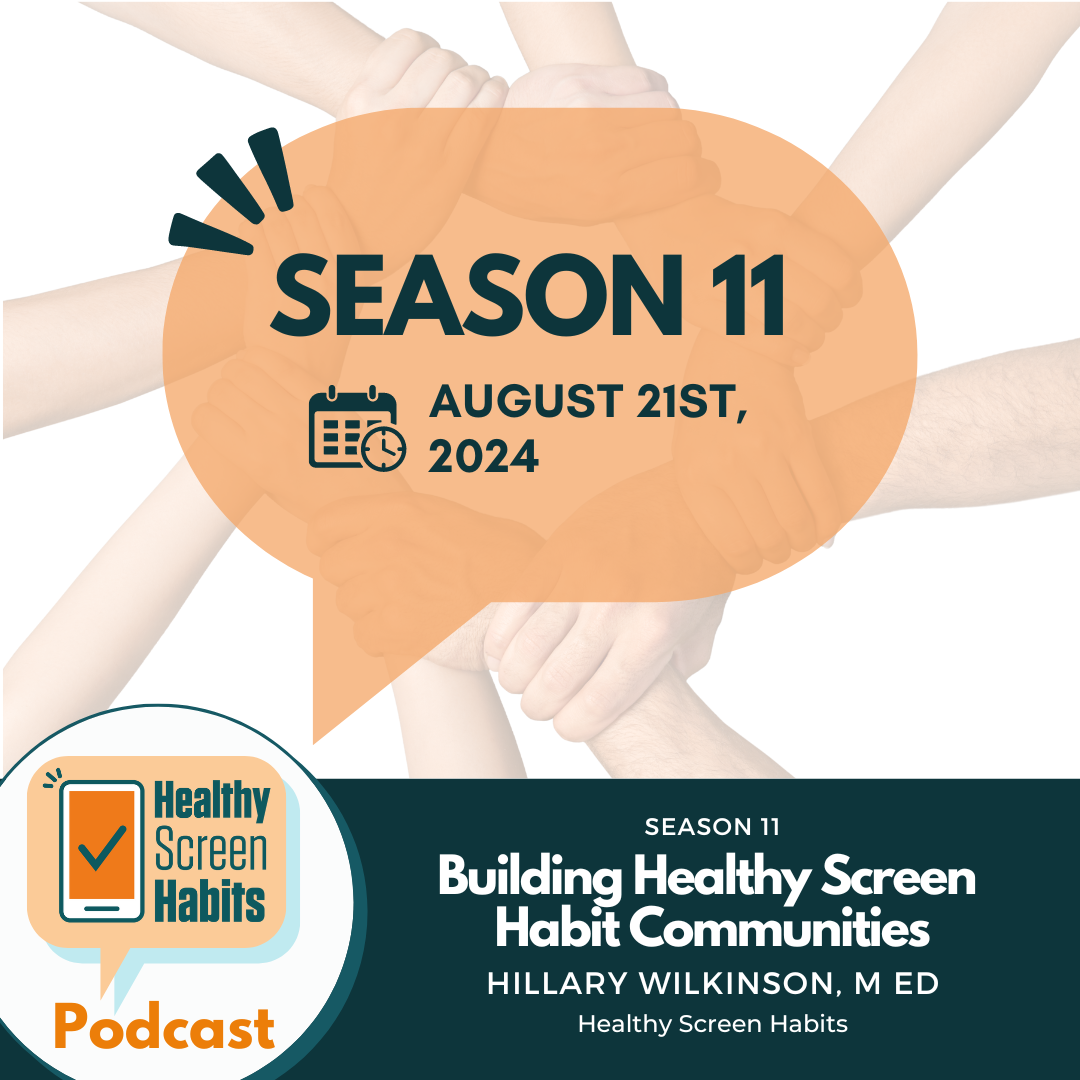
Healthy Screen Habits had an amazing summer filled with family adventures, shared memories and - most exciting of all - the publication of our first workbook! Healthy Screen Habits for Tweens and Teens - A training workbook to help you use your phone wisely is now available. Whether your child is new to owning a phone or even if they've had one for a while, chances are they're still figuring out the DOs and DON’Ts of using a smartphone wisely. This workbook is here to help you and your child navigate life in the digital world! We’ve put together all the information, tips, hacks, and rules to ensure that their phone is a useful tool that THEY CONTROL, not the other way around.
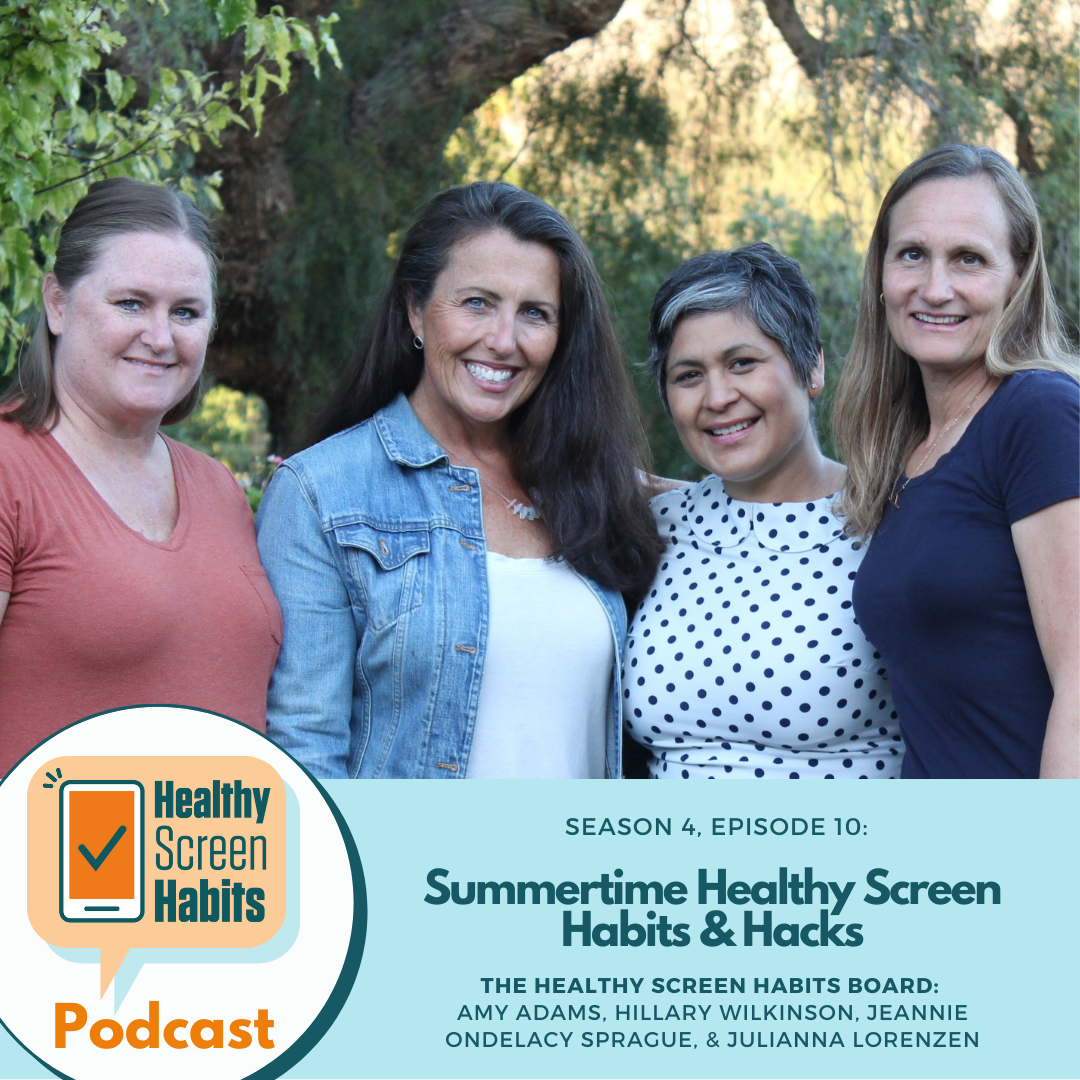
Summer is barreling down on us and while some are ready for the lazy mornings and unscheduled days, others are already starting to agitate over how to navigate these coming weeks without succumbing to the allure and ease of too much screen time. This week we get the full collective knowledge of the moms of Healthy Screen Habits– Amy Adams, Jeannie Ondelacy Sprague, Julianna Lorenzen, and me, Hillary Wilkinson– to share our tips, tricks and hacks on how to have a balanced summer with tech.
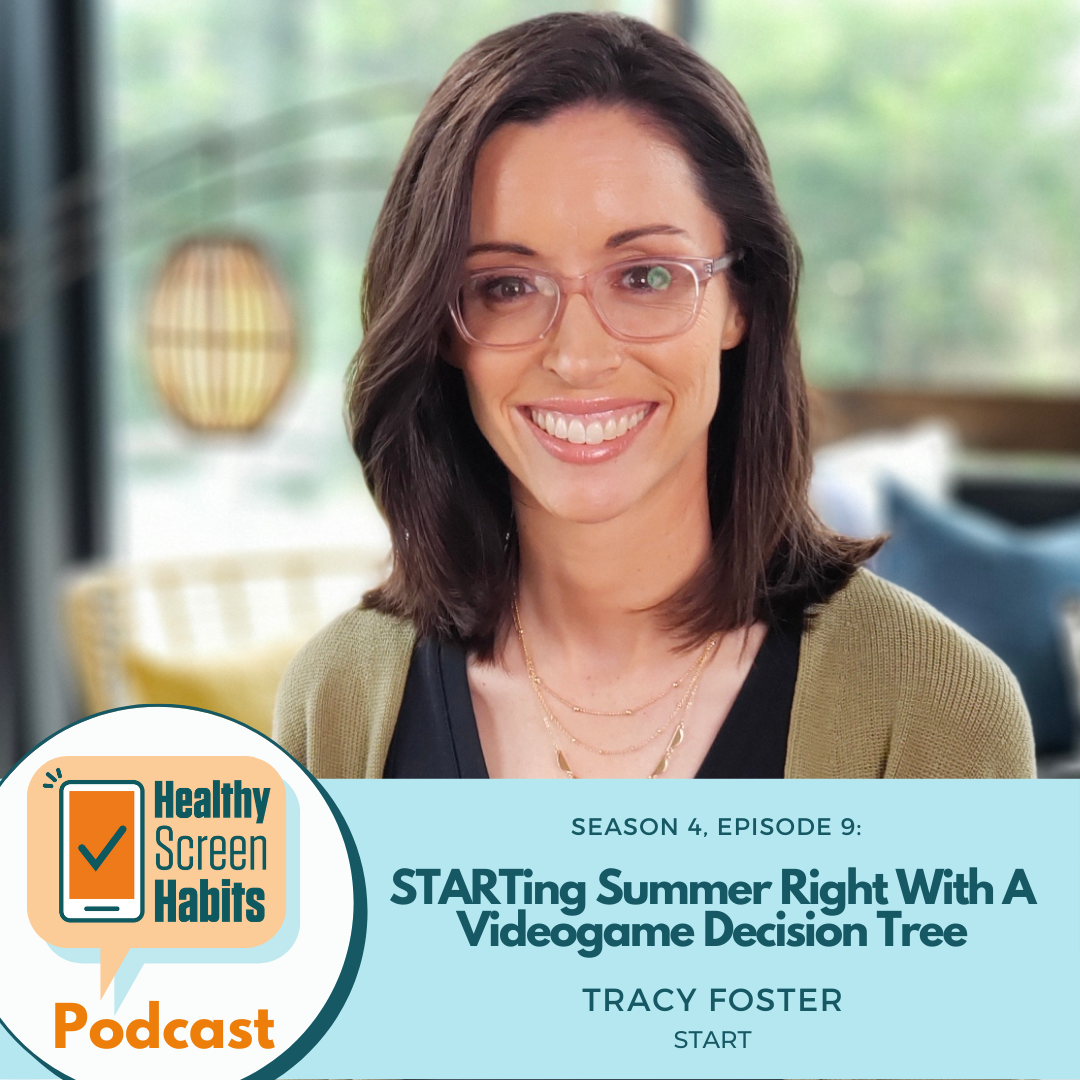
Summer is coming and how do we teach kids to self-regulate around time spent video-gaming? Tracy Foster from the organization START teaches all about their tool called the “video game decision tree”. In this episode we talk about the founding philosophy and components of START as well as go over this invaluable tool to help parents maintain summer sanity!
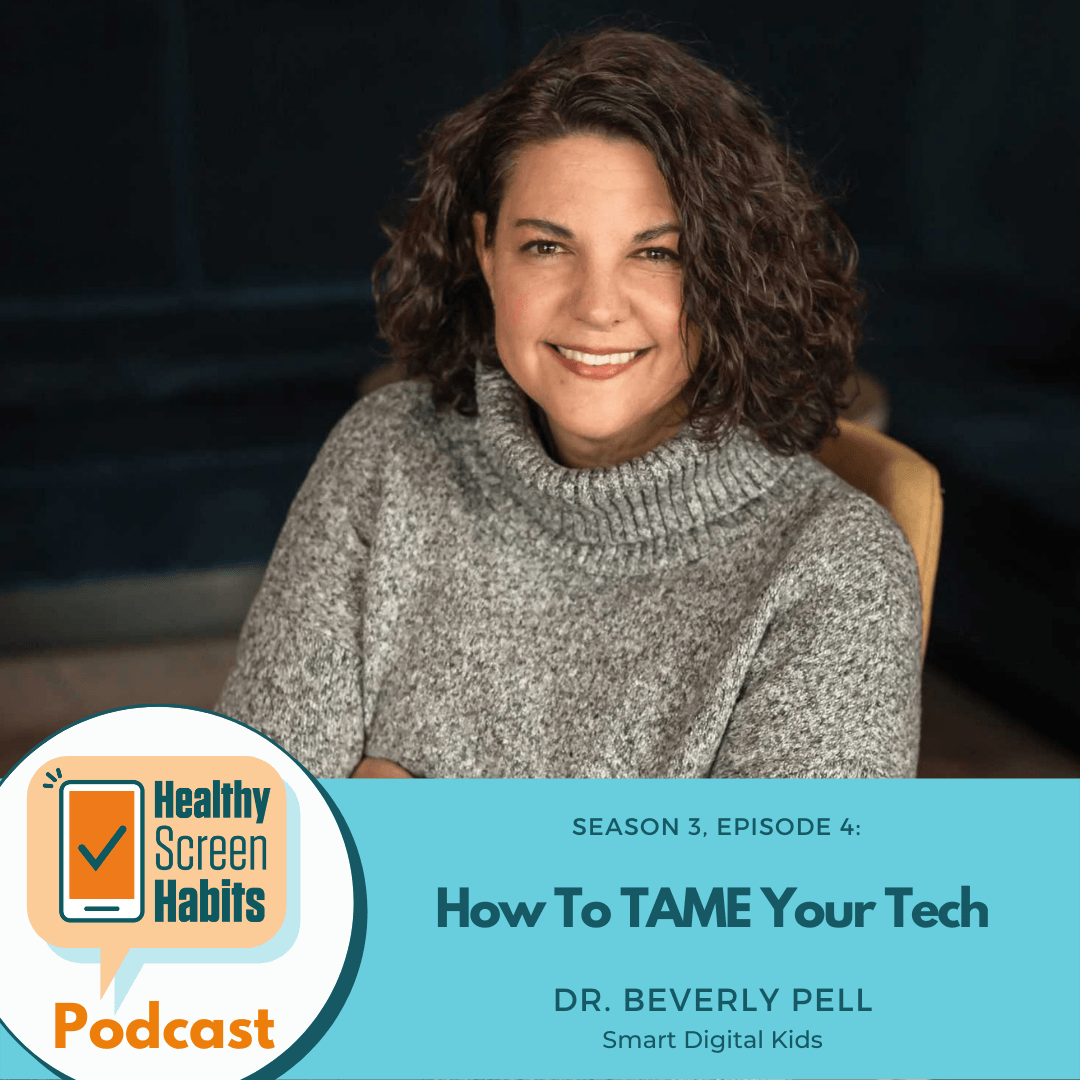
As the founder of Smart Digital Kids, Dr. Beverly Pell is committed to empowering parents and educators to raise kids who use tech in smart ways, intentionally, responsibly, and creatively. She also wants to teach how to use tech to promote purpose and wellbeing. In this episode, we talk about her method in which we all learn how to TAME our tech and increase our connection as a team.
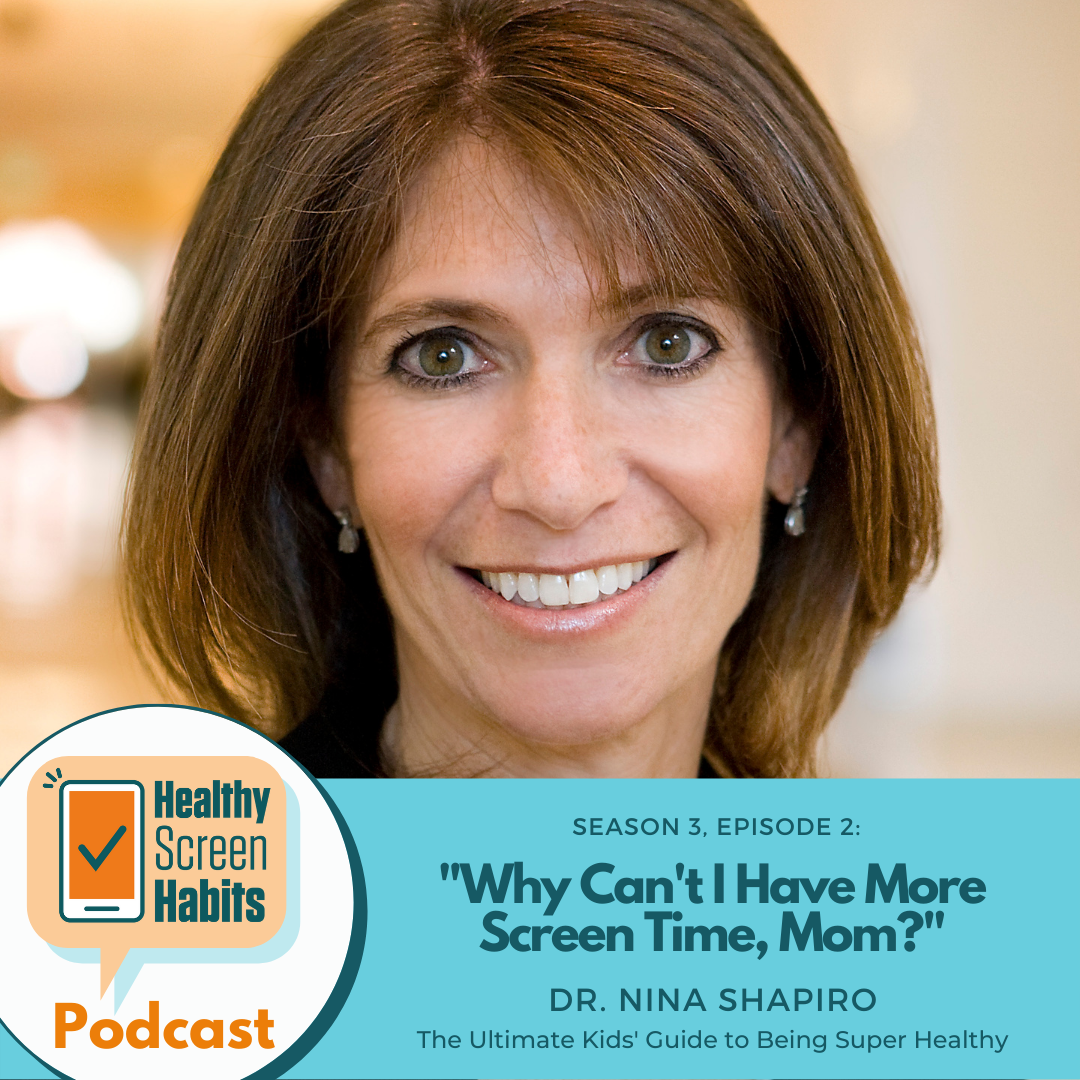
Dr. Nina Shapiro has been taking care of children for nearly 25 years. One of the things she has learned along the way is: The more you empower kids with knowledge surrounding their own health, the better they apply healthy habits! In this episode, we tackle the ever present question, “Why Can’t I Have More Screen Time?”
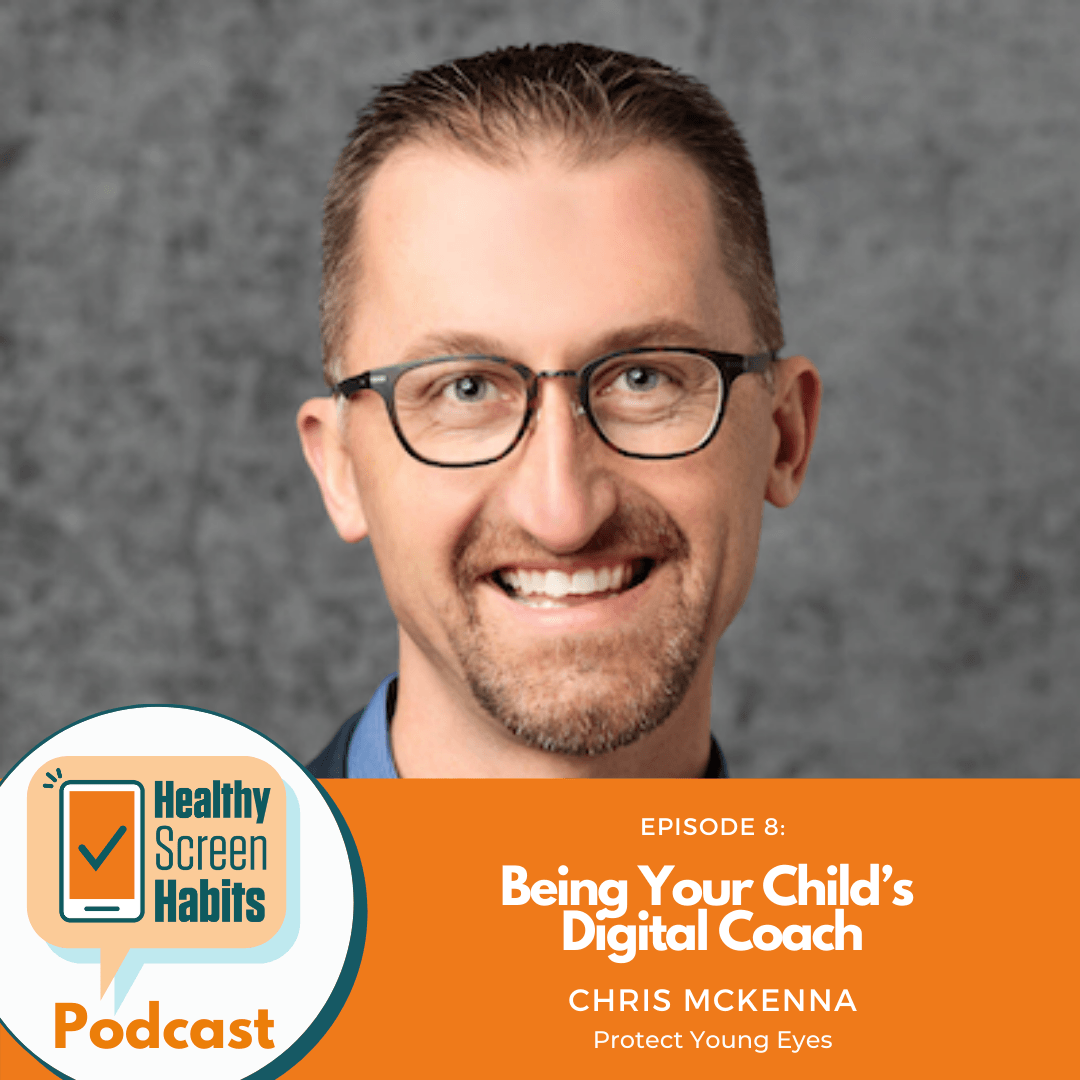
Chris McKenna is the founder and CEO of Protect Young Eyes, an organization committed to helping families, schools and churches create safer digital spaces. He employs a 4 layer method to controlling digital access and encourages all families to have multiple conversations surrounding pornography and internet overuse.
In this episode, Chris discusses the benefits of becoming your child’s digital coach and chooses his favorite candy.
Mental Health & Technology
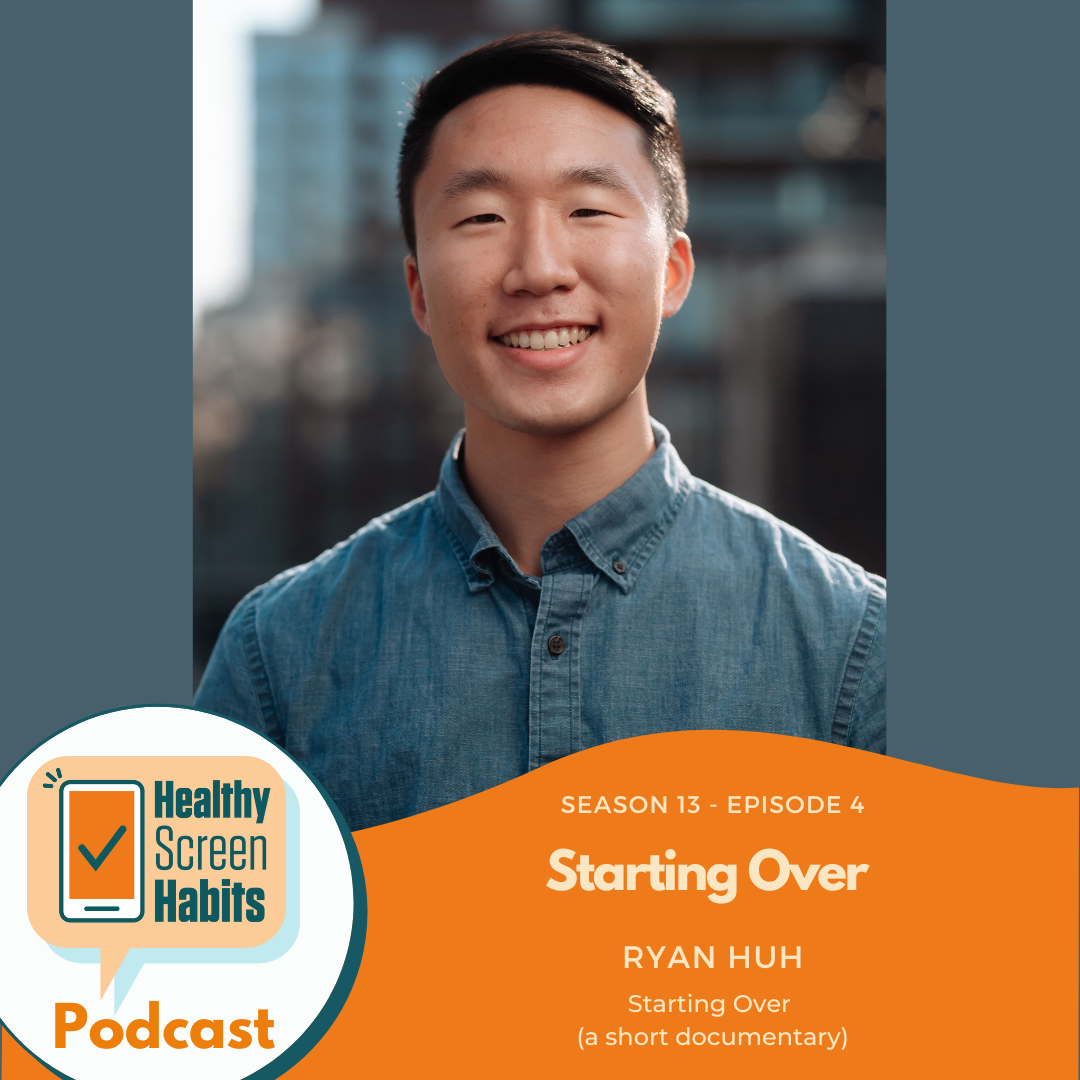
Director Ryan Huh has a fantastic new short documentary for you to explore. Starting Over is the story of four young men engaged in recovery from digital addiction. It is set in the ReSTART Life residential program and can serve as a great conversation starter for families looking to have a good talk about tech.
On this episode, Ryan told me what he learned along the way while creating Starting Over. Spoiler: It’s got nothing to do with tech and everything to do with empathy. Listen now!!
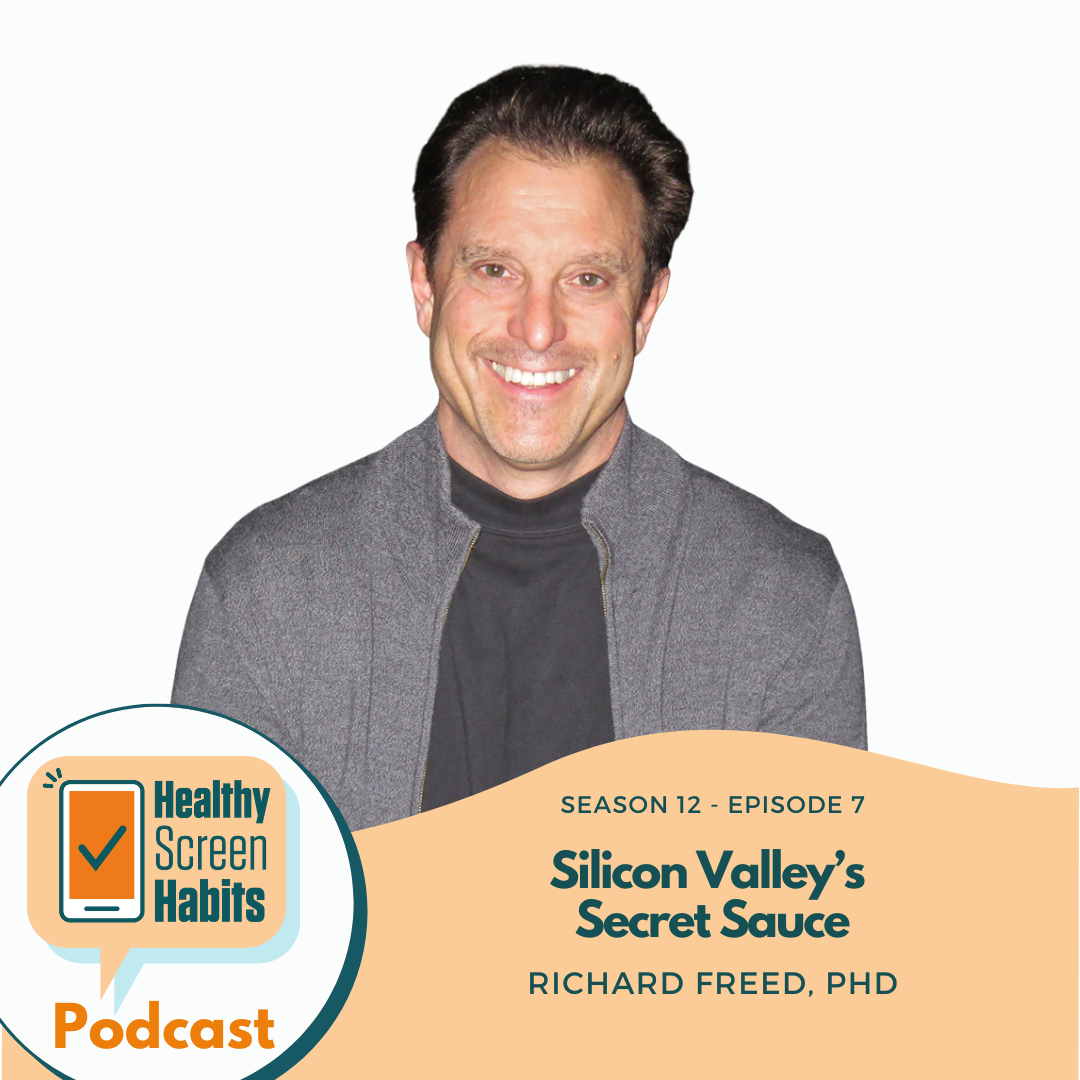
Richard Freed is a psychologist and author of the new book "Better Than Real Life: How Silicon Valley's Secret Science of Persuasive Design Is Stealing Childhood."
Dr. Freed has devoted his career to revealing how Silicon Valley industry is using psychology—a discipline that we associate with healing—as a weapon against kids in order to pull them online and keep them there. This is achieved through the virtually unknown science of persuasive design, which is concealed in social media, video games, and online video. Freed believes that the knowledge of persuasive design should no longer be the domain of a handful of tech elite but should be put in the hands of all parents and others who care for kids. In this episode we talk about this and the 2 things kids need most to grow and succeed.

Dr. Ashley Harlow is a dad of four who definitely understands the complexities of parenting with healthy boundaries around screen time. As a licensed child and adolescent psychologist at Children's Nebraska in Omaha, he has practical tips that can empower families to create a balanced approach.
On this episode we talk about social media, chatbots and warning signs of depression to look out for.
Listen now!
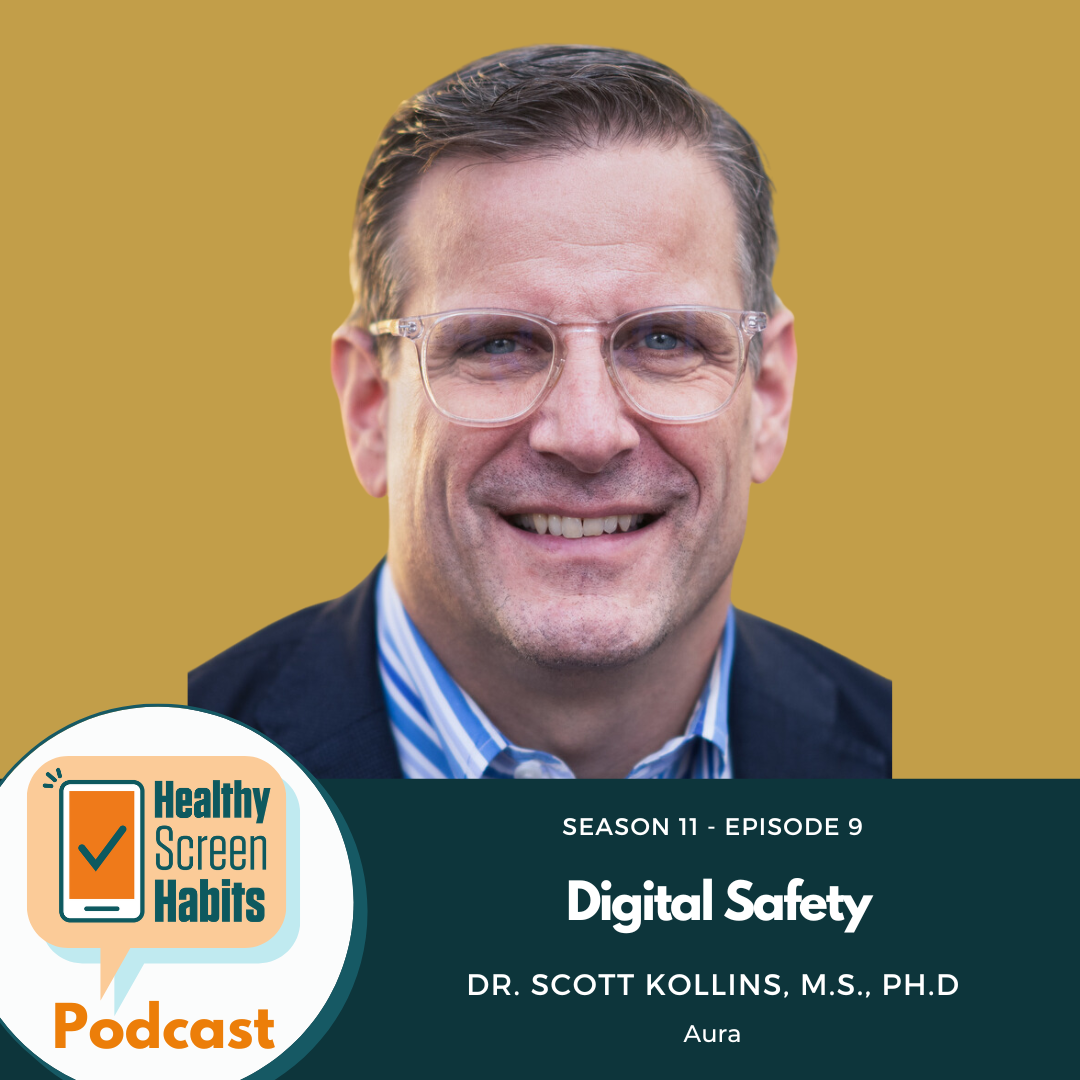
With a mission to create a safer internet for everyone and huge celebrity endorsements in Hollywood, Aura has taken the digital safety sphere by storm. Dr. Scott Kollins joined Aura @aura_protects as its Chief Medical Officer. Wielding a robust background in clinical psychology and digital health, his career includes significant contributions to the development of digital therapeutics and mental health solutions. Kollins role at Aura is critical in shaping the company's approach and parent understanding of youth safety and mental wellness in the digital era.
Listen today to see what you think - will you be interested in trying out Aura?
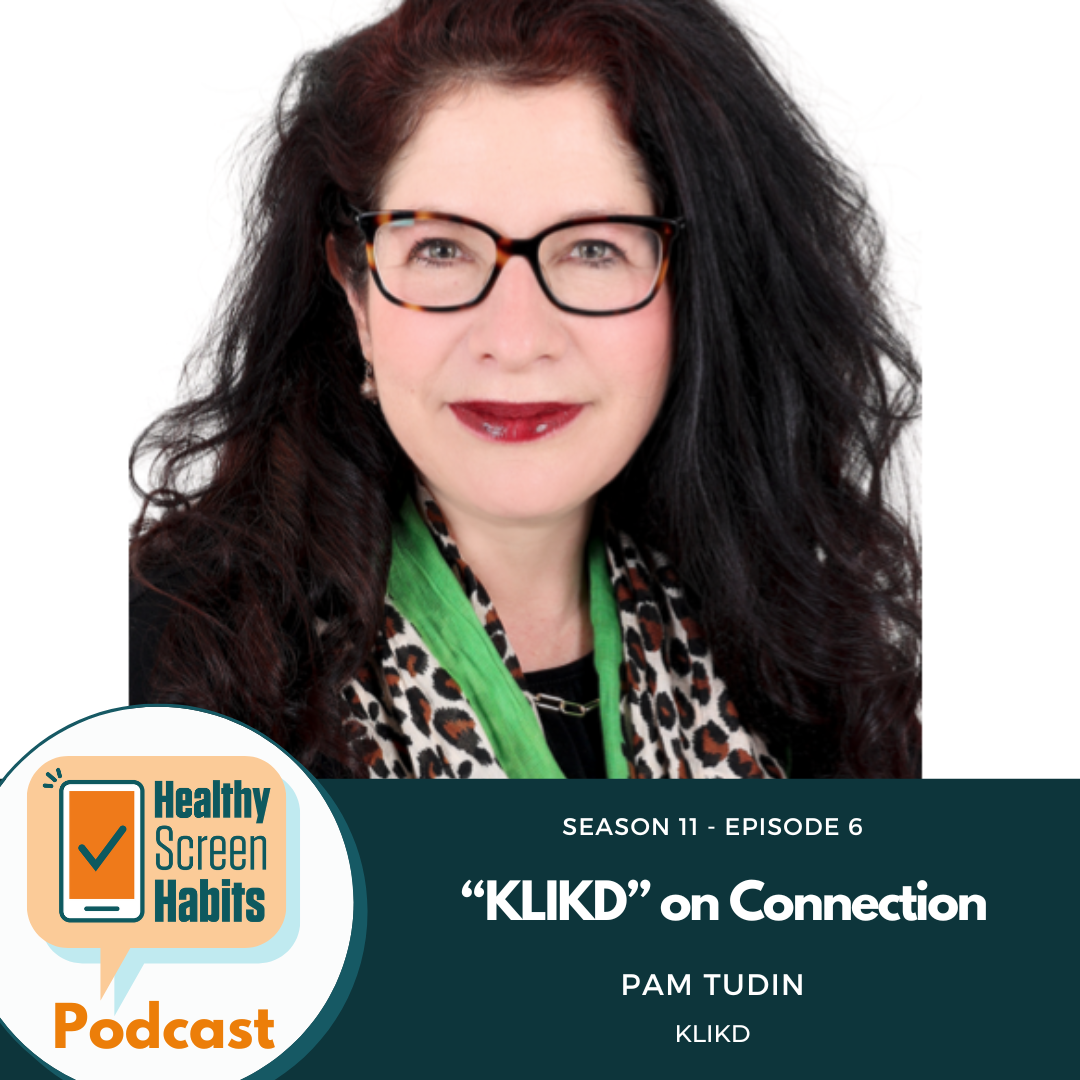
Pam Tudin is very familiar with the struggles and triumphs of the human condition as a clinical and forensic psychologist. She's an international speaker on all matters teen and tween and the co-founder of KLIKD, an organization committed to providing, can-do solutions for families to use social media happily, safely, and responsibly. In this episode we talk about the importance of being the soft place for your child to land when they make an online mistake and so much more. Listen today!

Playing outside is so much more than physical activity. Some of the many benefits include fitness, vitamin D and sleep. Being in nature also enhances focus and attention, it improves problem solving, reduces stress, increases empathy, improves mood. The influence of nature is dramatic and pervasive for all of us. There was a study that said that hospital patients, who have views of greenery outside their windows have shorter stays and fewer complications.
Reducing screen time, increasing time in nature has the potential to change lives. Listen to Jean Rystrom of the Screen Time Action Network introduce an amazing and FREE resource: The Children & Family Inspiration Guide. It’s got everything you need to encourage your kids to get offline and outside. Listen today!
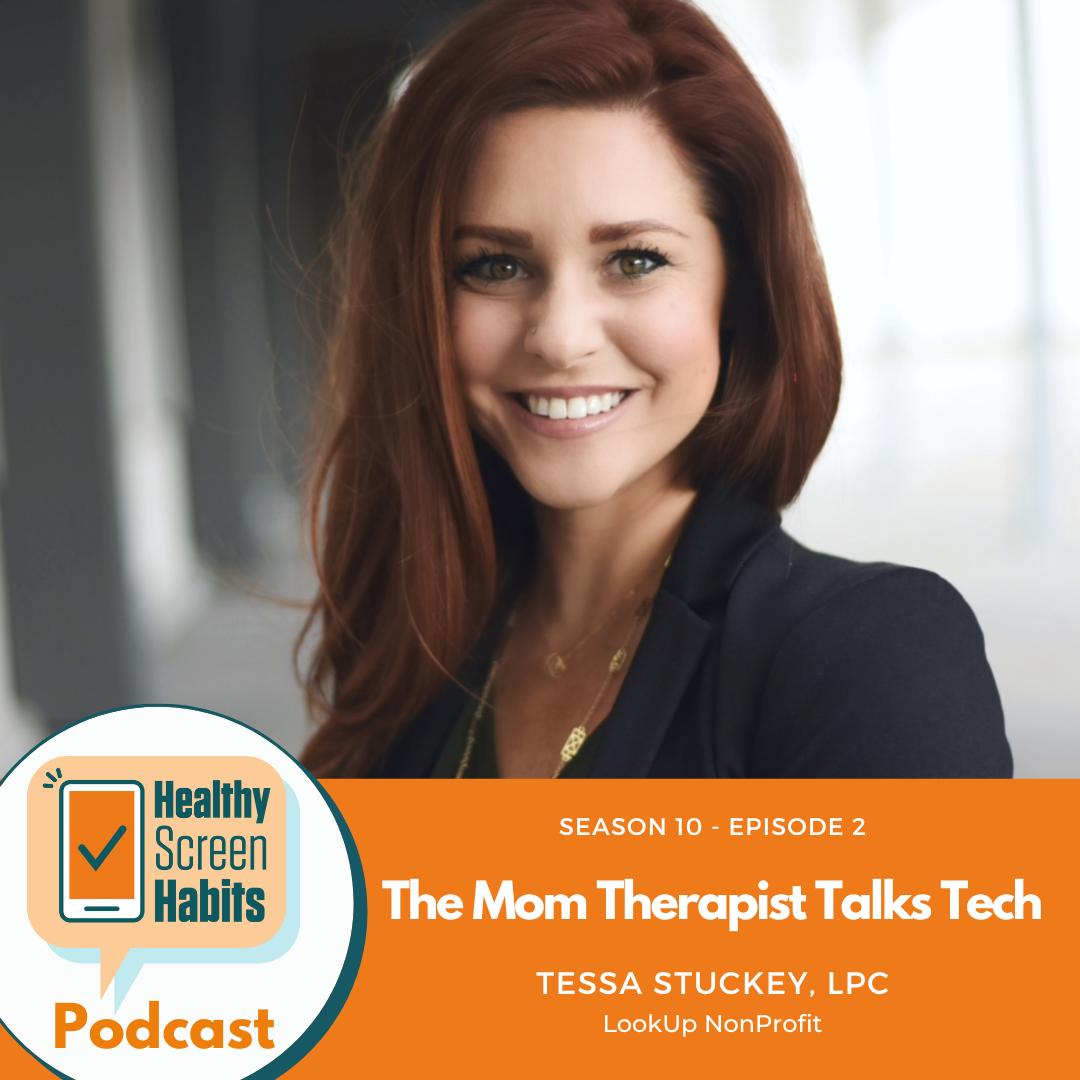
Tessa Stuckey, AKA:The Mom Therapist, works with families navigating the digital, tech-filled world that our kids are growing up in. Tessa takes on today’s negative cultural effects on our kids’ mental health from the perspective of a therapist but with the heart of a caring mother.
In this episode we talk about creating a healthier and positive lifestyle for the whole family through anxiety management, understanding online harms, necessary limits of screen use, and the need for healthy connection. Listen now!
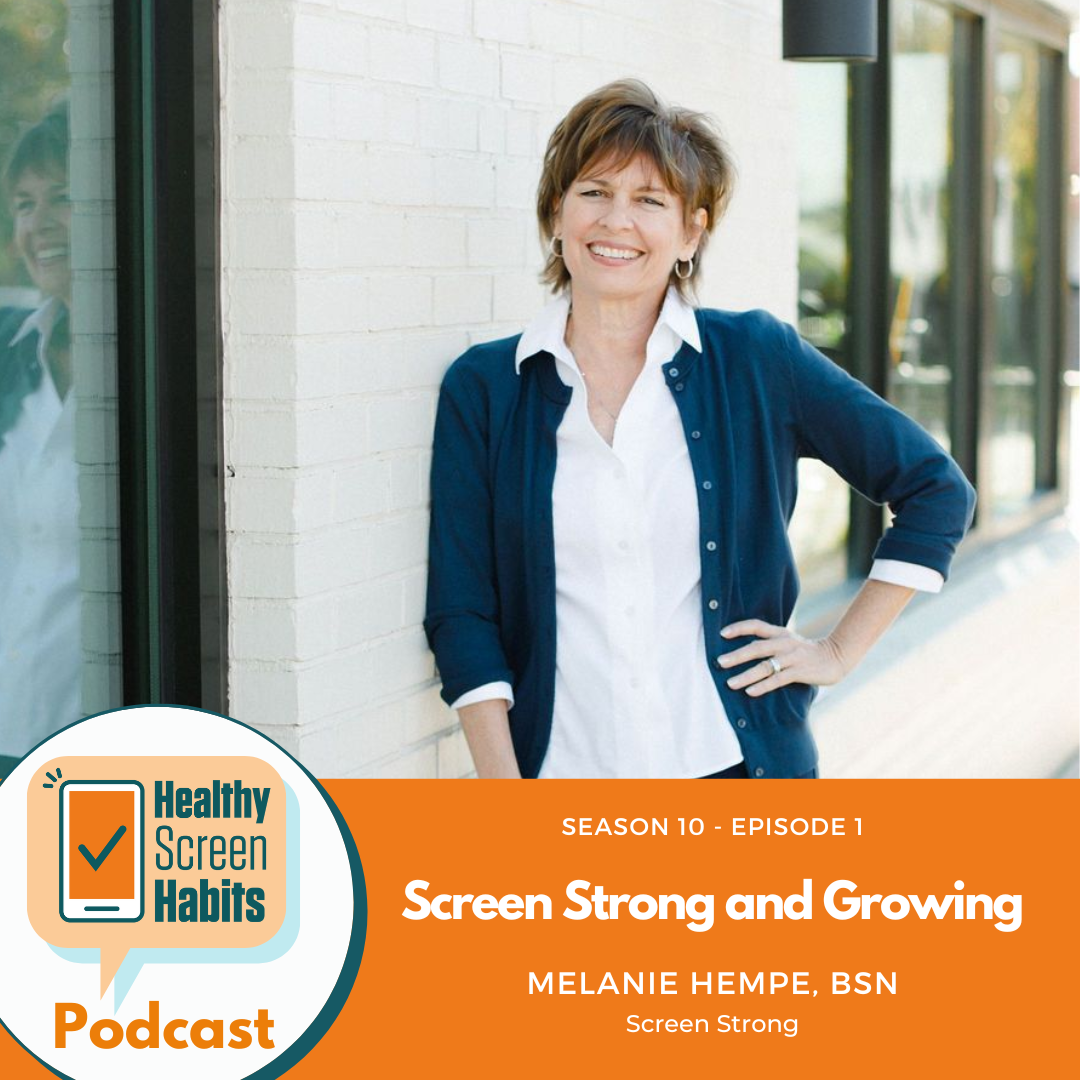
After her oldest son dropped out of college due to his video game addiction, Melanie Hempe put her nursing degree to good use and founded Screen Strong,@bescreenstrong a nonprofit that empowers families to prevent screen problems and reclaim their kids from toxic screens.
Listen to this episode and learn how your family can stop fighting over screens, kids can gain more life skills and everyone can benefit!
Nature & Technology Connections
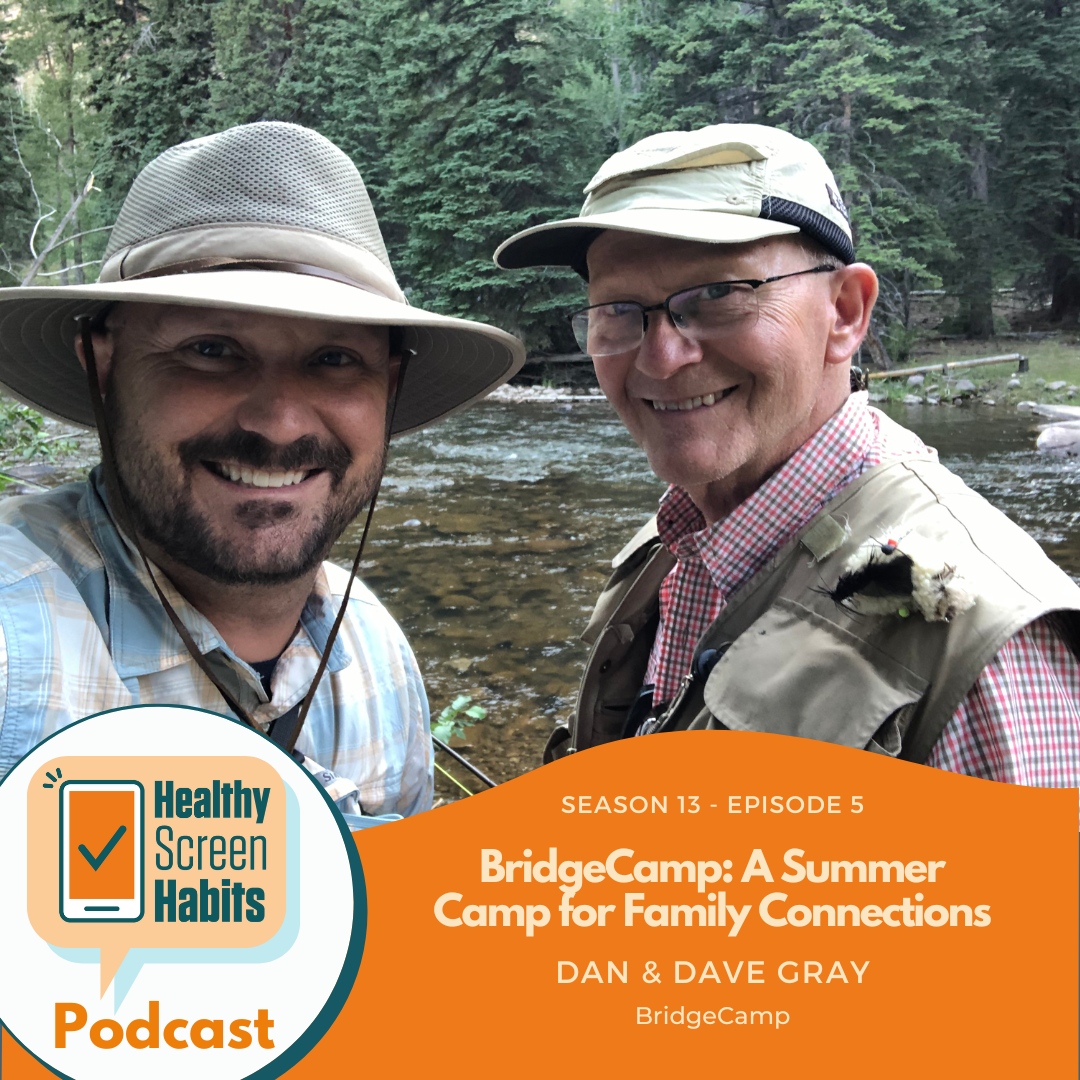
Dan and Dave Gray are the father-son co-founders of BridgeCamp. On this episode we talk about the power of human and relational connection, particularly between parents and their kids. The stronger the connection is between parents and their teens, the more likely the teen will make better and healthier life decisions, especially as they transition into adulthood. Dan and Dave help create oppotunities for connection with BridgeCamp - a unique experience that brings parents and teens together. Want to go to summercamp and come home with a happier, healthier family life? Learn how by listening now!
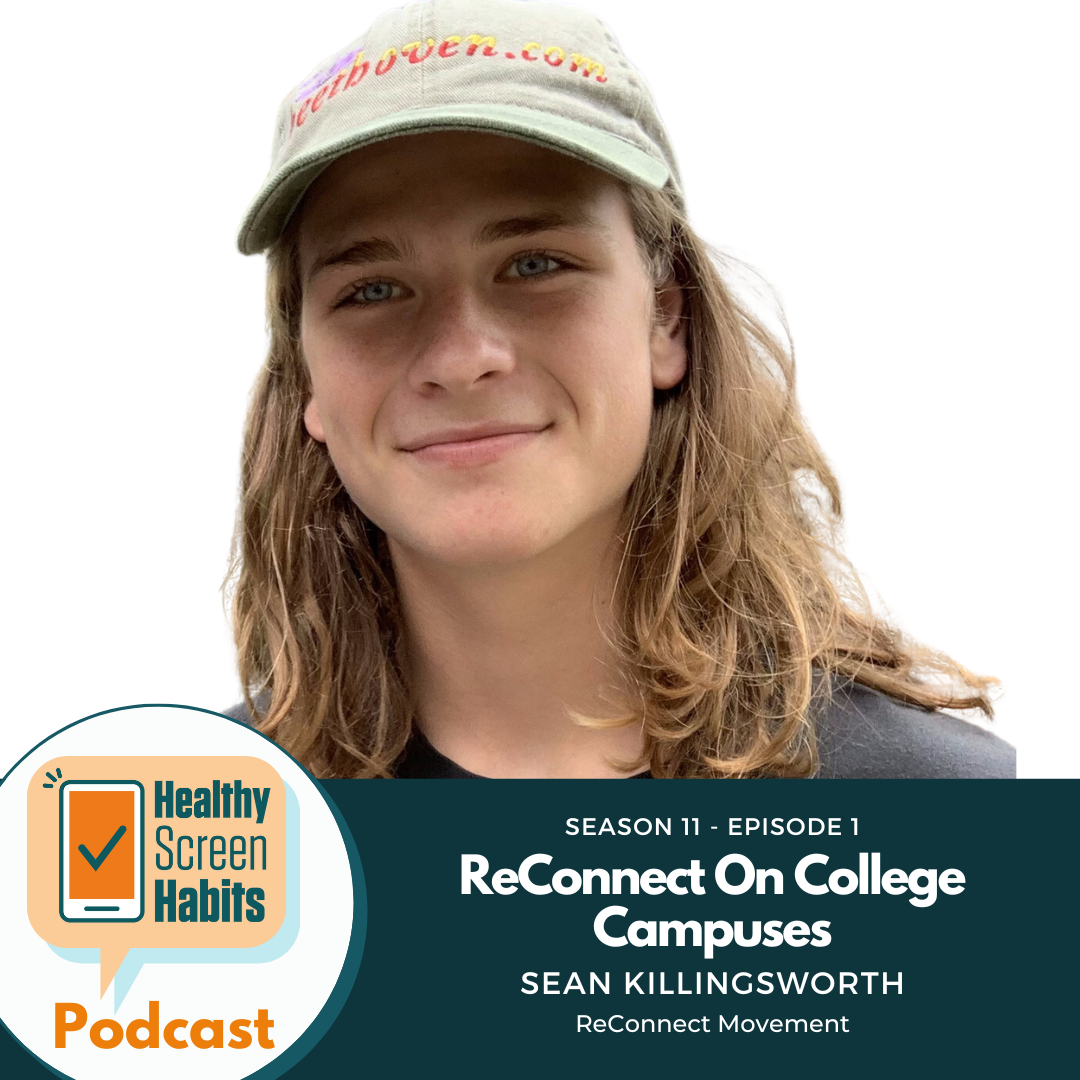
Recognizing that being on social media felt like an unwanted requirement for him to socialize as a teen and young adult, Sean Killingsworth created: Reconnect Movement. Looking to combat what Killingsworth calls the “social wasteland” created by a generation’s overuse of tech, ReConnect Movement builds in-person communities to detox from distractions, make friends, and just hang out.
Reconnect Movement serves to provide offline balance for those who don't want to be on social media.

Playing outside is so much more than physical activity. Some of the many benefits include fitness, vitamin D and sleep. Being in nature also enhances focus and attention, it improves problem solving, reduces stress, increases empathy, improves mood. The influence of nature is dramatic and pervasive for all of us. There was a study that said that hospital patients, who have views of greenery outside their windows have shorter stays and fewer complications.
Reducing screen time, increasing time in nature has the potential to change lives. Listen to Jean Rystrom of the Screen Time Action Network introduce an amazing and FREE resource: The Children & Family Inspiration Guide. It’s got everything you need to encourage your kids to get offline and outside. Listen today!
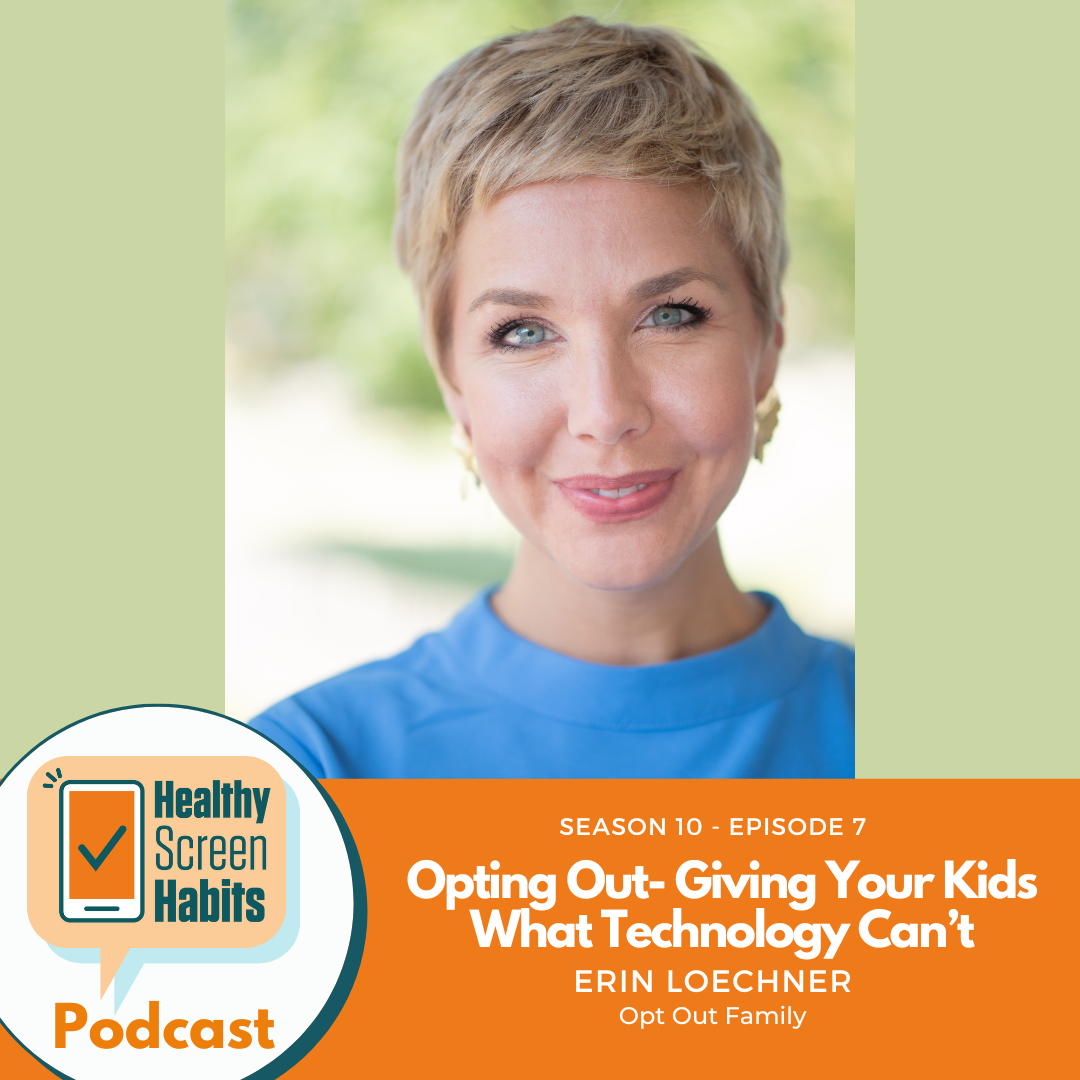
Erin Loechner is a former social media influencer who walked away from a million fans to live a low-tech lifestyle and is now teaching others how to do the same! As the founder of the global tech-free movement The Opt-Out Family, Erin has authored The Opt Out Family - How To Give Your Kids What Technology Can't. This book is written in a way that is part guide, part interactive and best of all it’s written in Erin’s friendly encouraging voice.
In this episode we talk about how to talk to schools, coaches and other parents, set intention in your home and so much more.
Listen today!
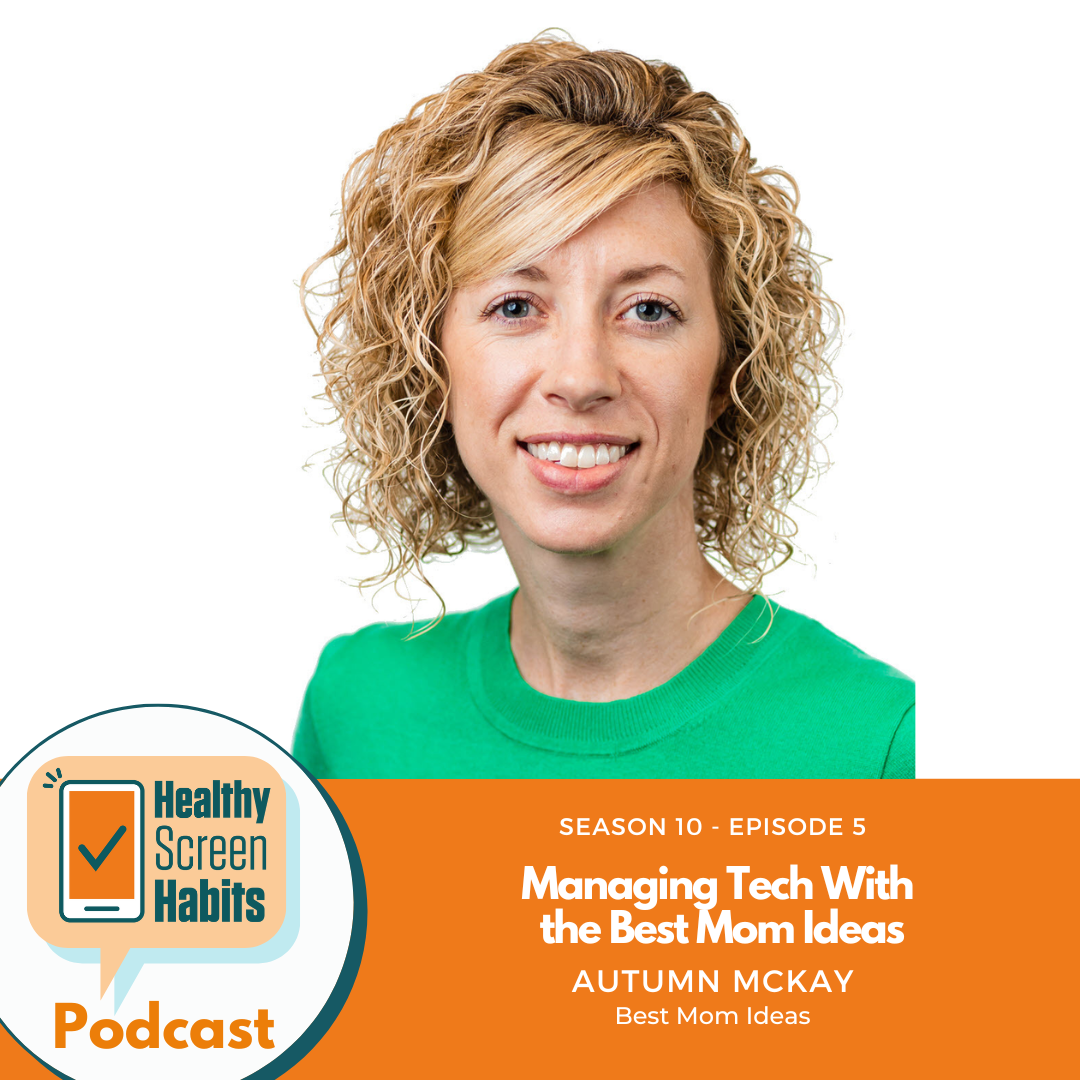
Autumn McKay is a childhood educator, author and parent, she has navigated the challenges of screen time management with her own kids and faced the very familiar scenario of dealing with tech tantrums and the “10 more minutes” meltdowns. In short, she's one of us! She's in the trenches.
In this episode we talk about steps to take in early child development to foster lifelong success.
Listen today!
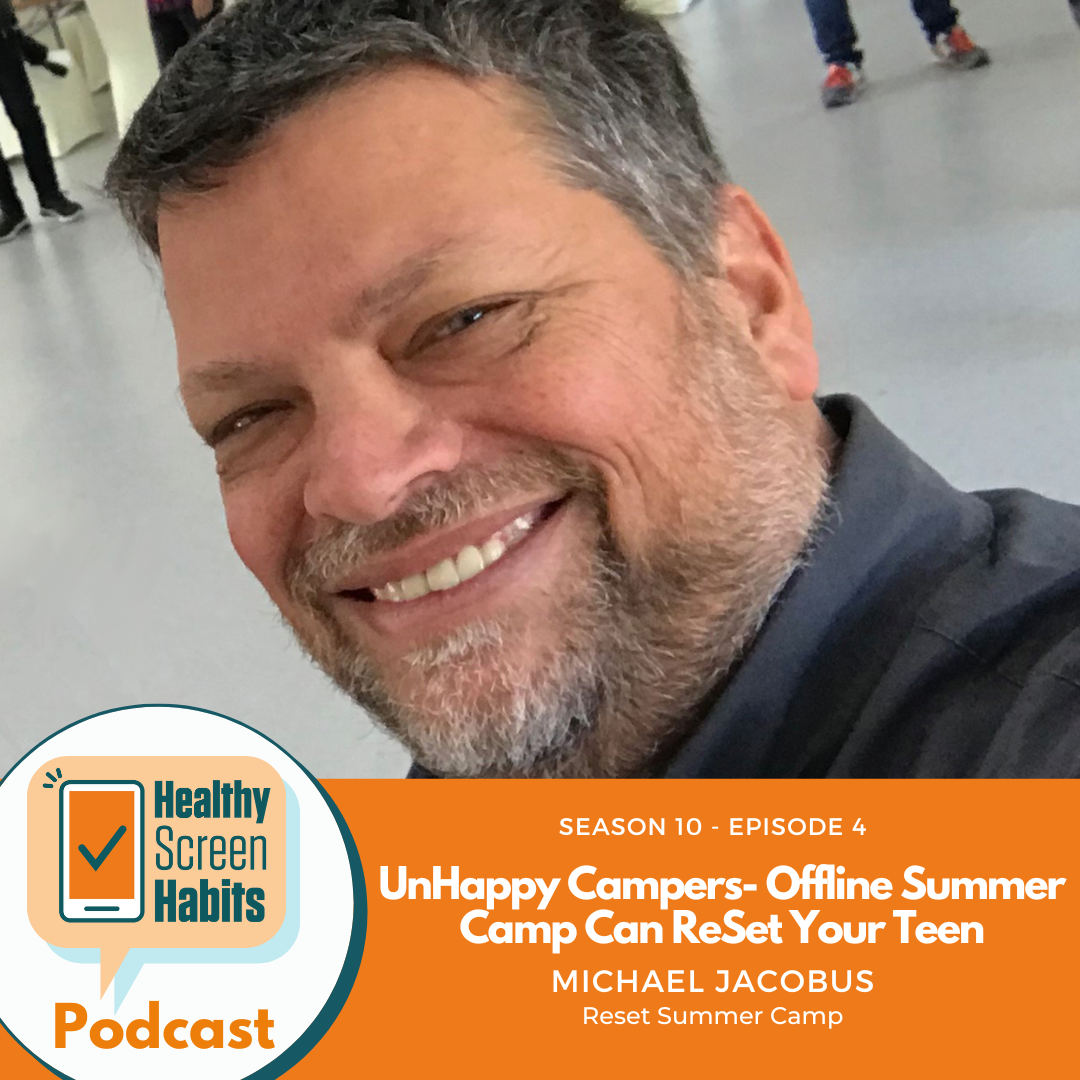
Michael Jacobus figured out how to get more magical summer camp days out of his life by combining his knowledge of digital wellness with his experiences as a camp director for over 40 years. In the summer of 2018, he started the world's first clinical summer camp program for teens and adolescents suffering from unhealthy screen time, social media use, and gaming addiction.
Reset Summer Camp is a camp for digital detox and life skills. Michael’s book: UnHappy Campers is a great read and a fantastic resource for families who want to implement more structure around tech in their home. In this episode we discuss the book, the camp and the ReSet app
Listen today!
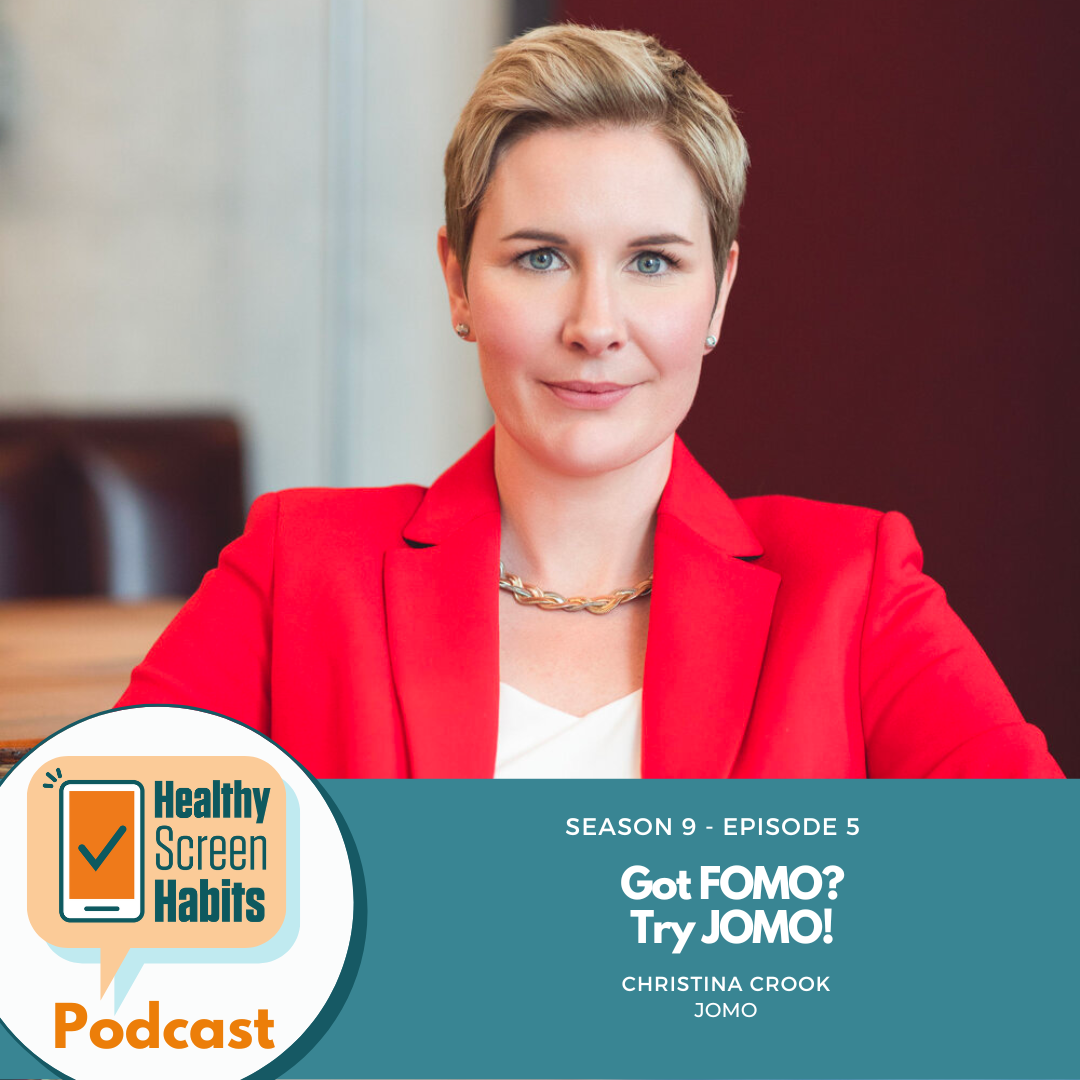
Christina Crook is a pioneer and leading voice in digital well-being.The award-winning author of The Joy of Missing Out: Finding Balance in a Wired World, harbinger of the global #JOMO movement, and Good Burdens: How to Live Joyfully in a Digital Age, Christina shares her insights about technology and our daily lives.
Listen and learn about living joyfully, managing tech and more!
Neurodiversity
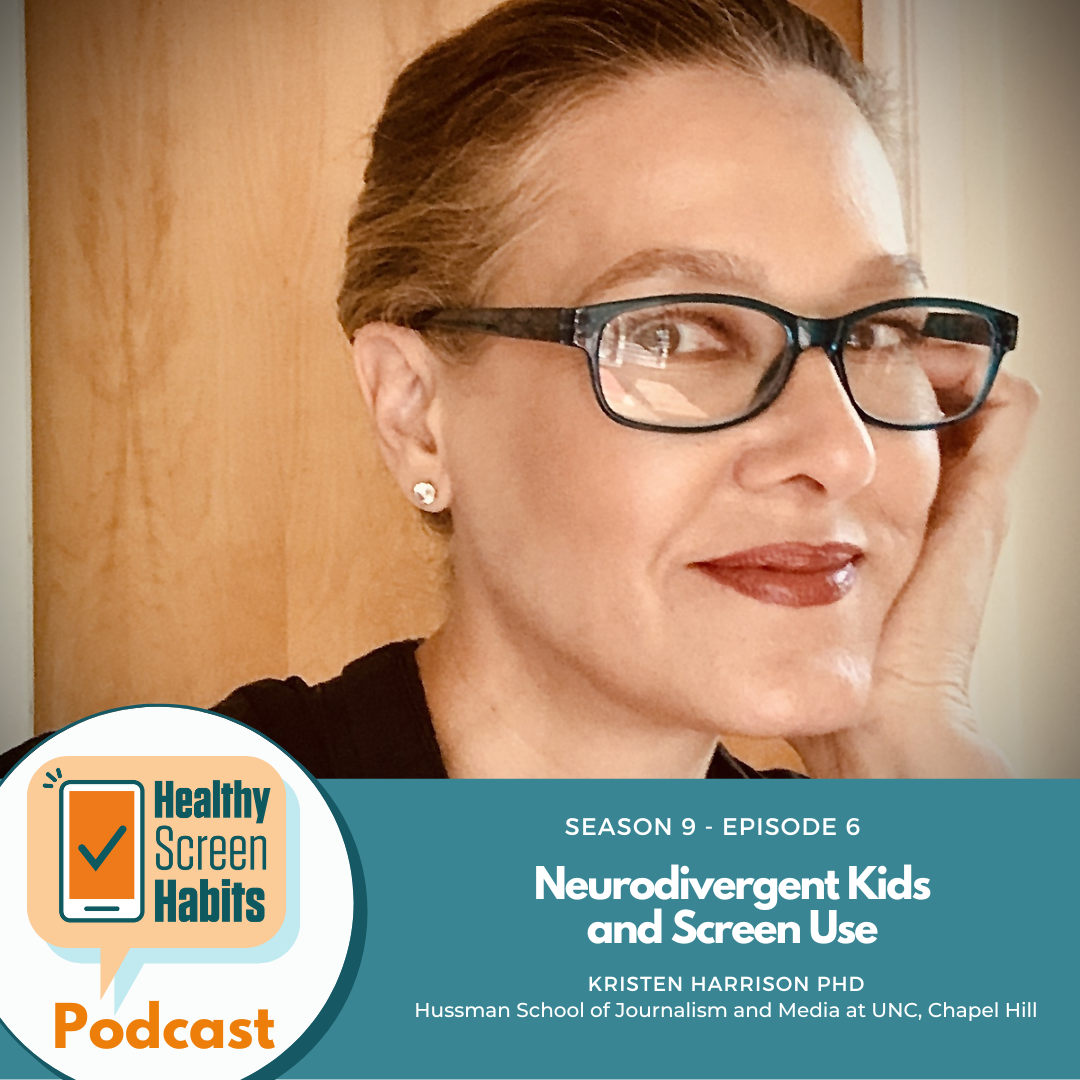
Kris Harrison, PhD is an expert in the relationships families have with media. As the Richard Cole imminent professor in the Hussman School of Journalism and Media at the University of North Carolina Chapel Hill, she studies children and media in a family context.
Recently, she's focused on children's use of media devices and content for sensory regulation and how this is connected with parent-child conflict around the child's media use.
Our conversation in this episode centers around neurodivergent children and how their needs for sensory input can vary hugely from their siblings and friends. Many ASD (Autistic Spectrum Disorder) adults and children are finding success with using technology as a portable control device for overwhelming environments.
It’s a really good conversation - one that changed the way I see restaurants and other public areas. I hope you’ll listen!
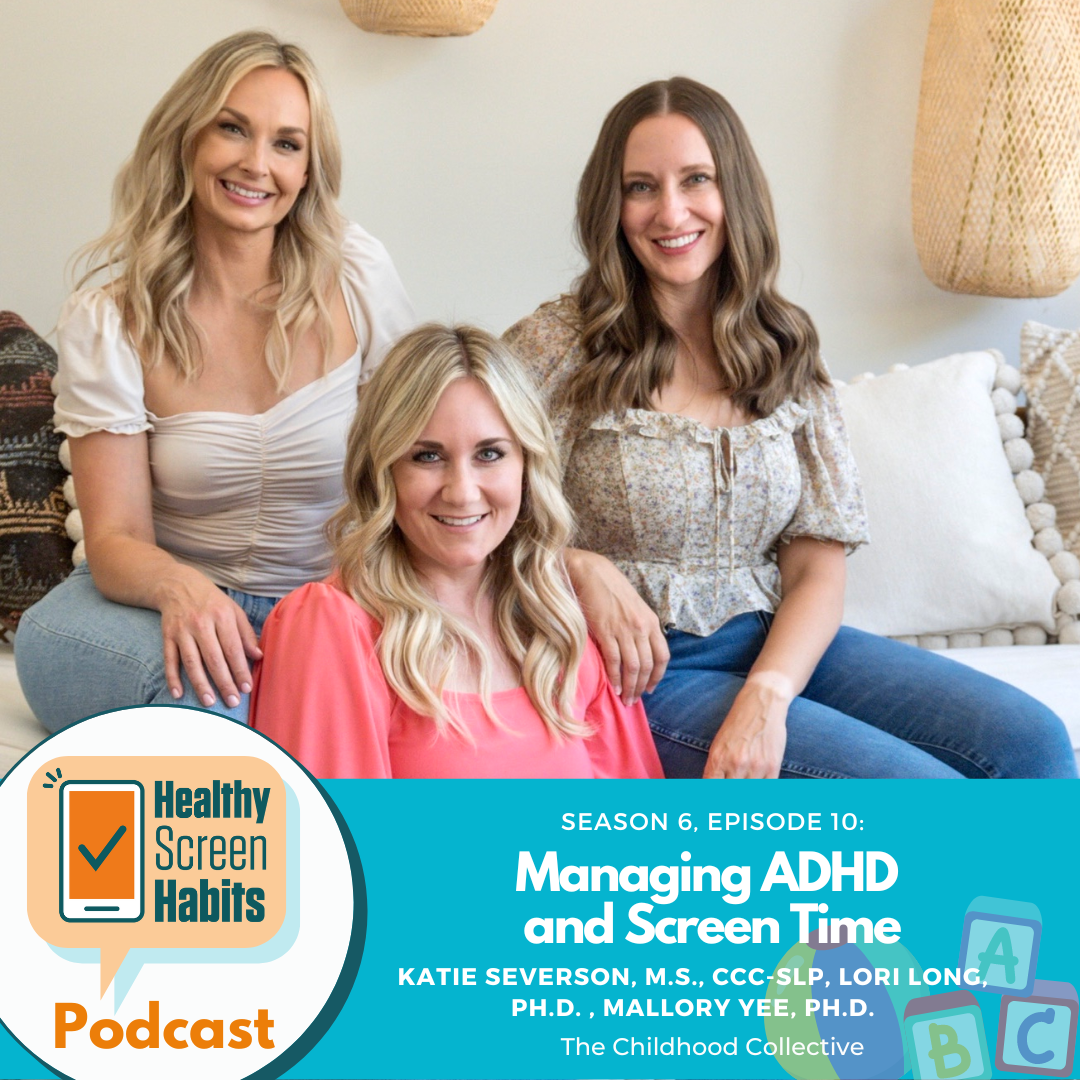
“My kid can’t have ADHD because he can play video games for 3 hours.”
“Screens help my child focus.”
Both of these statements are ones that we have been told by parents of kids with ADHD. I went to the experts at The Childhood Collective to figure out what’s going on with screens and ADHD. The Childhood Collective is a team of two child psychologists (Lori Long, Ph.D. and Mallory Yee, Ph.D.) and a speech language pathologist (Katie Severson, M.S., CCC-SLP). Most importantly, they are three moms who are dedicated to supporting parents of children with ADHD.
ADHD brains are designed to be hyper focused on novelty, something tech has perfected. We need to equip our ADHD kids with extra skills and tools to learn how to regulate and transition.
In this episode we learn about all of it!
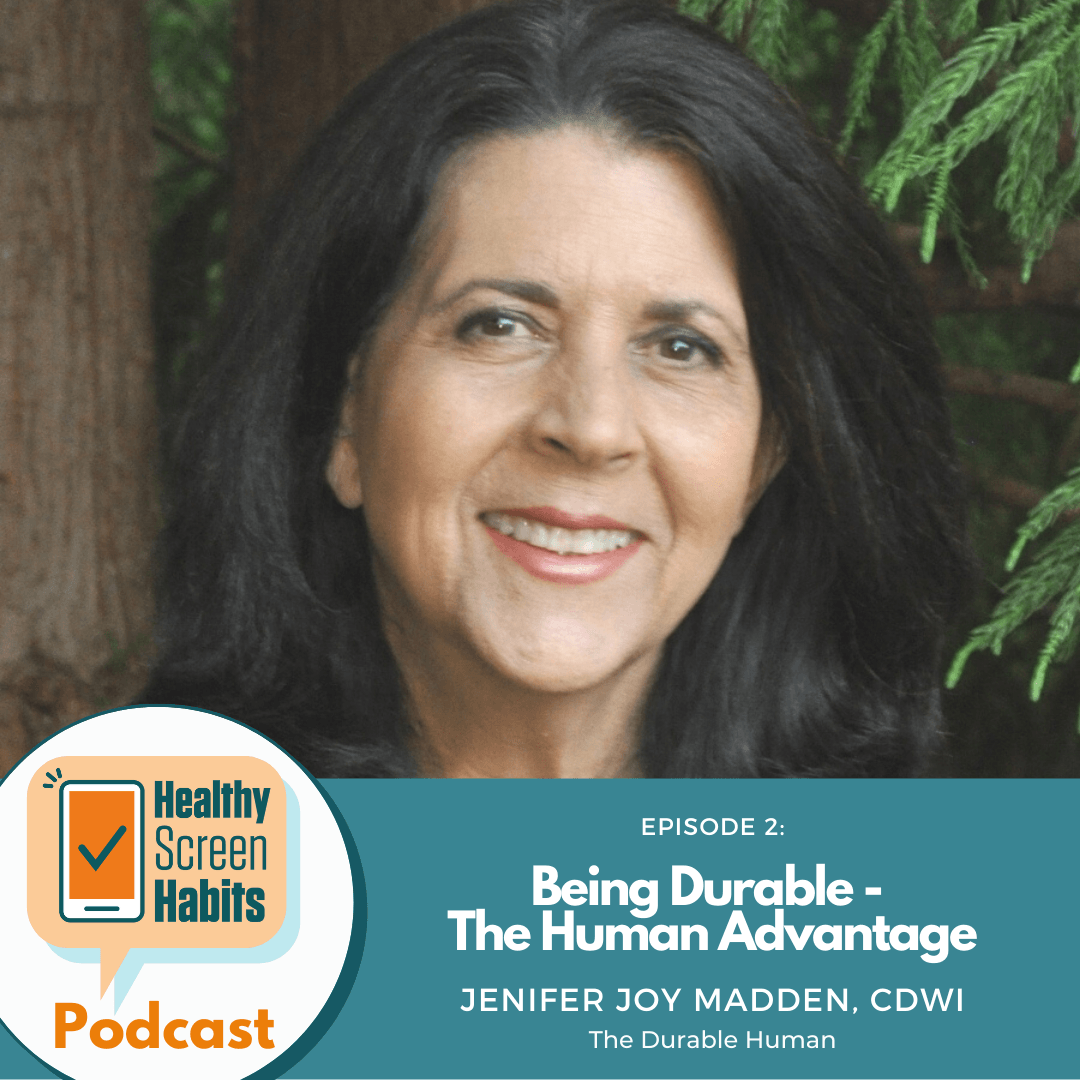
Jenifer Joy Madden is a Certified Digital Wellness Instructor (CDWI) and a cheerleader for humanity. She believes that durability, rather than resiliency, is the key to leveling up in life. Learn how to create healthy habits as well as increase your durability, longevity and happiness in this episode.
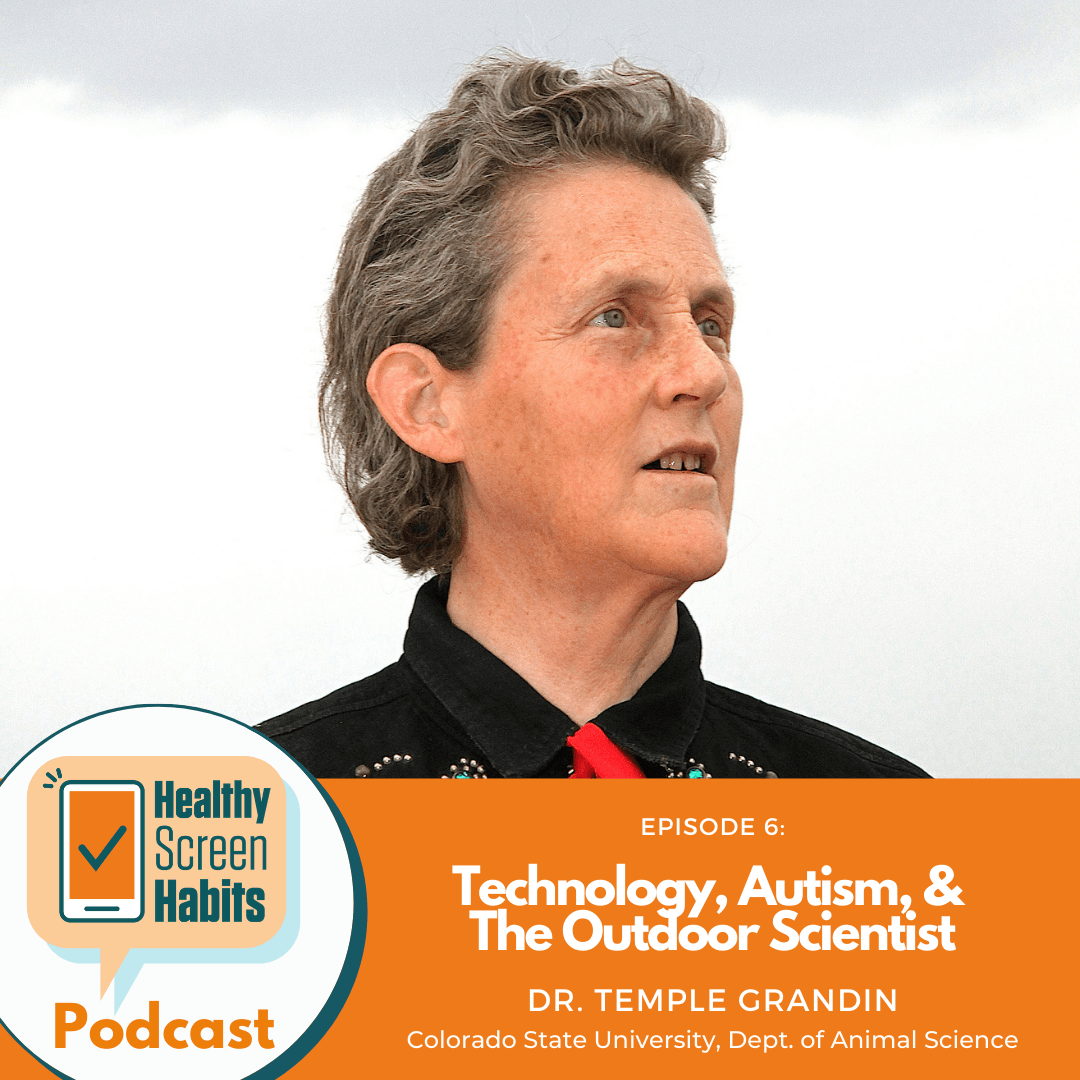
Temple Grandin has the distinction of being named one of Time Magazine's most 100 influential people as well as an author, educator, and inventor. Her life’s work of understanding her own autistic mind and sharing that with the world has led her to a uniquely qualified position in which to explore technology, autism, and behavior.
In this episode we explore things all families can do, both on and offline, to provide educational, enriching experiences. Temple discusses personal experiences with video gaming, lessons from her childhood surrounding engagement with others, and shares a pandemic plumbing frustration.
Pornography & How to Talk About It
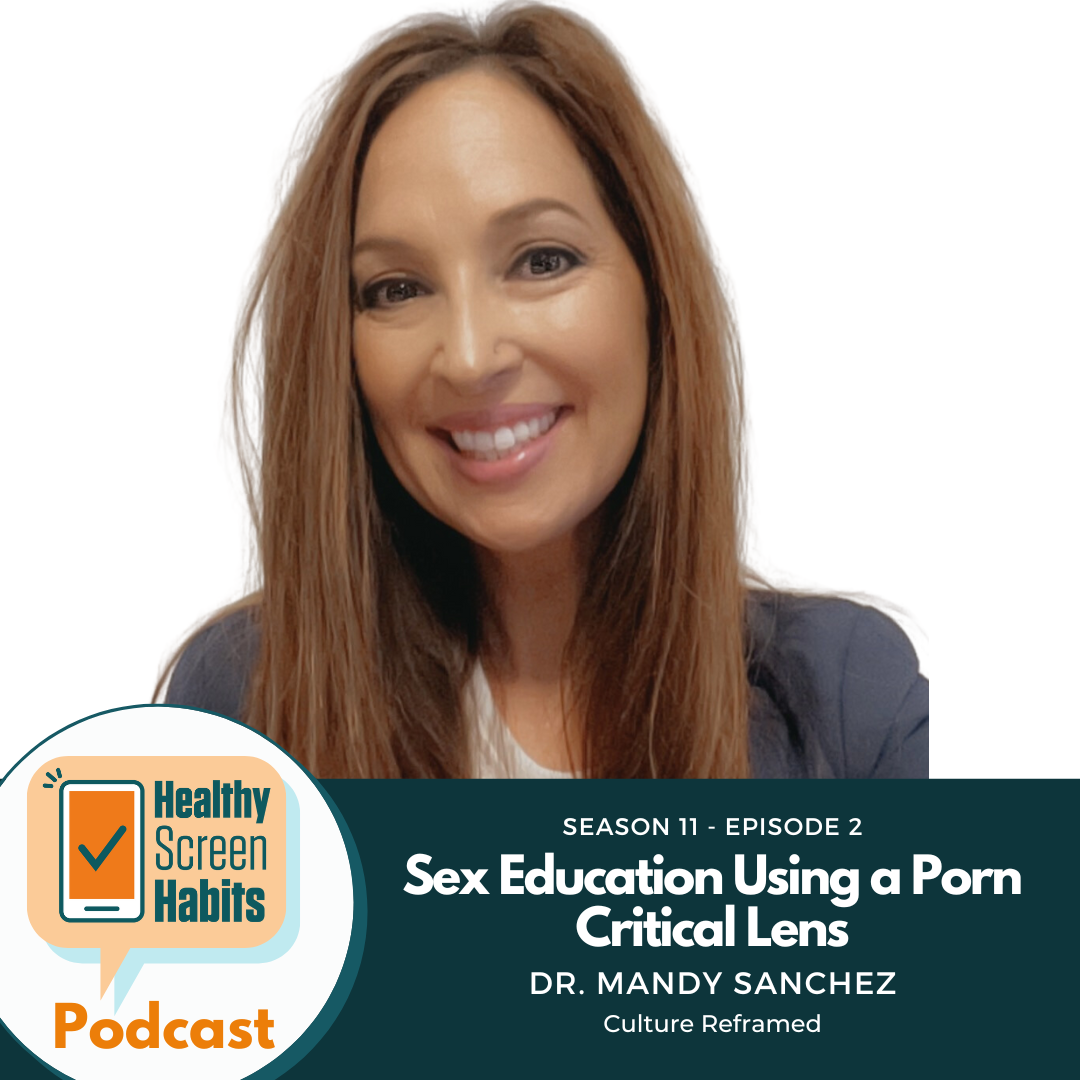
When I get questions about how today's youth is being affected by pornography, I have a few resources I like to recommend. At the very top of this list is Culture Reframed. Formed in 2015, Culture Reframed is the premier science-based global organization of scholars, professionals, and activists addressing the harms of pornography to youth. Today we get to learn about the latest free resource in their curriculum: Porn Critical Sex Education.
Listen today!
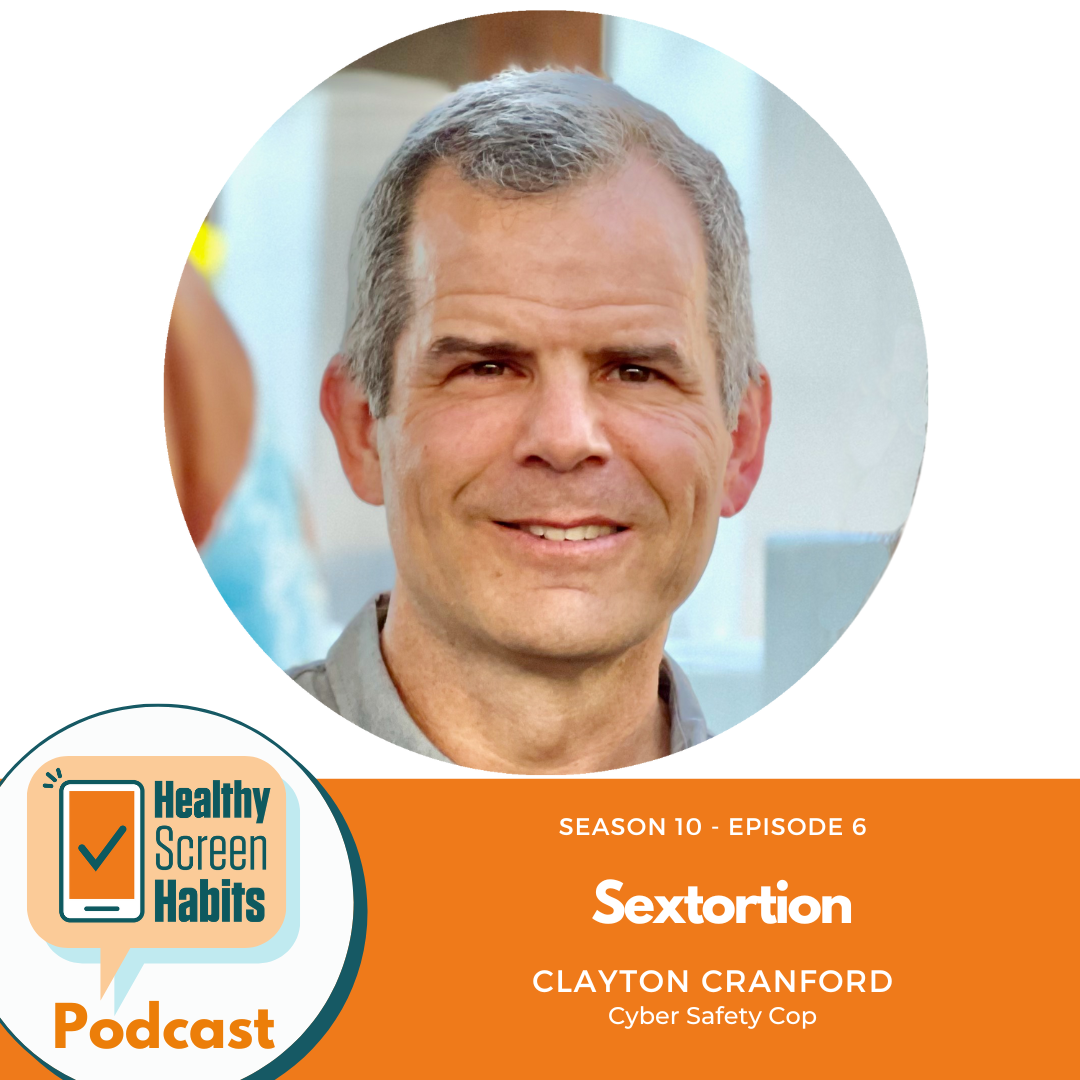
The FBI is warning parents, caregivers, and teens about increased sextortion crimes across the country.
Sextortion is a kind of scam where the suspect gets children to share some sexually explicit material usually by coercing them, making them think that they're also someone that age and they're going to be exchanging nude images. Once the suspect has that image, then they extort the child/minor for money or more images of sexually explicit content. The primary target is boys ages 14-17 and sadly, suicide rates due to sextortion are on the rise. Listen to this episode to find out the best ways to educate your family about sextortion.
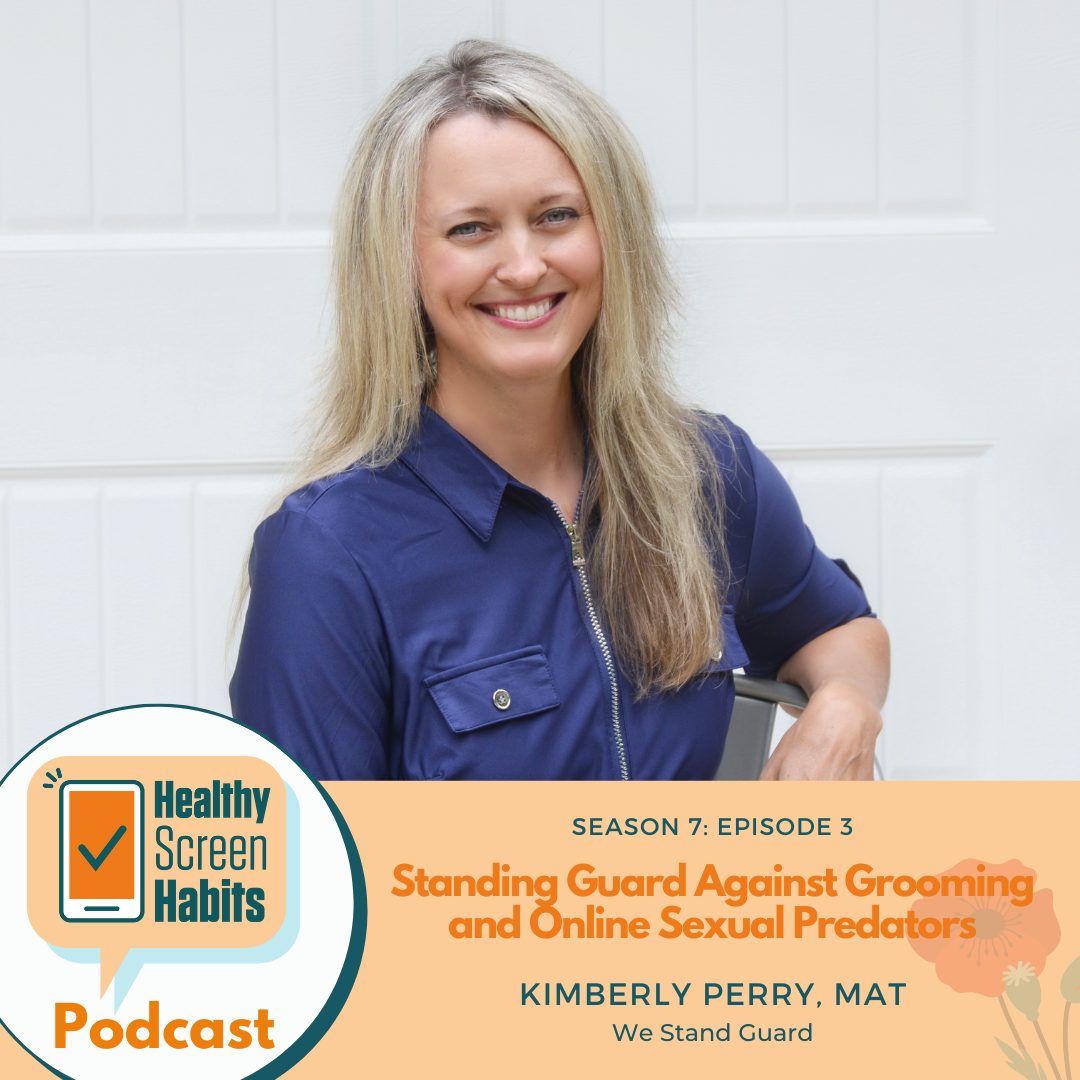
Teaching body boundaries and online safety is what We Stand Guard does best.
We Stand Guard is a training program designed to educate everyone about preventing child sexual abuse and exploitation in all its forms, whether that be physical or non-physical contact abuse.
Kimberly Perry is the brains behind the program. Author and elementary school educator, with over 15 years experience working with children across the country, Kimberly has a master of arts and teaching and has taught boundaries and personal safety to over 1000 elementary school students.
In this episode she teaches us about body boundaries and online safety for kids
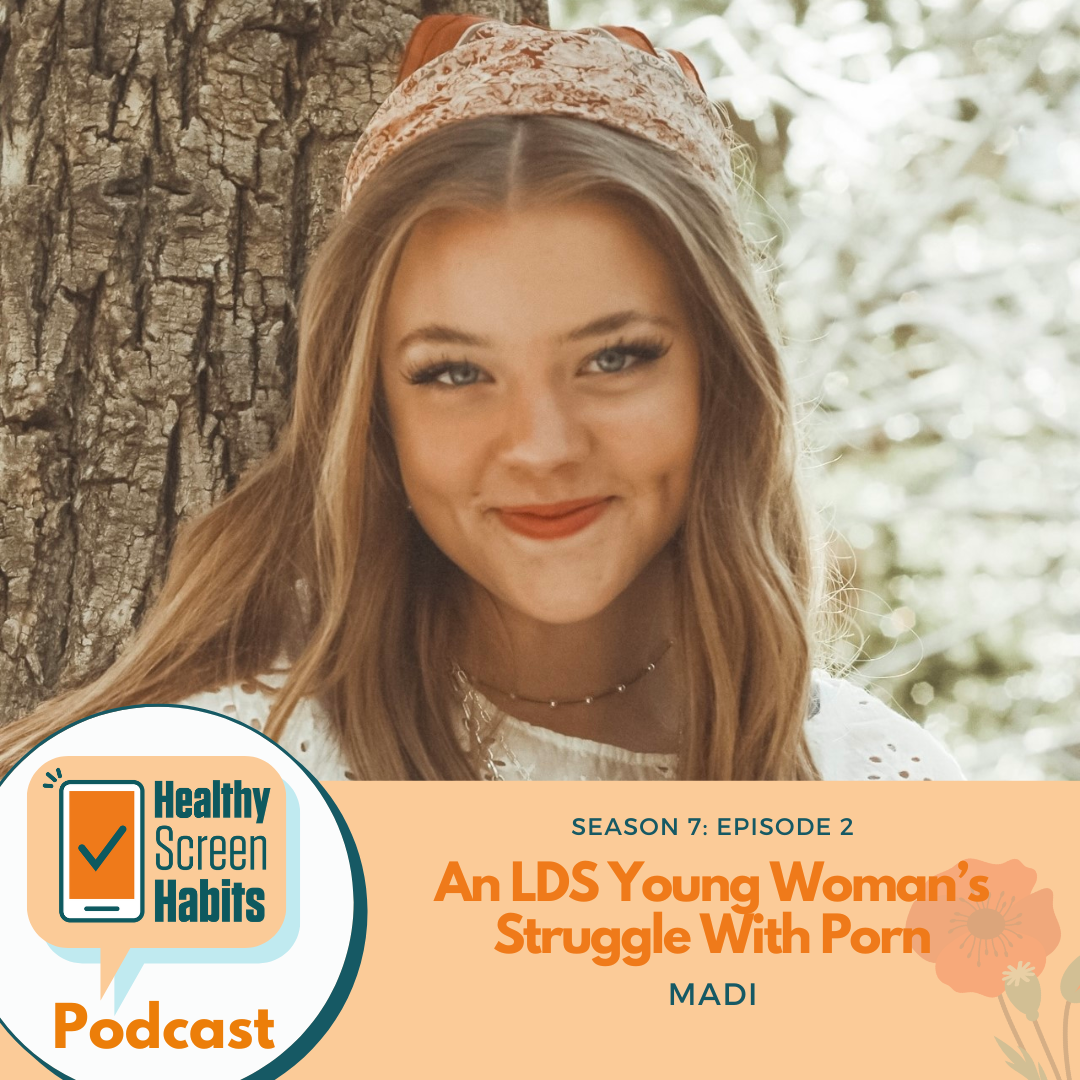
Madi is an 18 year old girl who is passionately spreading awareness about LDS women struggling with pornography. As a young woman growing up, developing a bad habit of porn consumption, and living as a member of the Church of Jesus Christ of Latter Day Saints, also known as LDS, Madi felt shame and loneliness. Part of her healing came through consulting members of her faith. She hopes to help others find their own path forward and develop new, healthy screen habits.
In this episode we talk about her path to recovery, various approaches to stop viewing porn, as well as an on-campus organization seeking to help others connect.
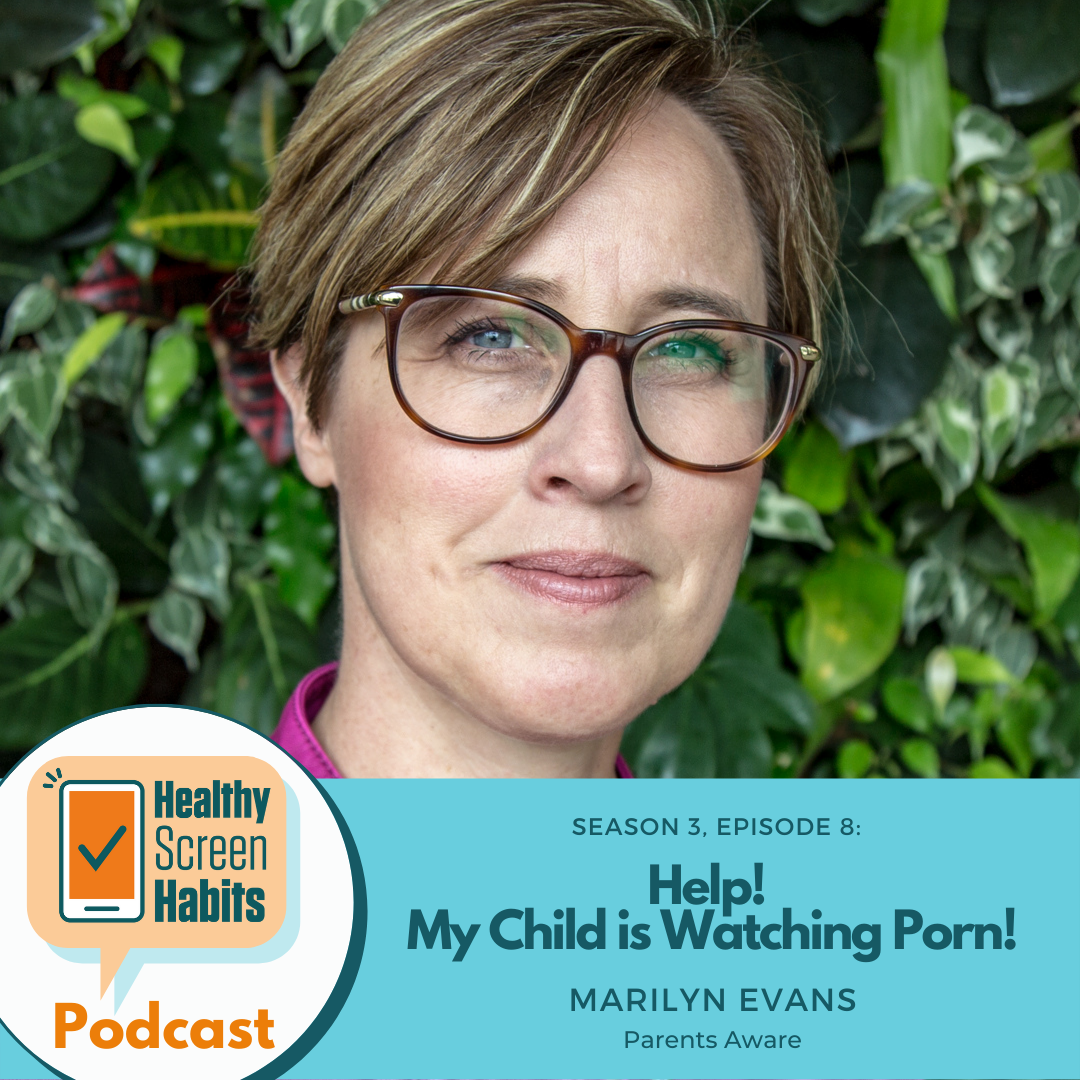
What should we do if we find out our child has been viewing pornography? Marilyn Evans is committed to helping parents understand their unique role in preparing children and teens against online harms surrounding pornography and exploitation. In this episode we discuss how to have age appropriate talks about porn.
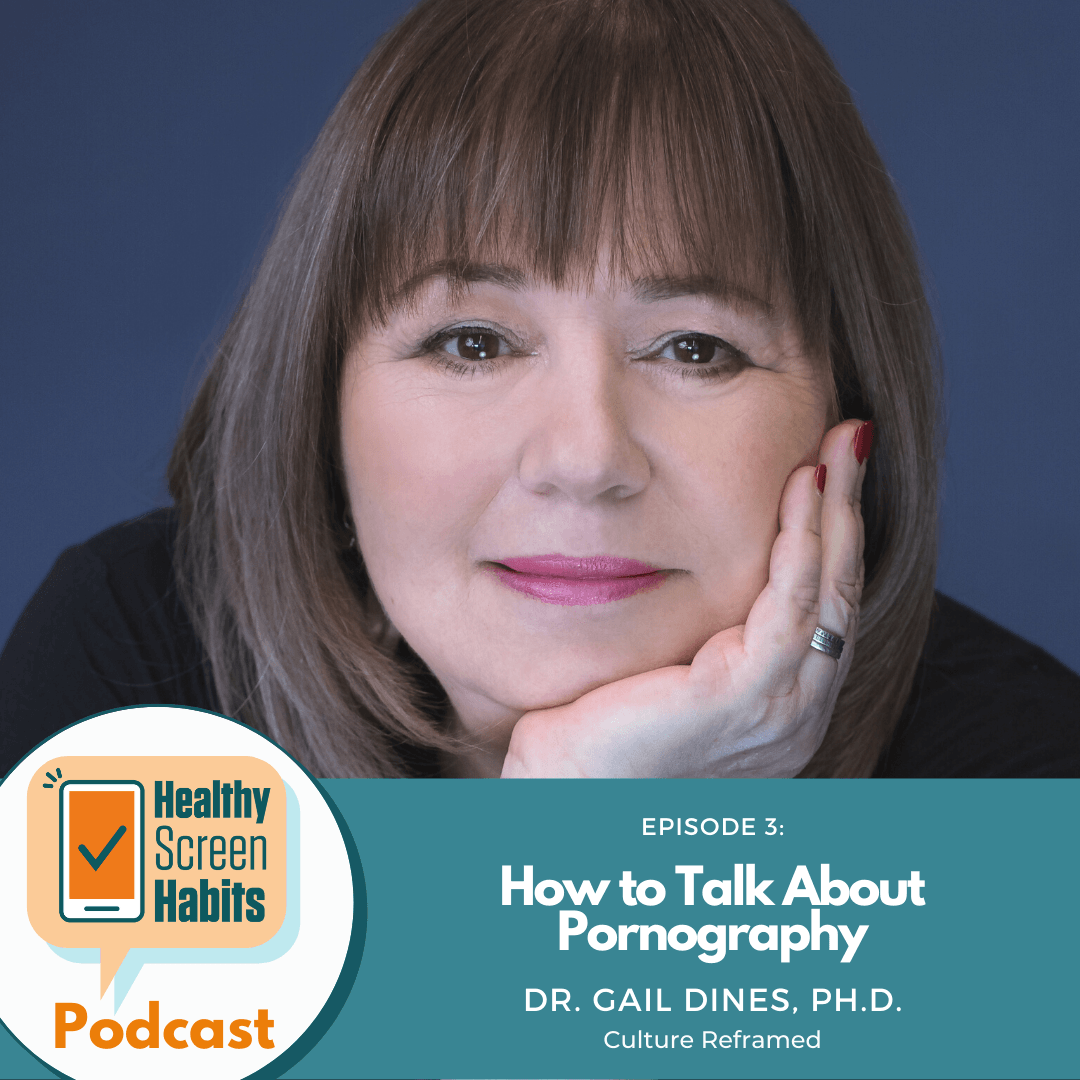
Dr. Gail Dines has been researching and writing about the harms of pornography for over 30 years. Using scientific studies and data as the backbone to her organization; Culture Reframed, Gail explores behavioral and mental problems that arise with early/ongoing exposure to pornography. On this episode, Gail shares parenting tips on how to talk about pornography with children and shares resources to combat this huge public health crisis.
Parenting Tech-Use for "Littles"
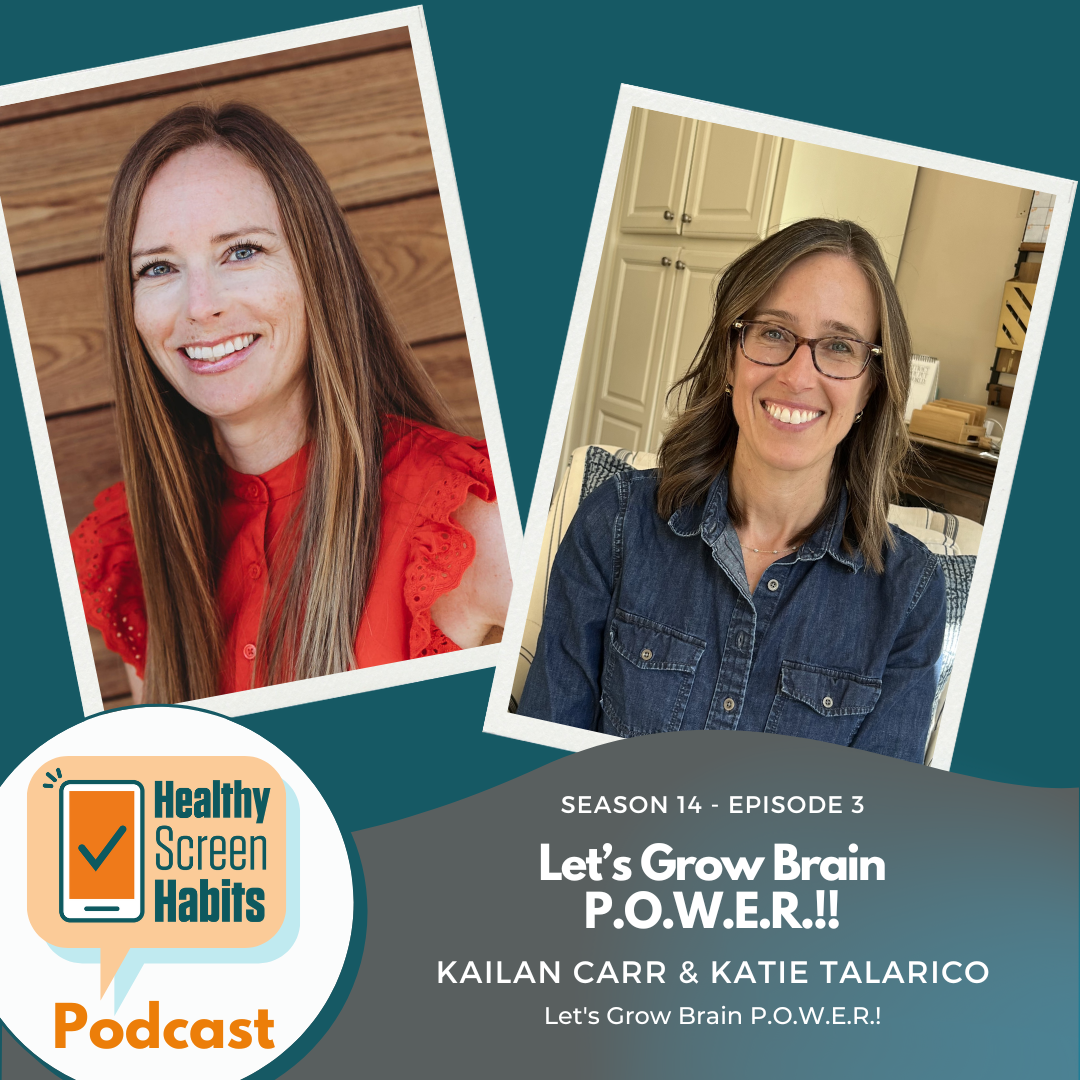
Early childhood experts Kailan Carr and Katie Talarico have combined forces to create a FANTASTIC AND FREE new resource for parents and teachers!
“Let’s Grow Brain P.O.W.E.R.!” is a free resource for schools and community groups, and families designed to help educate and empower families to focus on what really matte
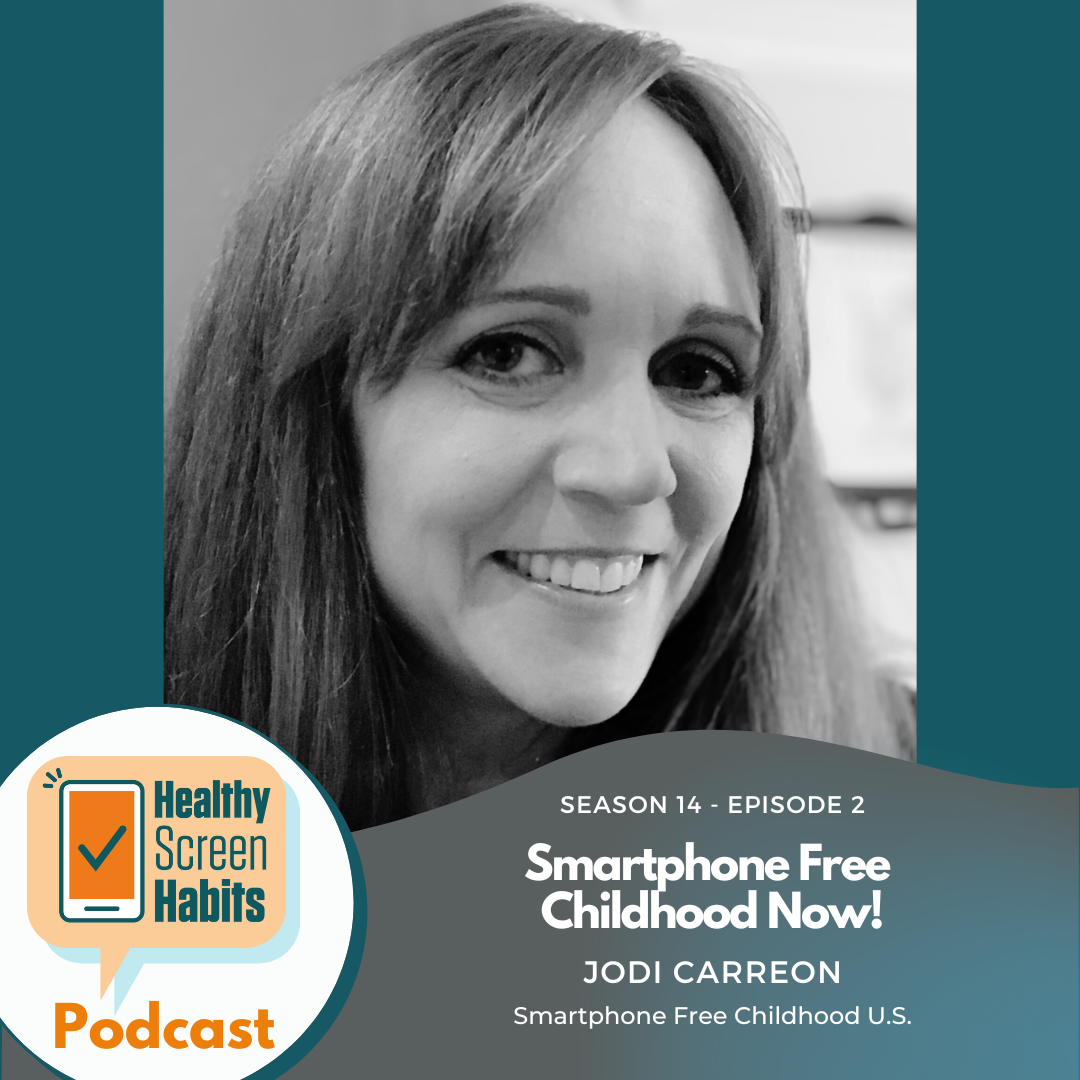
Jodi Carreon is a self-described “regular mom” who honestly is anything but!! While volunteering at her kids' school. She discovered students were more focused on screens instead of each other.
By accessing the tools and templates at Smartphone Free Childhood US, she founded a local parent group that focuses on limiti
S14 Trailer: AI, Chatbots, and Education
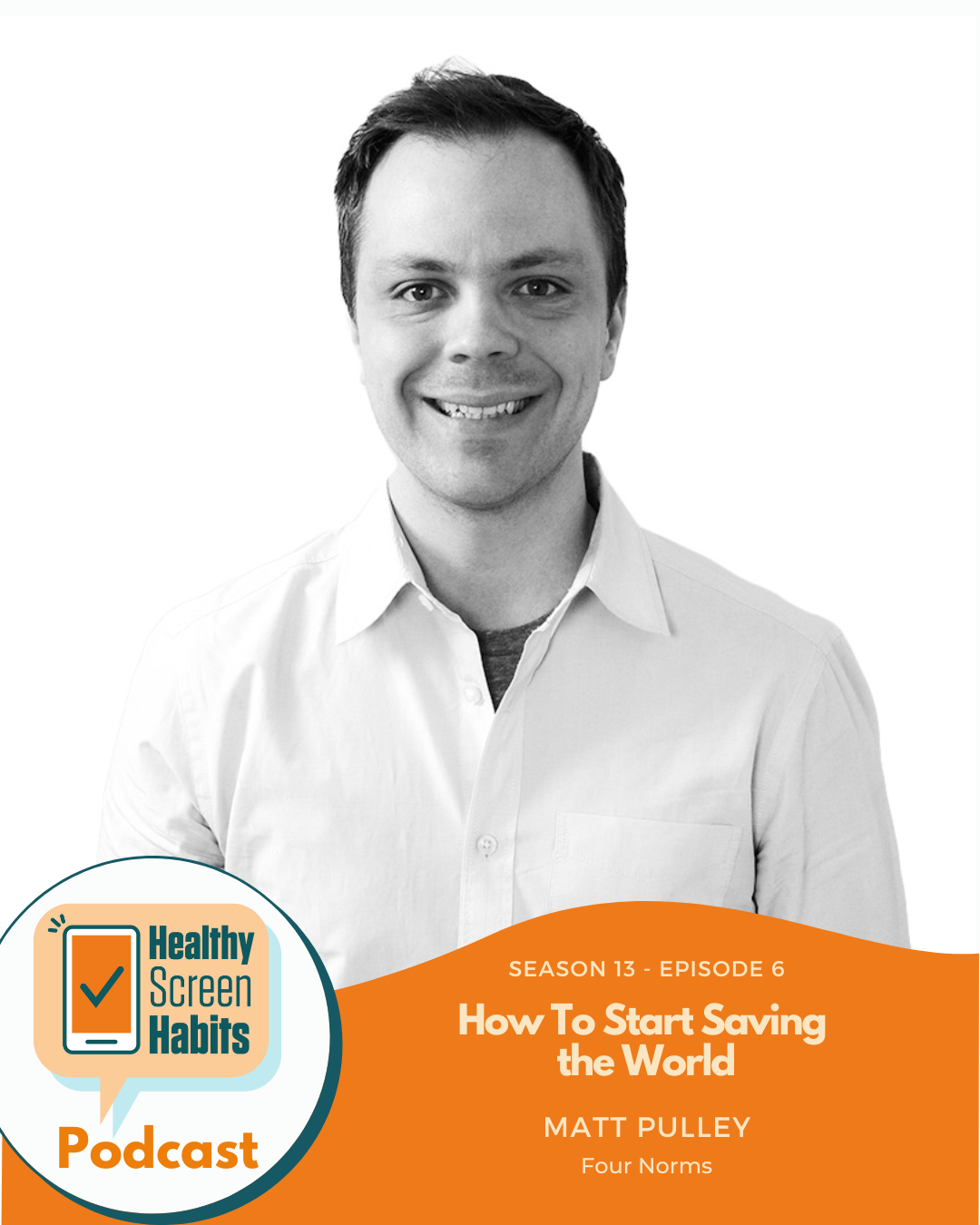
Parents aren’t just worried– they are ready to act. Four Norms empowers local parent groups to get things done through the use of collective action. It’s never been easier to fight for new norms around kids and technology that you want to see in your community. Four Norms acts as a bridge between organizational expertise and community impact. Specifically designed for grassroots parents' organizations, Four Norms makes stepping into activism as easy as meeting friends for coffee (so you can save/change the world!).
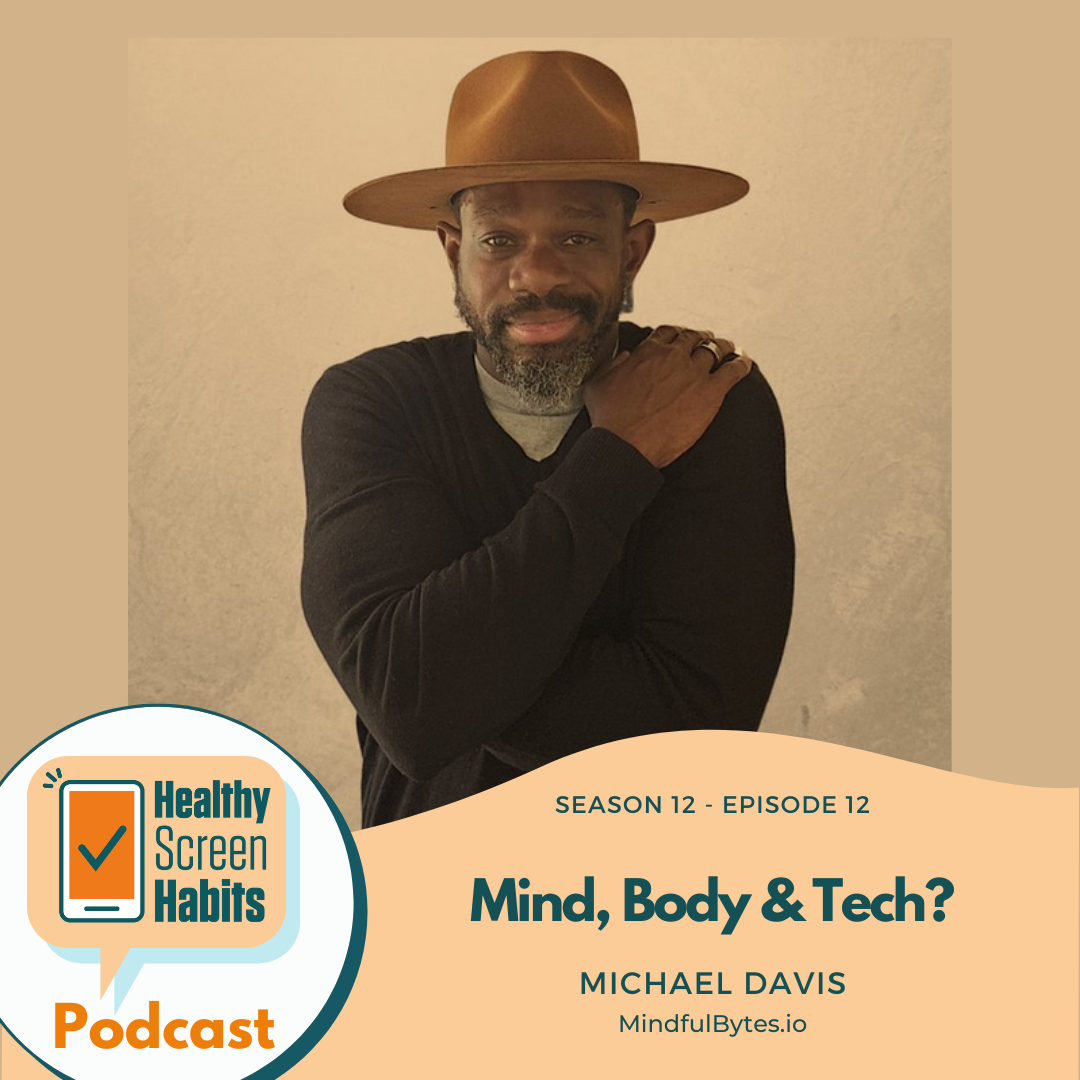
Overcoming a challenging childhood in the South, Michael was inspired by a transformative teacher to unlock his potential. He served 22 years in the U.S. Navy, developing advanced cybersecurity algorithms. With over 25 years of cybersecurity experience, Michael is now a Ph.D. candidate in Cyberpsychology at Capitol Tech University. He created MindfulBytes.io, a groundbreaking K-5 curriculum enhancing digital well-being. The program boasts an 85.7% student engagement rate and a 40% reduction in cyberbullying incidents. His mission is to safeguard the digital well-being of the youngest generation, ensuring every child can thrive in our increasingly digital world.
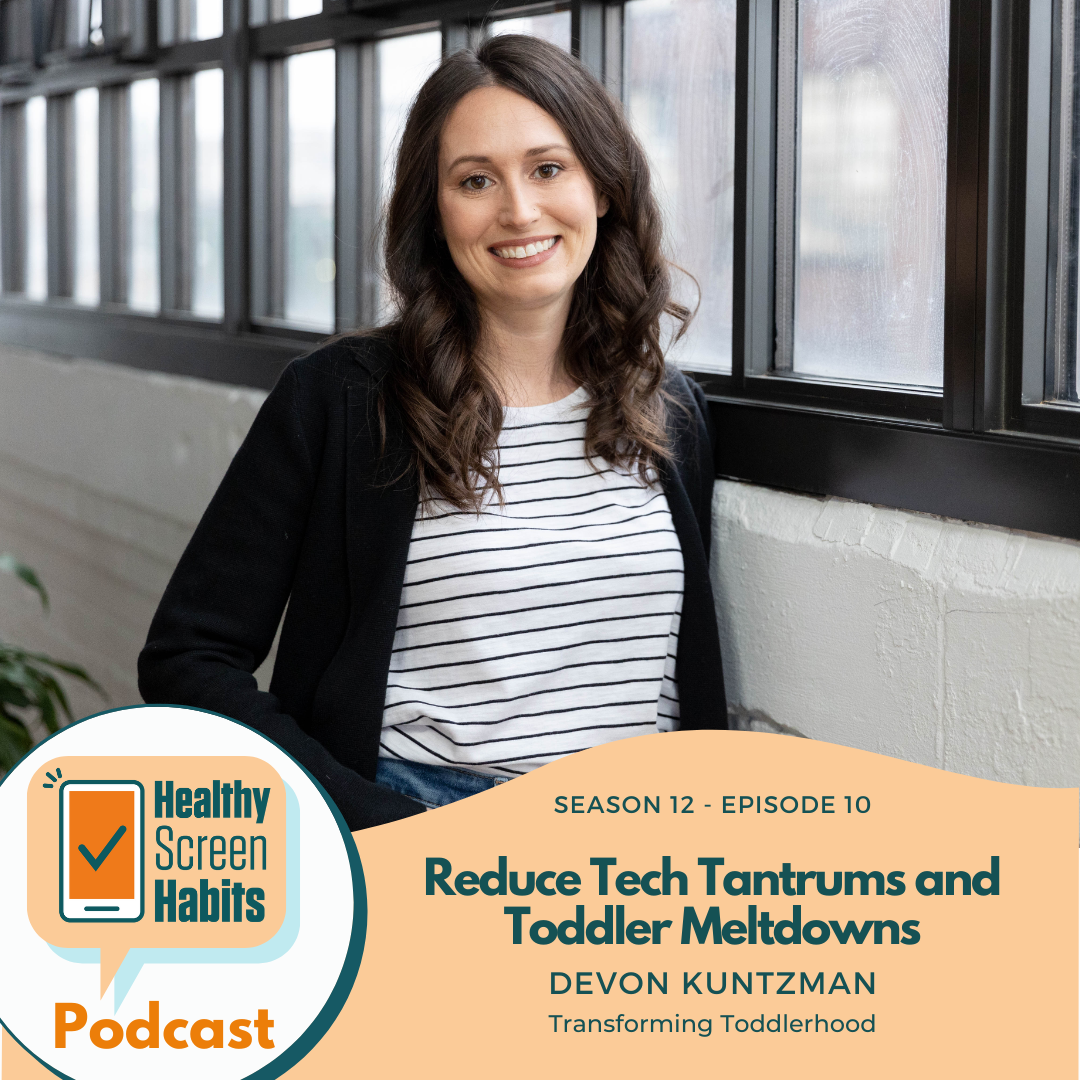
When Devon Kuntzman started Transforming Toddlerhood with the mission to dispel the myth that toddlerhood is terrible and empower parents and caregivers to overcome the challenges while nurturing their little ones' development. She does this by creating confidence in parenting skills and embracing this magical time period. In this episode, we talk about the additional challenge that technology can bring, how to get your toddler off of a screen, and how to find better screen options for your toddler.
Social Media

Richard Freed is a psychologist and author of the new book "Better Than Real Life: How Silicon Valley's Secret Science of Persuasive Design Is Stealing Childhood."
Dr. Freed has devoted his career to revealing how Silicon Valley industry is using psychology—a discipline that we associate with healing—as a weapon against kids in order to pull them online and keep them there. This is achieved through the virtually unknown science of persuasive design, which is concealed in social media, video games, and online video. Freed believes that the knowledge of persuasive design should no longer be the domain of a handful of tech elite but should be put in the hands of all parents and others who care for kids. In this episode we talk about this and the 2 things kids need most to grow and succeed.

Sam Chapman is the father of Sammy Chapman (forever 16) and CEO of The Parent Collective Inc., a California non-profit operating in the areas of social media harm and fentanyl poisoning education and activism. The Parent Collective also provides grief support for those left behind.
Sammy Chapman died the night he took a counterfeit pill that was laced with fentanyl. He bought this pill on Snapchat. More and more drug dealers are using Snapchat as their preferred platform to sell. The conversation has never been more critical - talk to your kids about only using medication prescribed by their own doctor and purchased from a licensed pharmacy.

As a former social media executive turned social media reform advocate, Nicki Reisberg, hosts Scrolling to Death, a podcast for parents who are worried about social media. It's a safe space to amplify stories of harm while educating parents on how to keep their kids safe in a world that is trying to addict and manipulate them.
In this episode learn all about the broken system of tech in our schools and the new threat of Character AI. Listen now!

Dr. Ashley Harlow is a dad of four who definitely understands the complexities of parenting with healthy boundaries around screen time. As a licensed child and adolescent psychologist at Children's Nebraska in Omaha, he has practical tips that can empower families to create a balanced approach.
On this episode we talk about social media, chatbots and warning signs of depression to look out for.
Listen now!

Sarah Gallagher Trombley is on a mission to help parents navigate the digital world with and for their kids by providing insight, advice, and practical tips. Her work and messages cover a wide range of digital topics, including social media, new tech, and apps. As a former Snapchat executive, she saw firsthand how tech companies make decisions about child safety. (spoiler alert: it’s dismal)
On today’s episode she shares what she knows about parental controls, setting them up, and finding good solutions for families in our digital age.
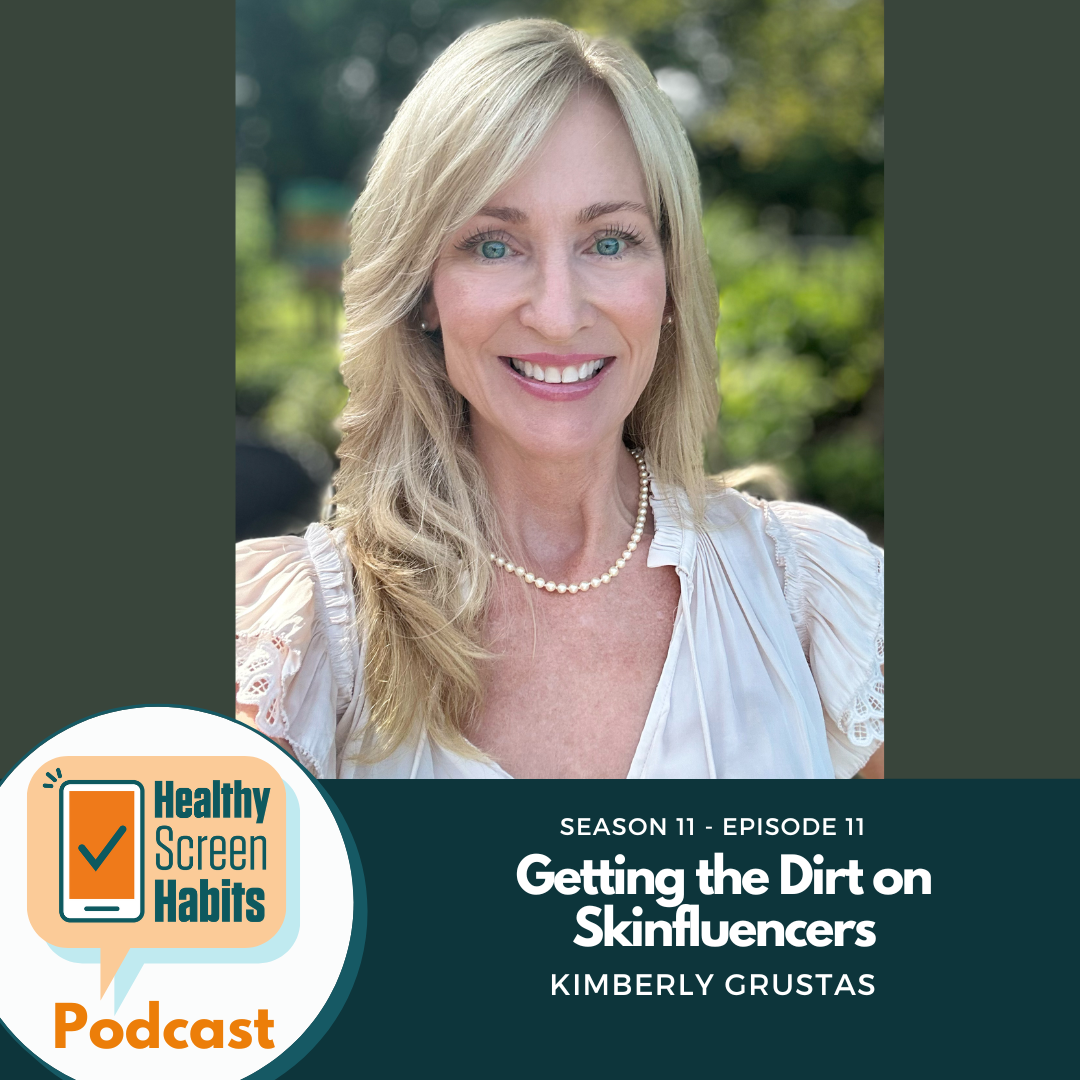
Tweens and teens are flooding beauty counters after watching skinfluencer skin care regimens and make up tutorials.
With over 15 years in the natural product and nutrition industries, Kimberly Grustas has an advanced knowledge of the dangers of even trace levels of estrogenic chemicals during the delicate transformation from girlhood to adult, AKA: puberty.
On this episode, we talk about skinfluencers, young girls and best skincare practices.
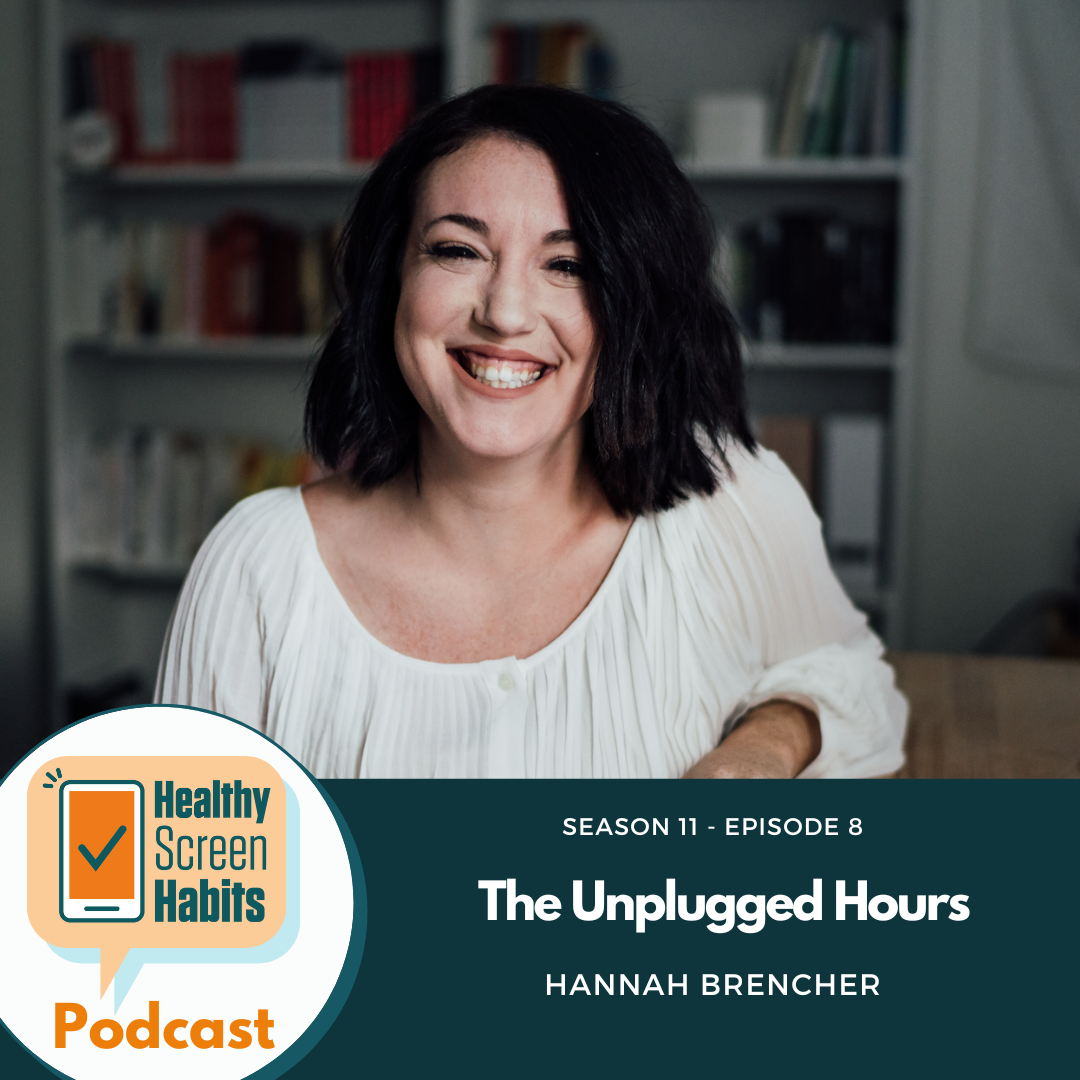
The UnPlugged Hours is the story of one woman’s journey to creativity, self and family. After recognizing how much tech was affecting her creative process and stripping her imagination, Hannah Brencher committed to intentionally taking a 1,000 hour break from technology. She did not intend to write this book - her process started as a commitment for self-improvement and became so much more. Hannah is a writer, TED speaker, and entrepreneur. Named as one of the White House’s “Women Working to Do Good,” she works to encourage tech-less connection and creativity. Listen now!

Todd and Mia Minor are parents who have become a powerful force in awareness building and education of online challenges. The Minor's lives changed forever when Matthew, their 12-year-old son, died accidentally through participation in a social media challenge known as the Choking Challenge.
In this episode, learn about online challenges and how they are being perceived by kids. Listen now!
Tech in Education
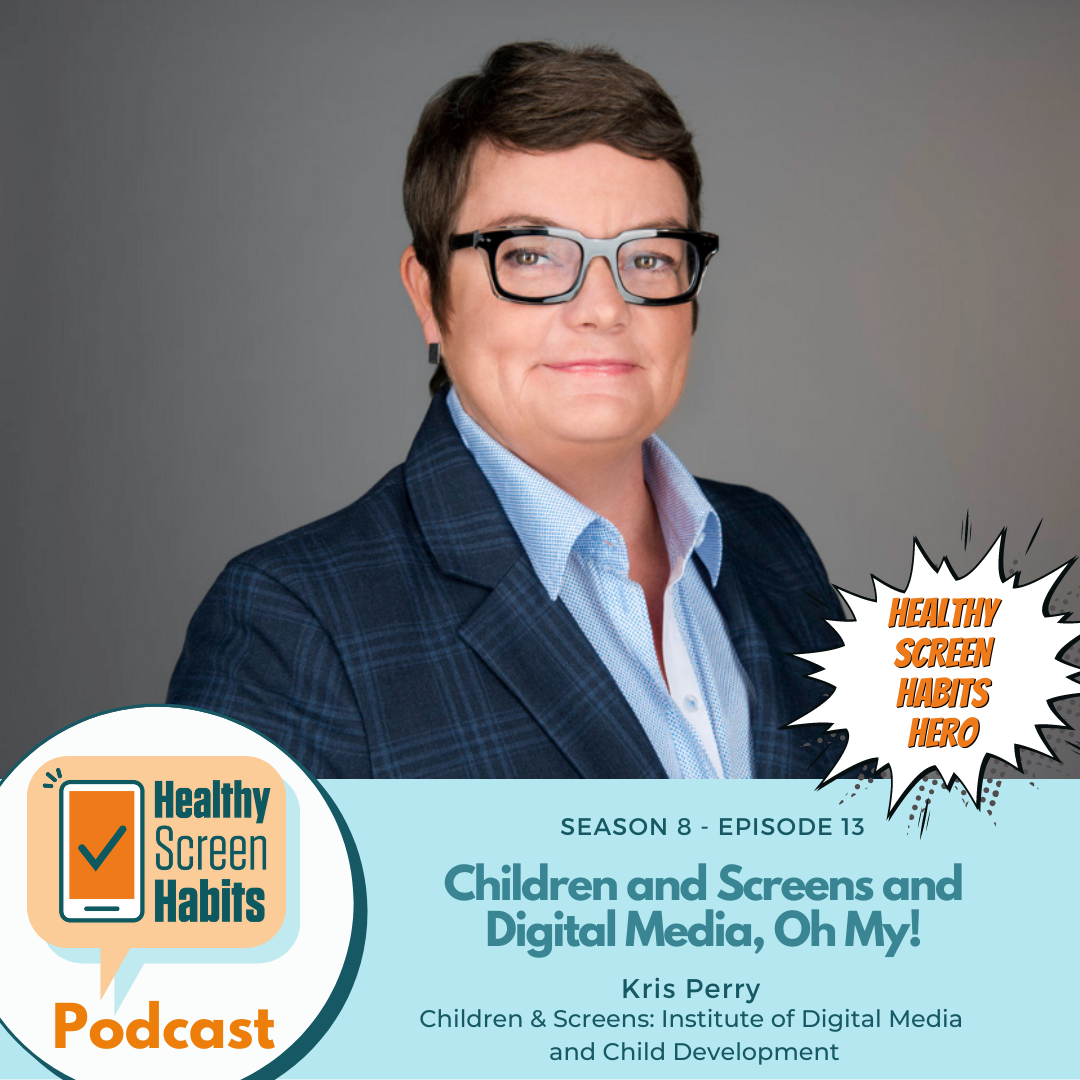
Since 2013, the Children and Screens Institute @childrenandscreens has been a leading curator of experts in the field of digital media and children's health. This week, I got to talk to the executive director: Kris Perry.
I asked Kris questions like:
- Is digital media enhancing or impairing children's abilities to live happy, healthy, productive lives?
-What does research show regarding the effects of screen use on children's cognitive development or social emotional development?
-What can parents do to help enact legislation enforcing guardrails on tech platforms?
She had insightful, amazing answers. If you use technology, if you have any interaction with children, if you are interested in the effects of digital media, you need to hear this episode!
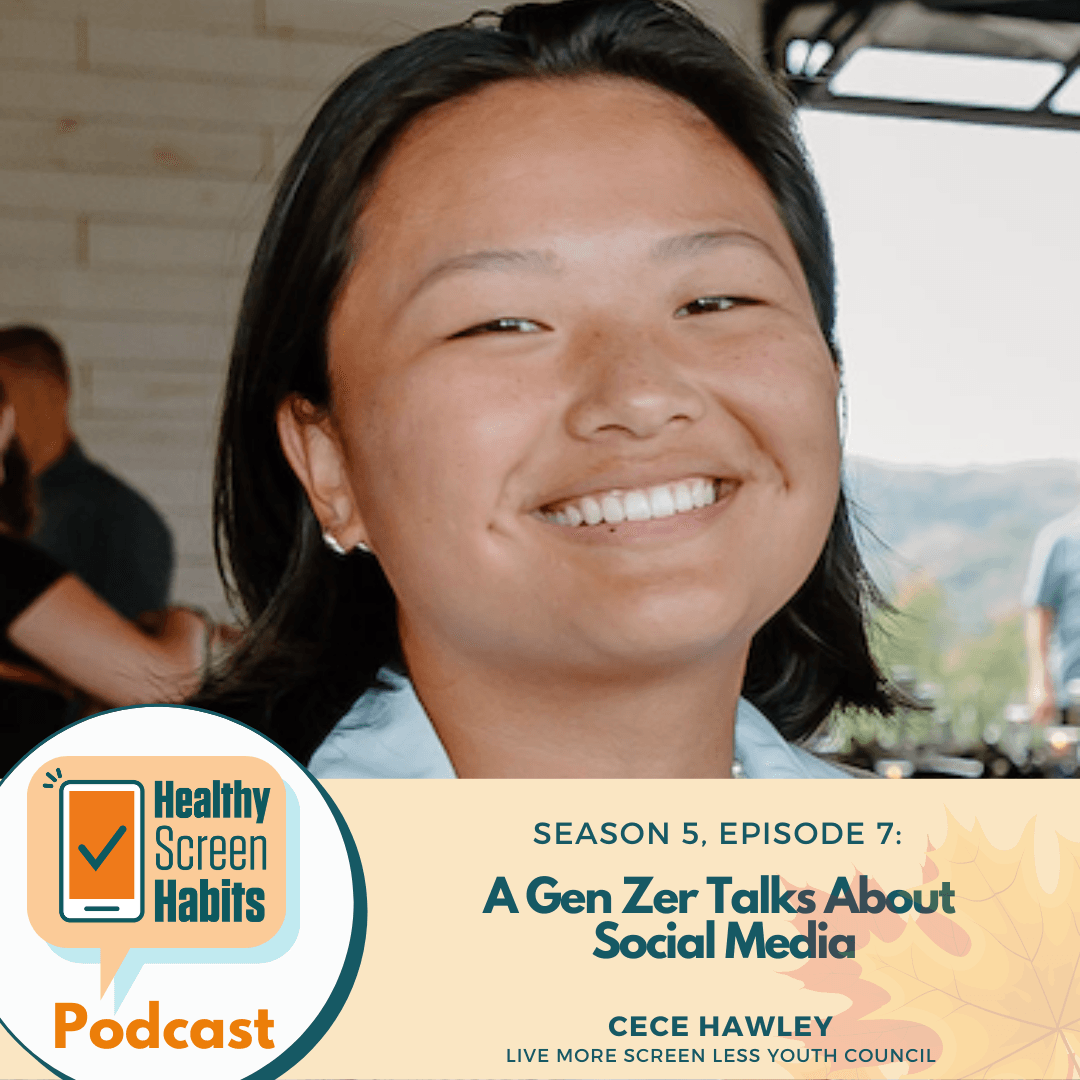
Cece Hawley is the president of the Live More Screen Less Youth Council. She’s a Gen Zer who has a passion for digital wellness and change. Cece has an inside perspective of growing up with social media and the tricky relationship between tech and teens. On this episode we talk about what it’s like to grow up with tablets in school, and what makes an influencer.
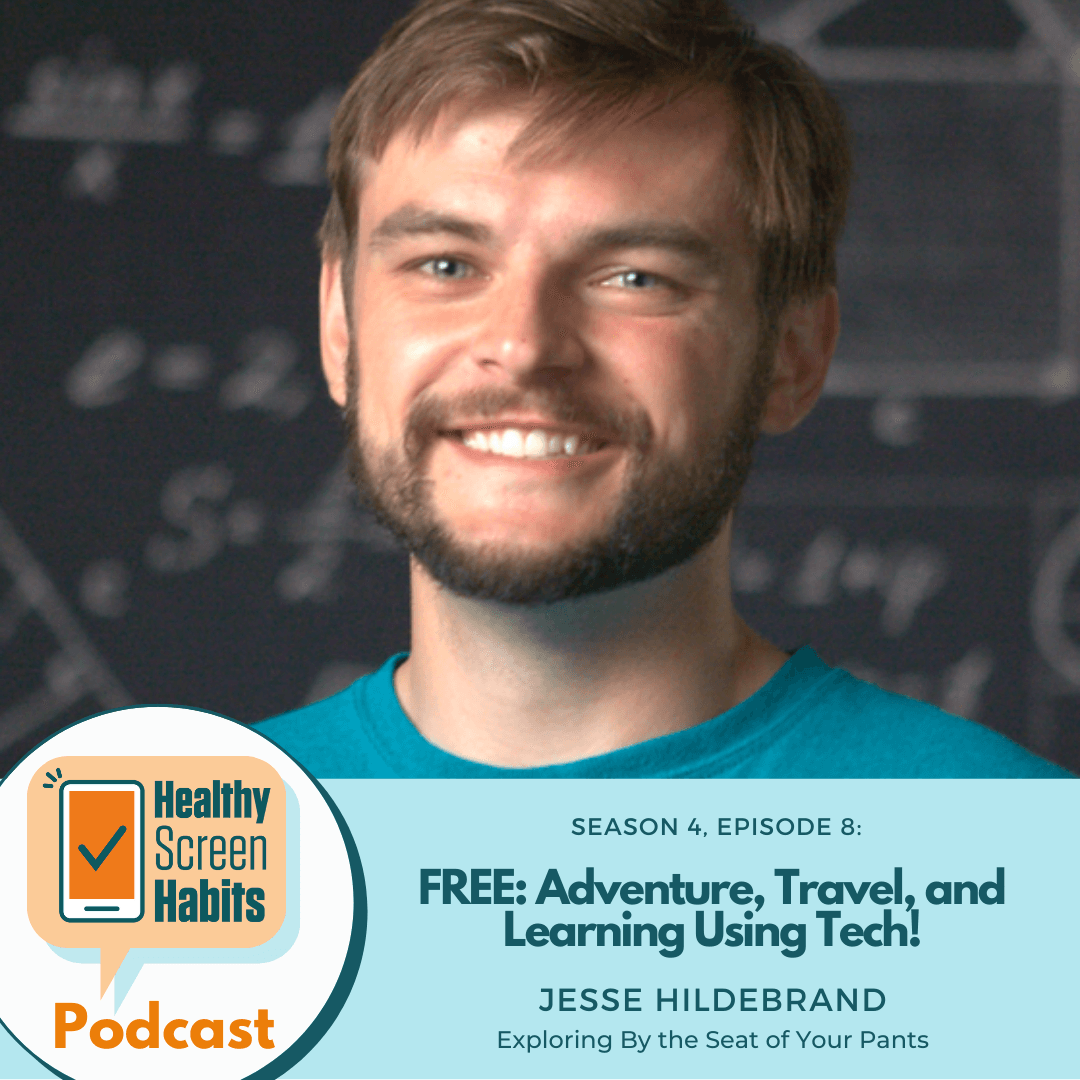
Jesse Hildebrand is the VP of Education at Exploring By The Seat of Your Pants, an organization committed to bringing exploration, travel, and adventure into your home and classroom! With live opportunities to talk to astronauts, Arctic explorers, and more, Jesse is at the forefront of bridging offline experiences and online learning and it’s all FREE! Listen and learn more!
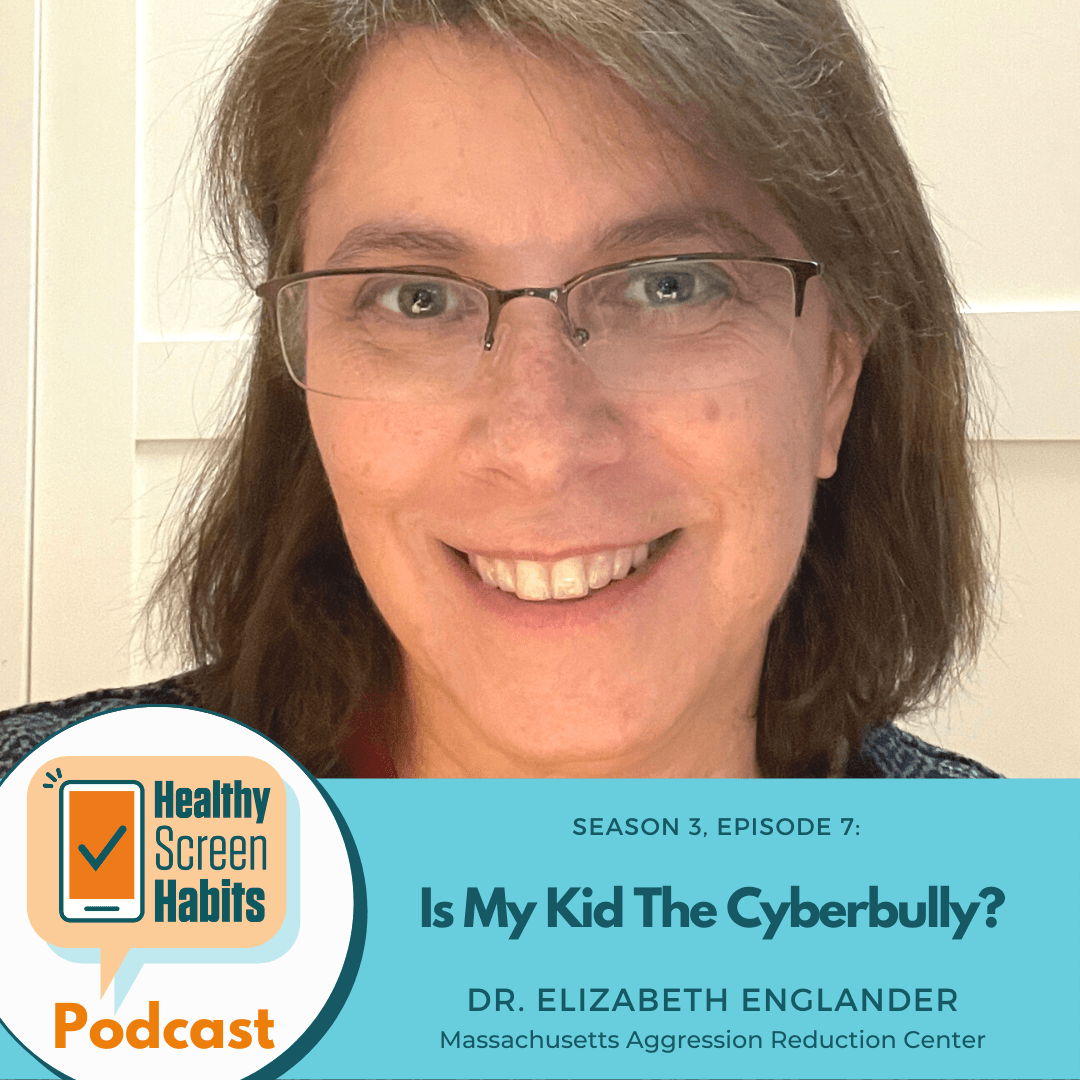
As founder of the Massachusetts Aggression Reduction Center, Elizabeth Englander, PhD is committed to helping children find best practices for connecting with others. Technology has created new ways to navigate the already tricky world of social norms and it’s important that parents have lots of discussion to provide guidance with all kinds of conflict resolution. In this episode we talk about technology, conflict resolution and parenting in a tech age.
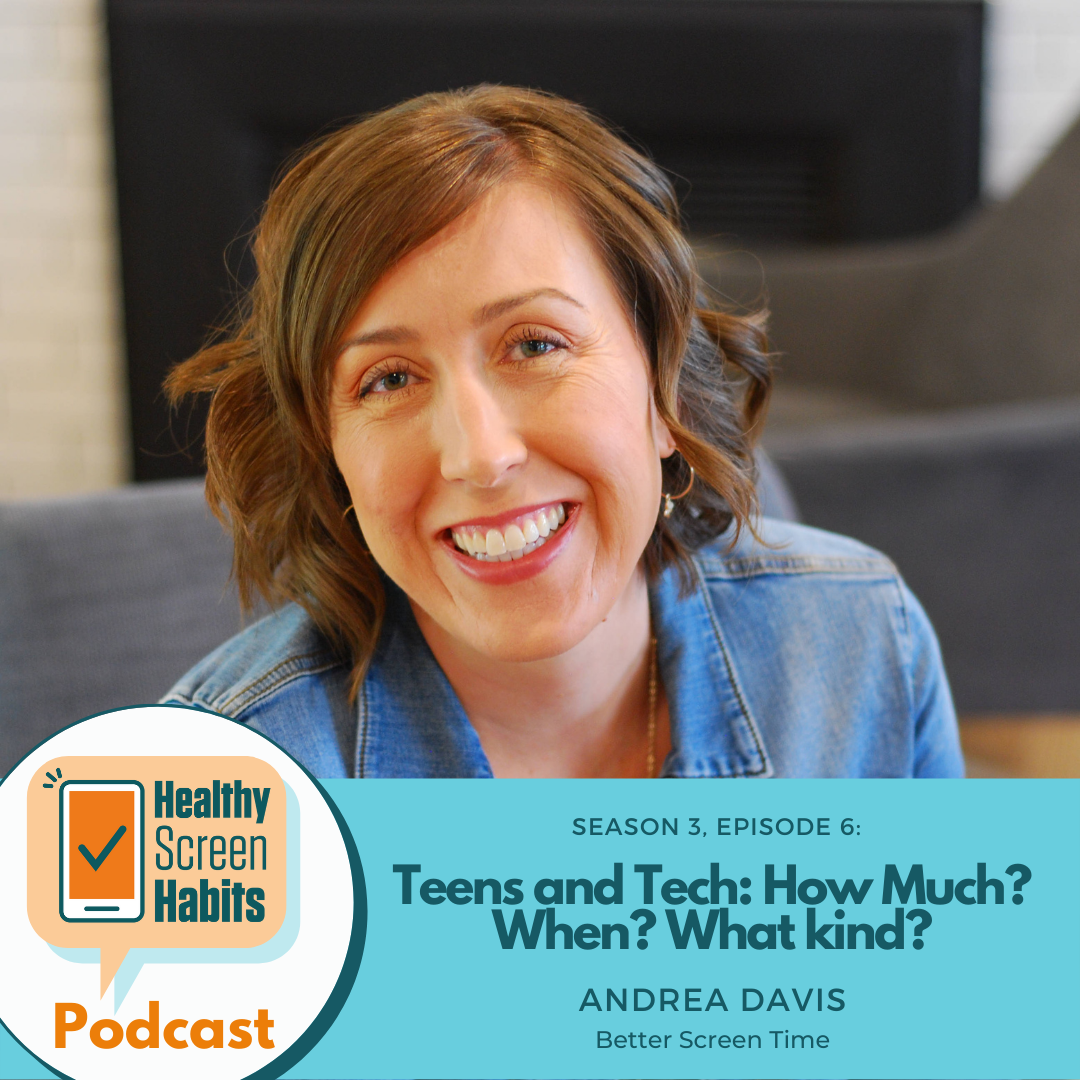
Founder of the top parenting site, Better Screen Time, Andrea Davis is committed to helping parents worry less about technology and connect more with their kids. Better Screen Time is the place for parents who want technology to hold an intentional place in their household. In this episode we talk about a 4-step plan to teens getting a cell phone.
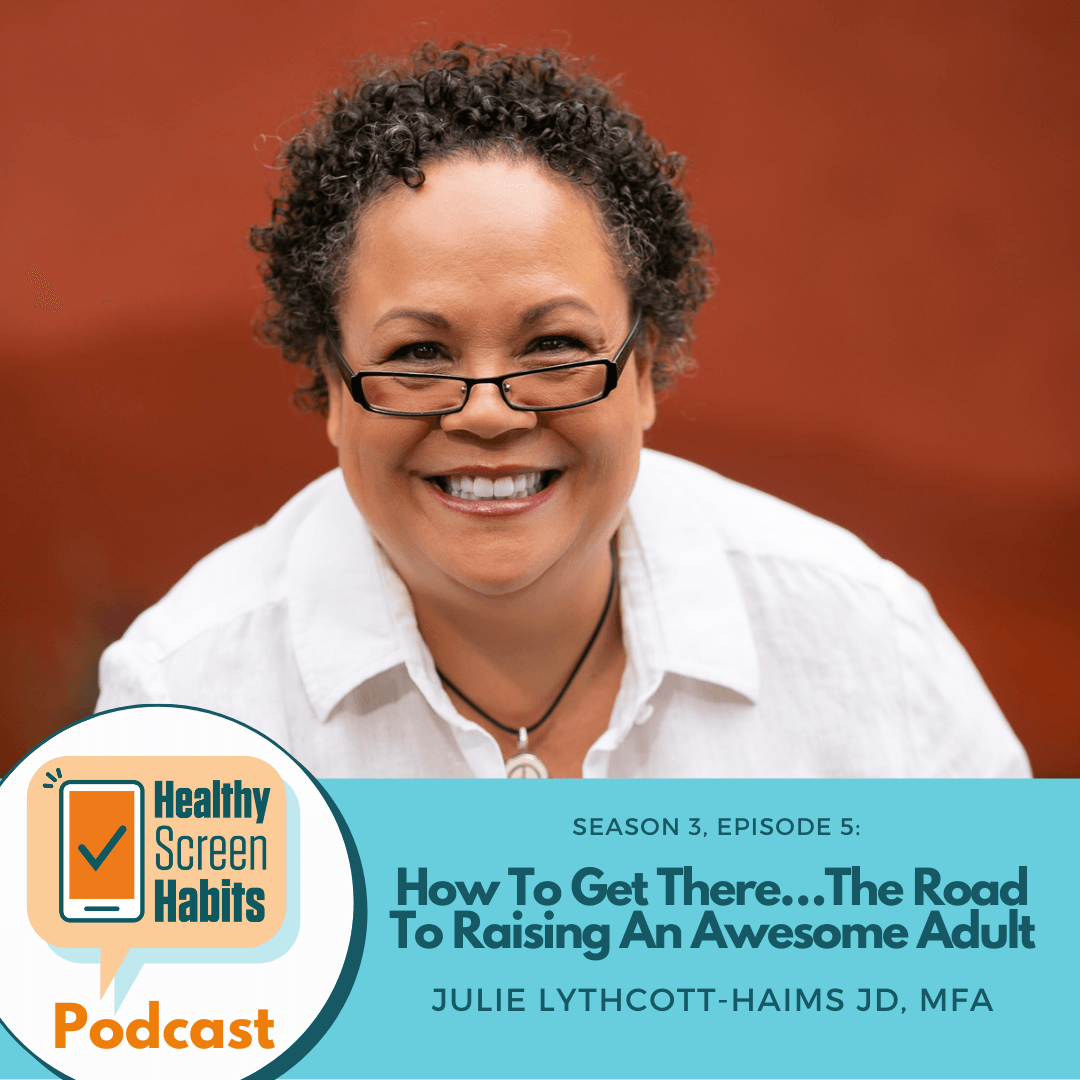
Julie Lythcott-Haims is the New York Times bestselling author of the anti-helicopter parenting manifesto, How To Raise An Adult, which gave rise to a popular Ted Talk and is also the author of Your Turn - How To Be An Adult. She served as Stanford’s Dean of Freshman and Undergraduate Advising before pursuing opportunities in writing and advocacy. Julie is the mother of 2 and has many real life connections to young adults. She’s got the wisdom and experience that we are all looking for! Listen to this episode to gain insight, compassion, and hope.

As the founder of Smart Digital Kids, Dr. Beverly Pell is committed to empowering parents and educators to raise kids who use tech in smart ways, intentionally, responsibly, and creatively. She also wants to teach how to use tech to promote purpose and wellbeing. In this episode, we talk about her method in which we all learn how to TAME our tech and increase our connection as a team.

As the founder of The Center for Online Safety, Lisa Honold is committed to teaching adults how to guide children towards healthy and intentional relationships with technology, all while strengthening offline relationships with family and friends. In this episode, we talk about 5 circles of online safety you can start using today.

Dr. Nina Shapiro has been taking care of children for nearly 25 years. One of the things she has learned along the way is: The more you empower kids with knowledge surrounding their own health, the better they apply healthy habits! In this episode, we tackle the ever present question, “Why Can’t I Have More Screen Time?”
Tweens, Teens, and Tech

Jodi Carreon is a self-described “regular mom” who honestly is anything but!! While volunteering at her kids' school. She discovered students were more focused on screens instead of each other.
By accessing the tools and templates at Smartphone Free Childhood US, she founded a local parent group that focuses on limiti
S14 Trailer: AI, Chatbots, and Education

Parents aren’t just worried– they are ready to act. Four Norms empowers local parent groups to get things done through the use of collective action. It’s never been easier to fight for new norms around kids and technology that you want to see in your community. Four Norms acts as a bridge between organizational expertise and community impact. Specifically designed for grassroots parents' organizations, Four Norms makes stepping into activism as easy as meeting friends for coffee (so you can save/change the world!).
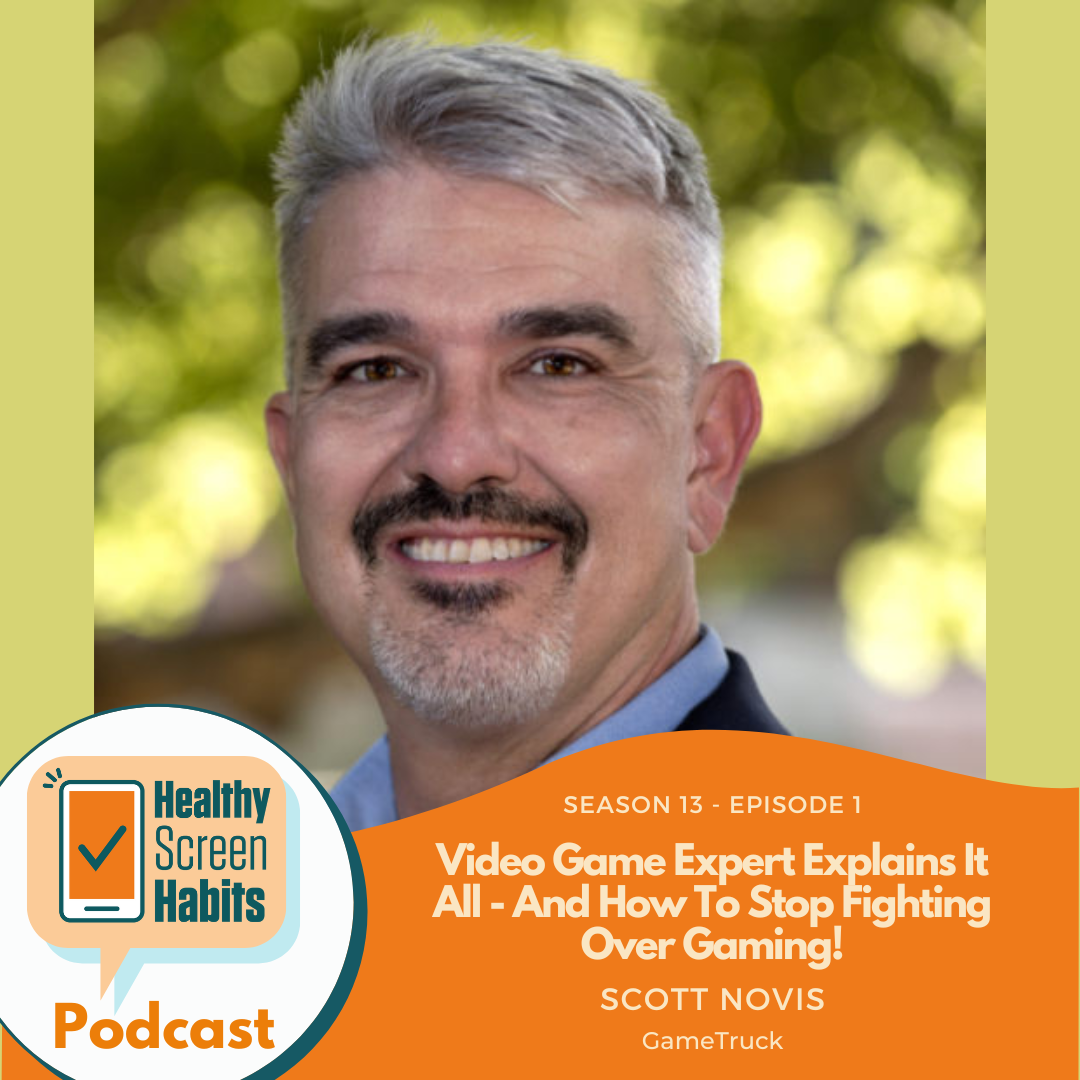
With over 30 years in the video game industry and as the creator of GameTruck, Scott Novis has entertained more than 14 million gamers. He’s on a mission to help families build connections through play. On this episode, find out how to end games without a fight, bond with your kids in new ways, and have a great time doing it all!
Video Gaming (Videogaming/Gaming)

Michael Jacobus figured out how to get more magical summer camp days out of his life by combining his knowledge of digital wellness with his experiences as a camp director for over 40 years. In the summer of 2018, he started the world's first clinical summer camp program for teens and adolescents suffering from unhealthy screen time, social media use, and gaming addiction.
Reset Summer Camp is a camp for digital detox and life skills. Michael’s book: UnHappy Campers is a great read and a fantastic resource for families who want to implement more structure around tech in their home. In this episode we discuss the book, the camp and the ReSet app
Listen today!

Tessa Stuckey, AKA:The Mom Therapist, works with families navigating the digital, tech-filled world that our kids are growing up in. Tessa takes on today’s negative cultural effects on our kids’ mental health from the perspective of a therapist but with the heart of a caring mother.
In this episode we talk about creating a healthier and positive lifestyle for the whole family through anxiety management, understanding online harms, necessary limits of screen use, and the need for healthy connection. Listen now!

After her oldest son dropped out of college due to his video game addiction, Melanie Hempe put her nursing degree to good use and founded Screen Strong,@bescreenstrong a nonprofit that empowers families to prevent screen problems and reclaim their kids from toxic screens.
Listen to this episode and learn how your family can stop fighting over screens, kids can gain more life skills and everyone can benefit!
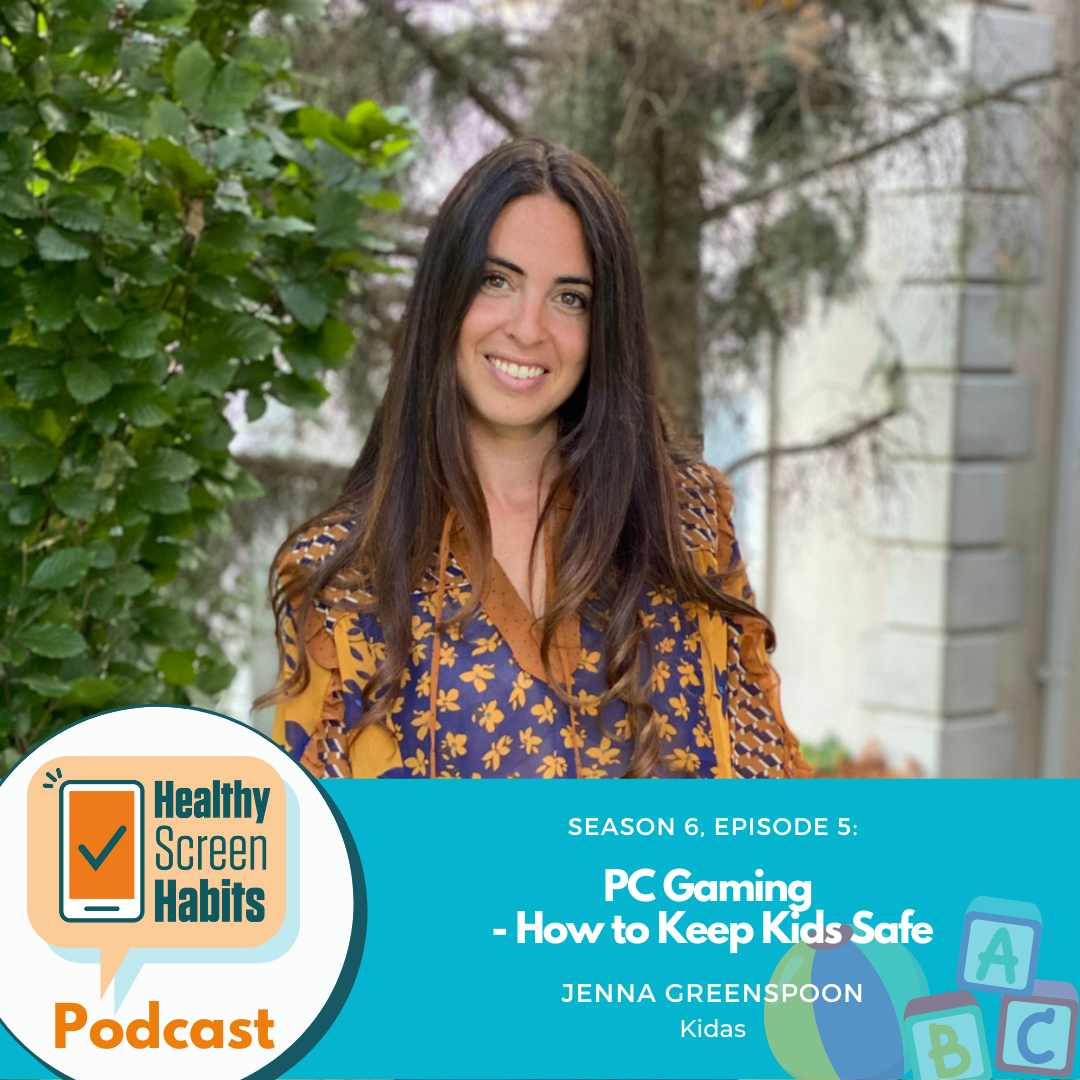
You don’t drop off kids at the mall, park or bowling alley without accompanying them the first few times and then laying out groundwork for how to keep themselves safe.
The internet is a PLACE. It needs the same amount of teaching and monitoring that we give to offline spaces. In fact, knowing that predators go where kids are and online they can hide behind fake personas - it can be argued that online gaming needs MORE safety building!
This is where Protect Me from Kidas comes in. Protect Me is the first of its kind monitoring platform for online PC gaming. The best part is that the reports that are provided to parents provide conversation starters - you get to ask your child age appropriate questions and have a discussion around various areas of concern. The next steps are then also provided to give support.
Enjoy learning more about this platform by listening to this week’s episode!

Summer is coming and how do we teach kids to self-regulate around time spent video-gaming? Tracy Foster from the organization START teaches all about their tool called the “video game decision tree”. In this episode we talk about the founding philosophy and components of START as well as go over this invaluable tool to help parents maintain summer sanity!
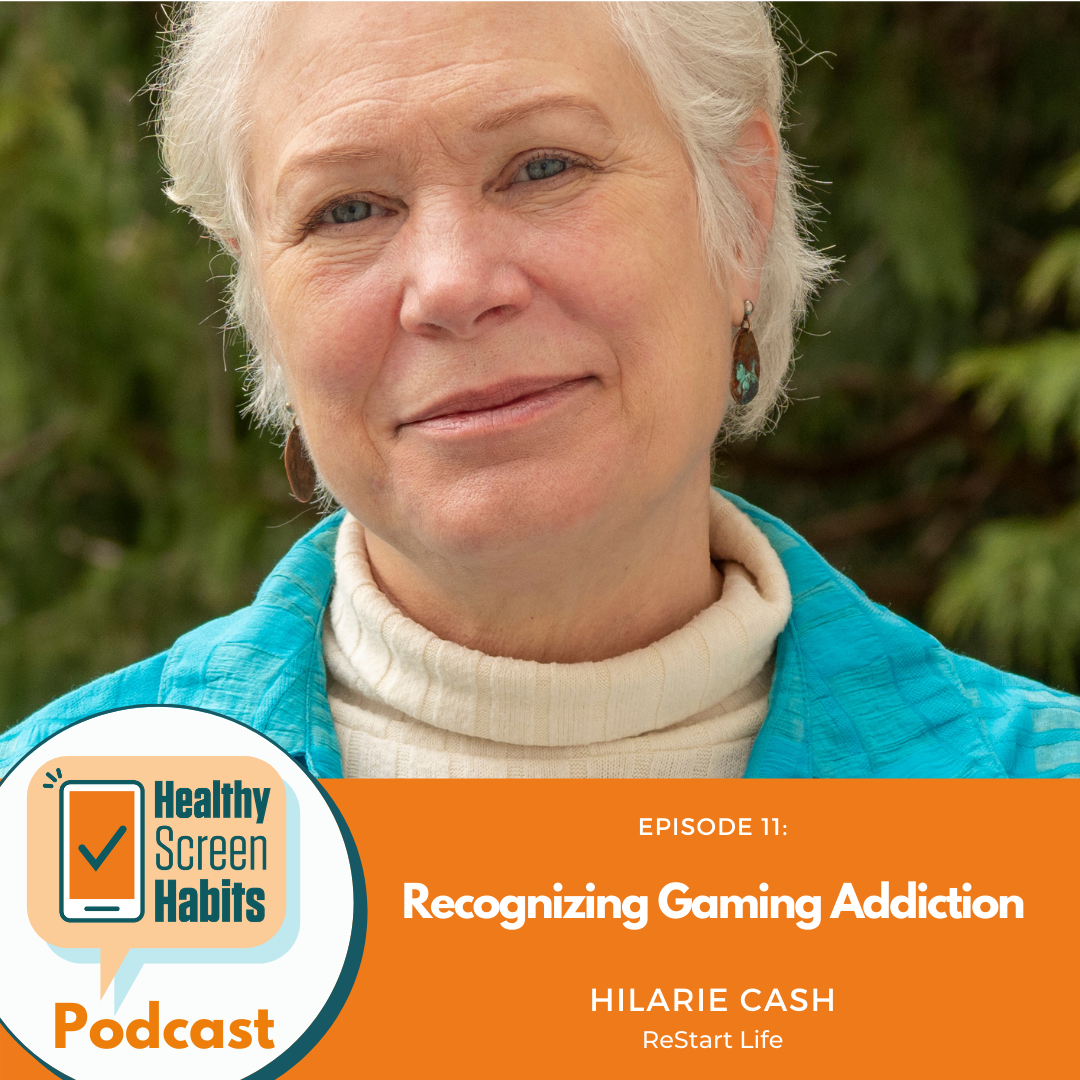
Hilarie Cash is a pioneer in the field of digital addiction and one of the nation’s leading clinical experts in internet and gaming disorders. As a co-founder and Chief Clinical Officer of ReStart Life, the first-of-its-kind residential treatment facility in the U.S. and Canada, she has been studying technology and its effects upon mental health since the 1990s.
Learn how to recognize problematic behaviors and when to ask for help by listening to this episode.

Temple Grandin has the distinction of being named one of Time Magazine's most 100 influential people as well as an author, educator, and inventor. Her life’s work of understanding her own autistic mind and sharing that with the world has led her to a uniquely qualified position in which to explore technology, autism, and behavior.
In this episode we explore things all families can do, both on and offline, to provide educational, enriching experiences. Temple discusses personal experiences with video gaming, lessons from her childhood surrounding engagement with others, and shares a pandemic plumbing frustration.
Featured Story
Oliver
At the age of four, Oliver lost both of his parents in a car accident. Oliver was in the car at the time of the accident, and though he walked away without any physical injuries, he was emotionally devastated. With help from DoGood, Oliver became very active in sports, and though this can’t take away the pain of losing his parents, it has helped him to rediscover joy.
Featured Story
Daniella
As the sixth of nine children, Daniella’s parents did not have a lot of time, and they missed the warning signals that something was not quite right at school. Luckily, a social worker from DoGood noticed that Daniella’s grades were dropping and realized she was having trouble reading and writing. Now Daniella has the extra help she needs to excel at school - and life.
Featured Story
Sophia
Raising a non-communicative child with autism can be incredibly difficult without help. DoGood set Sophia up with a non-profit organization in her area that offers regular assistance to families of children with autism and provides special programs on afternoons and weekends so kids can have fun, and parents can have a break.






